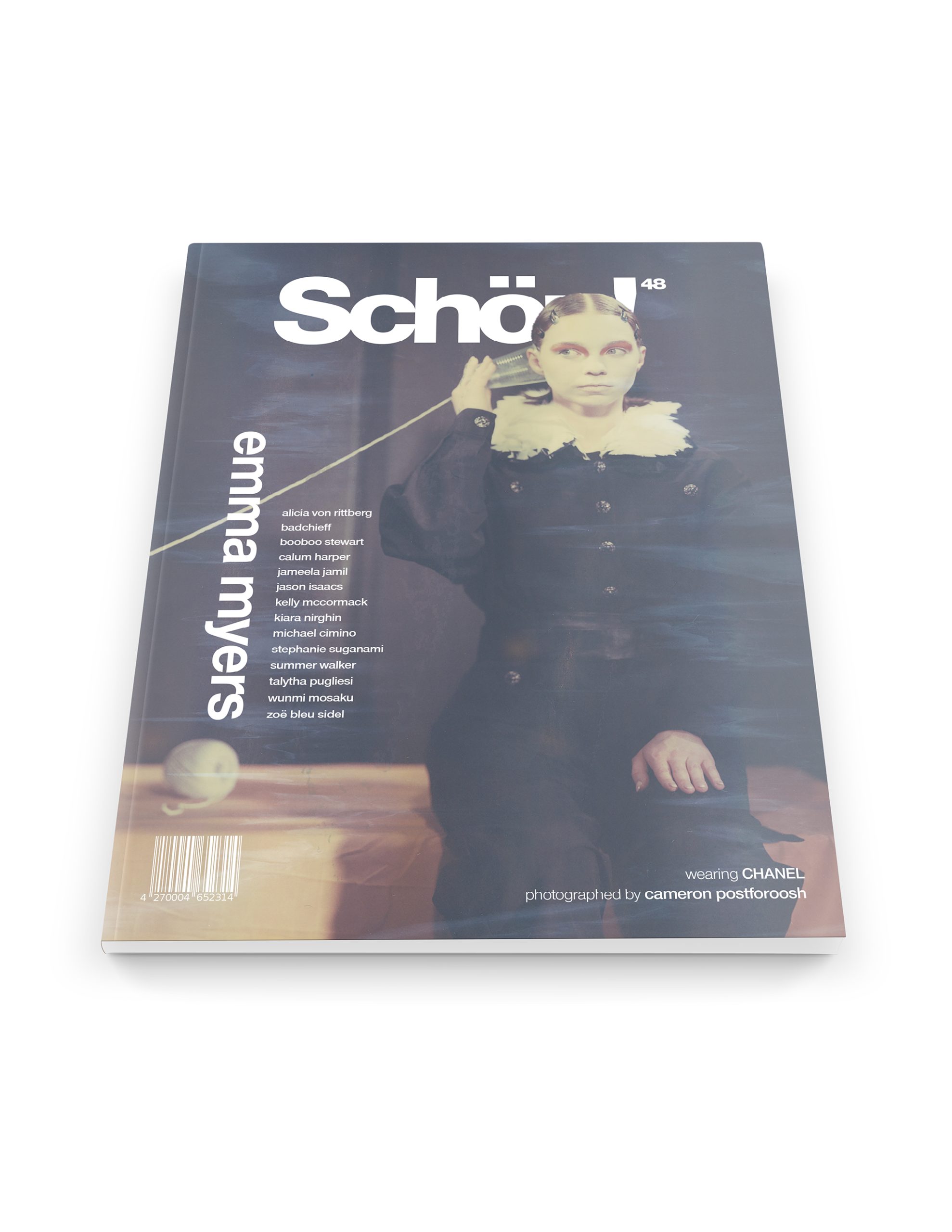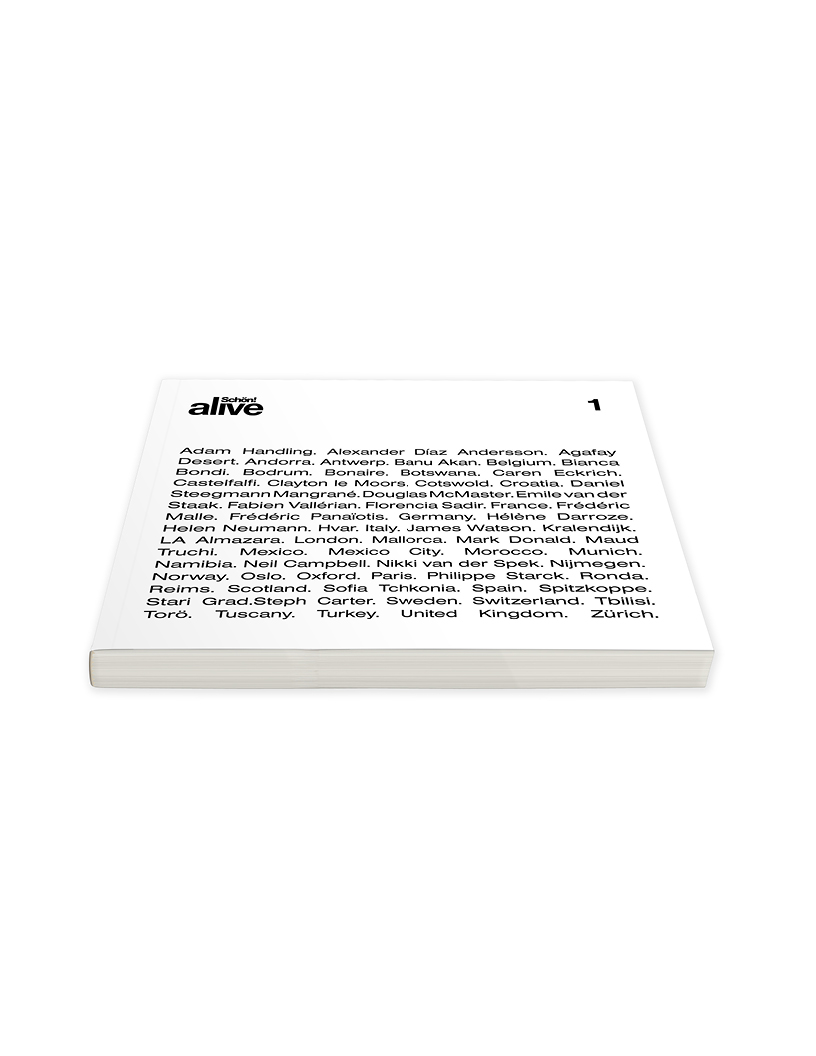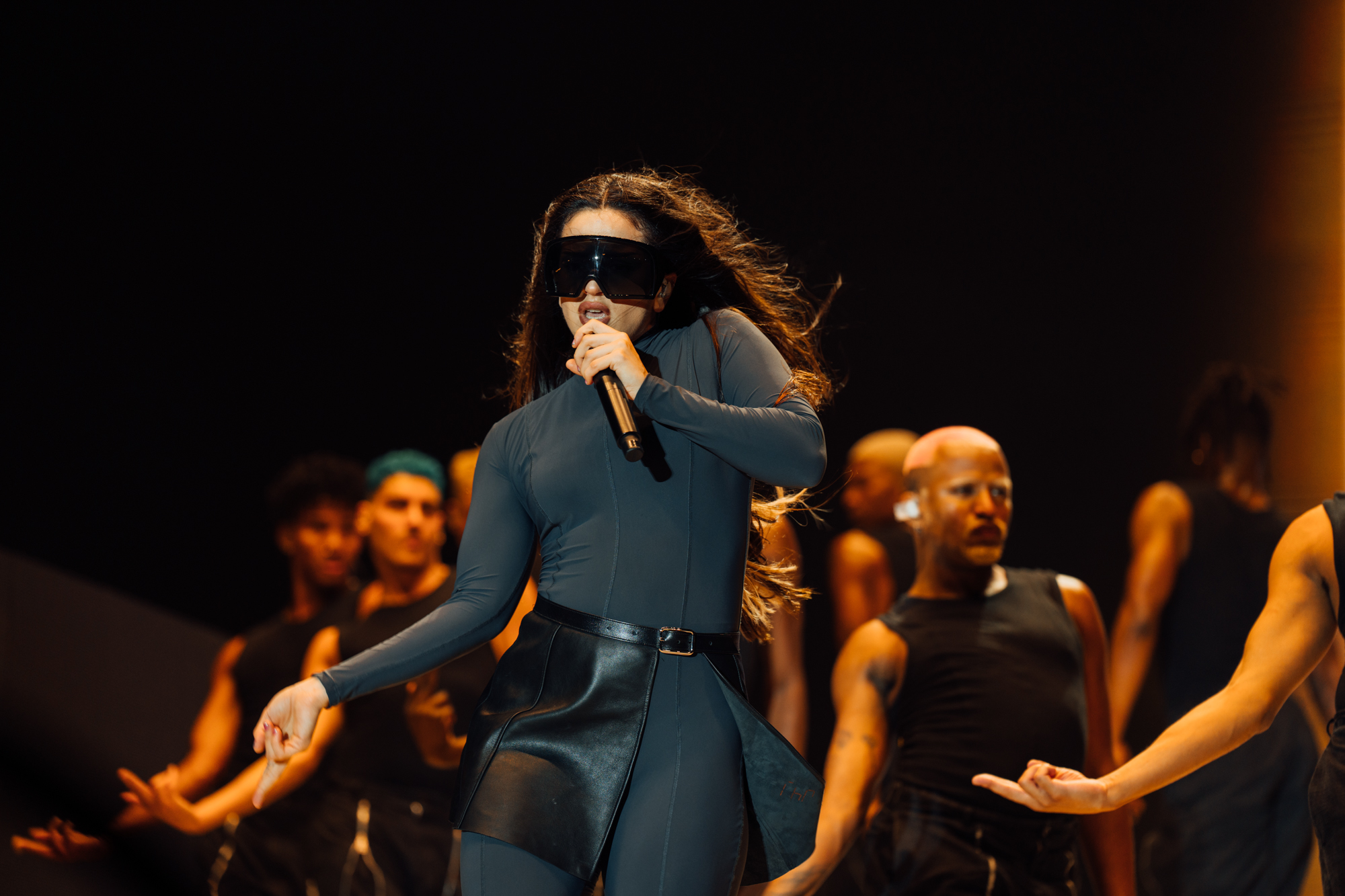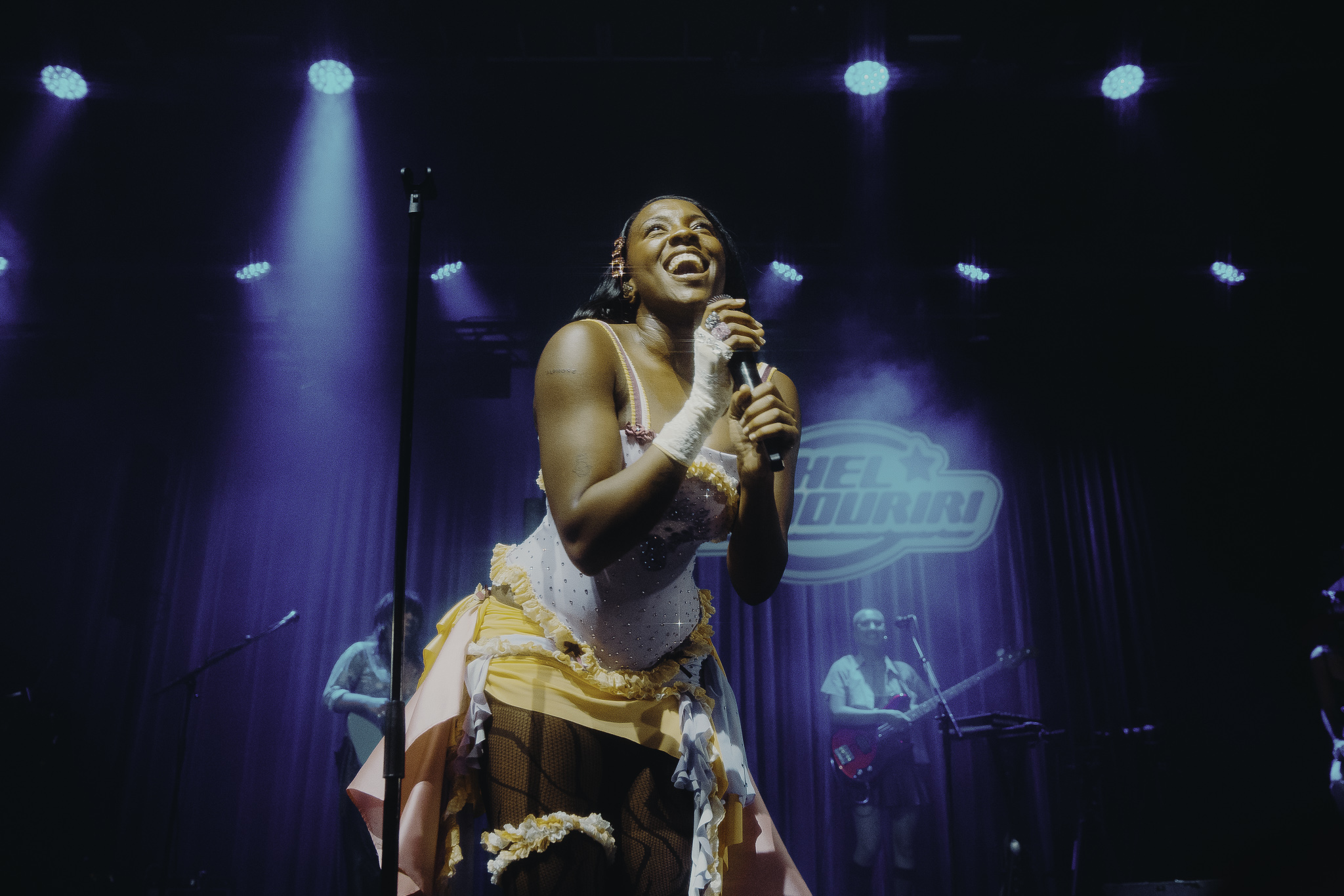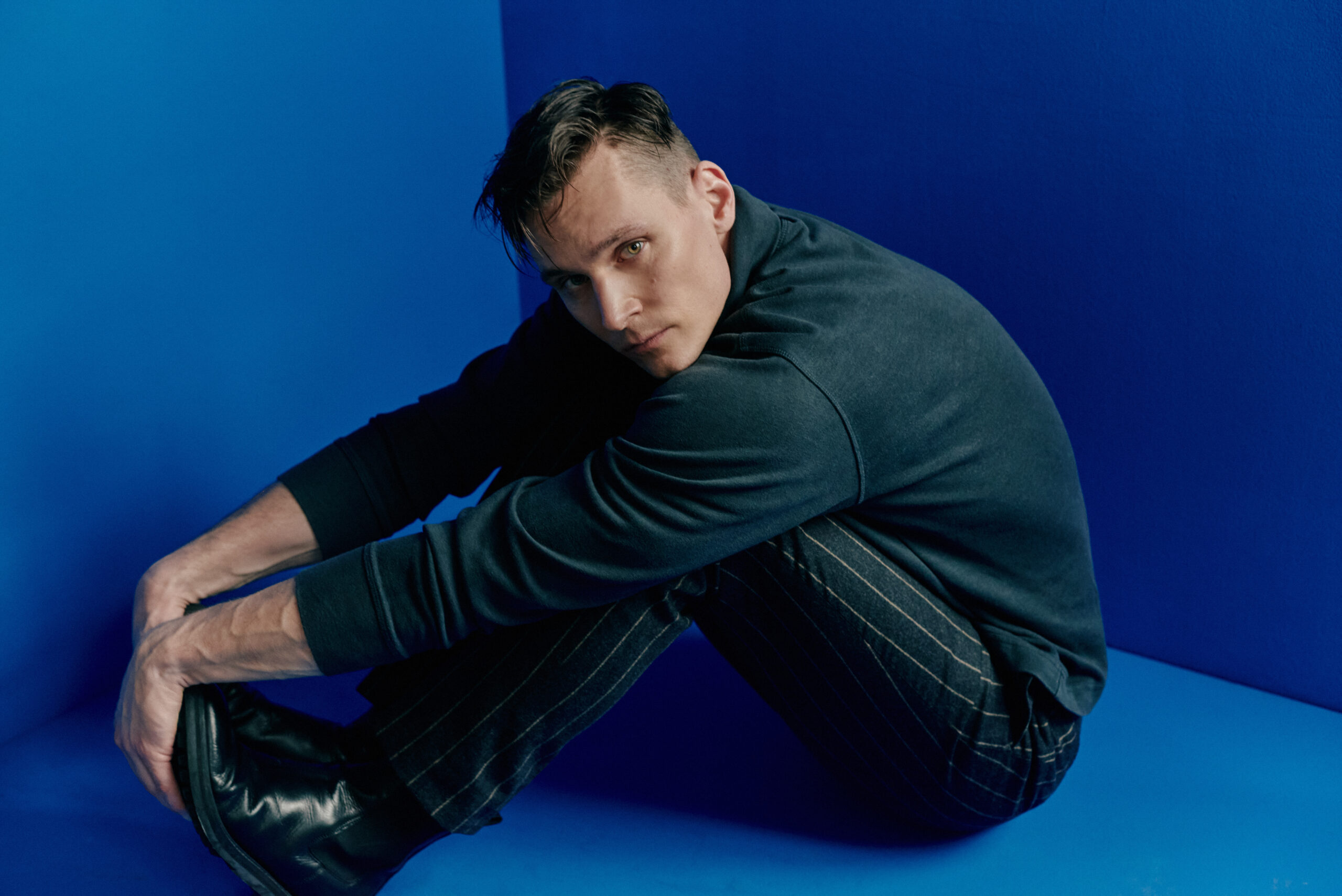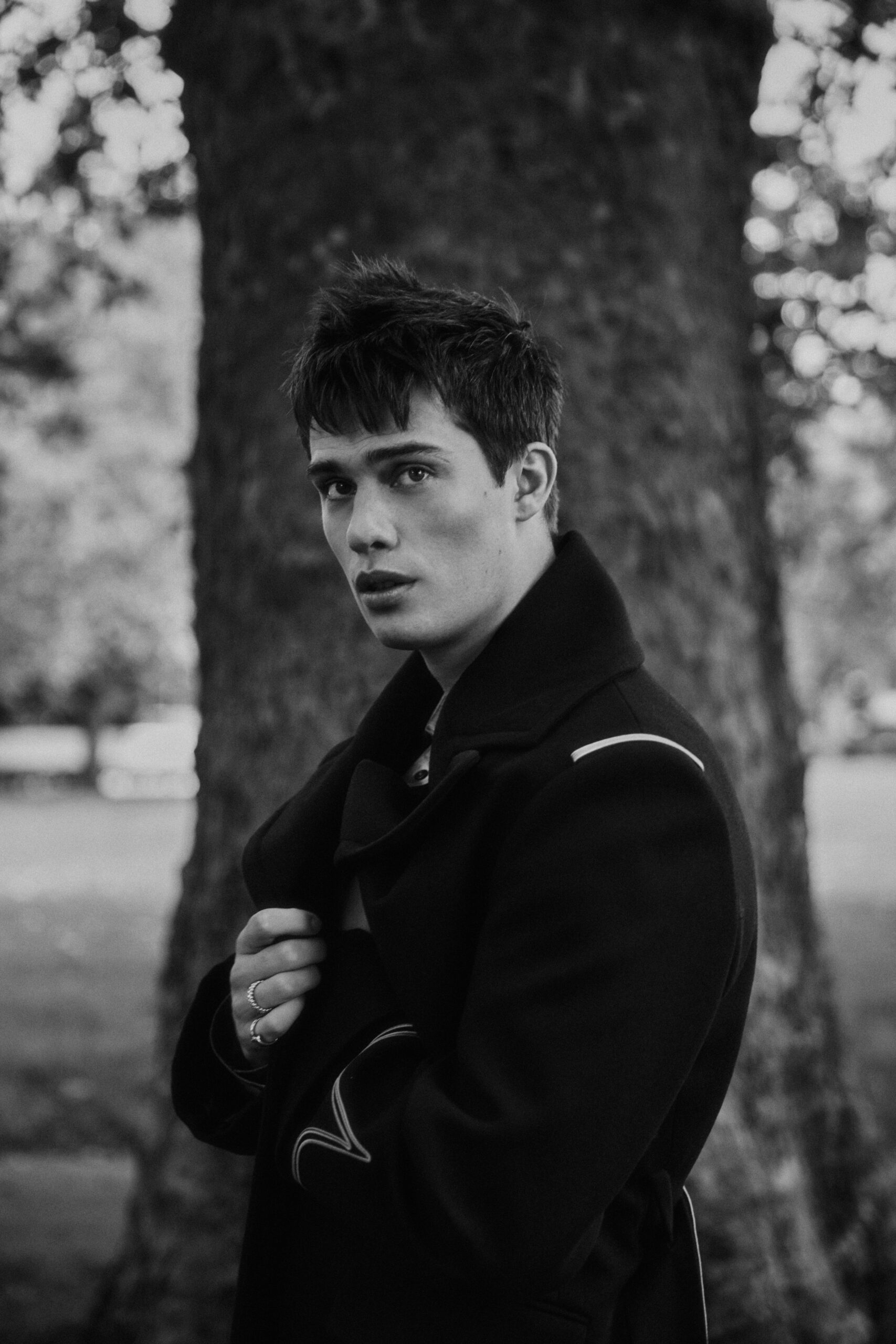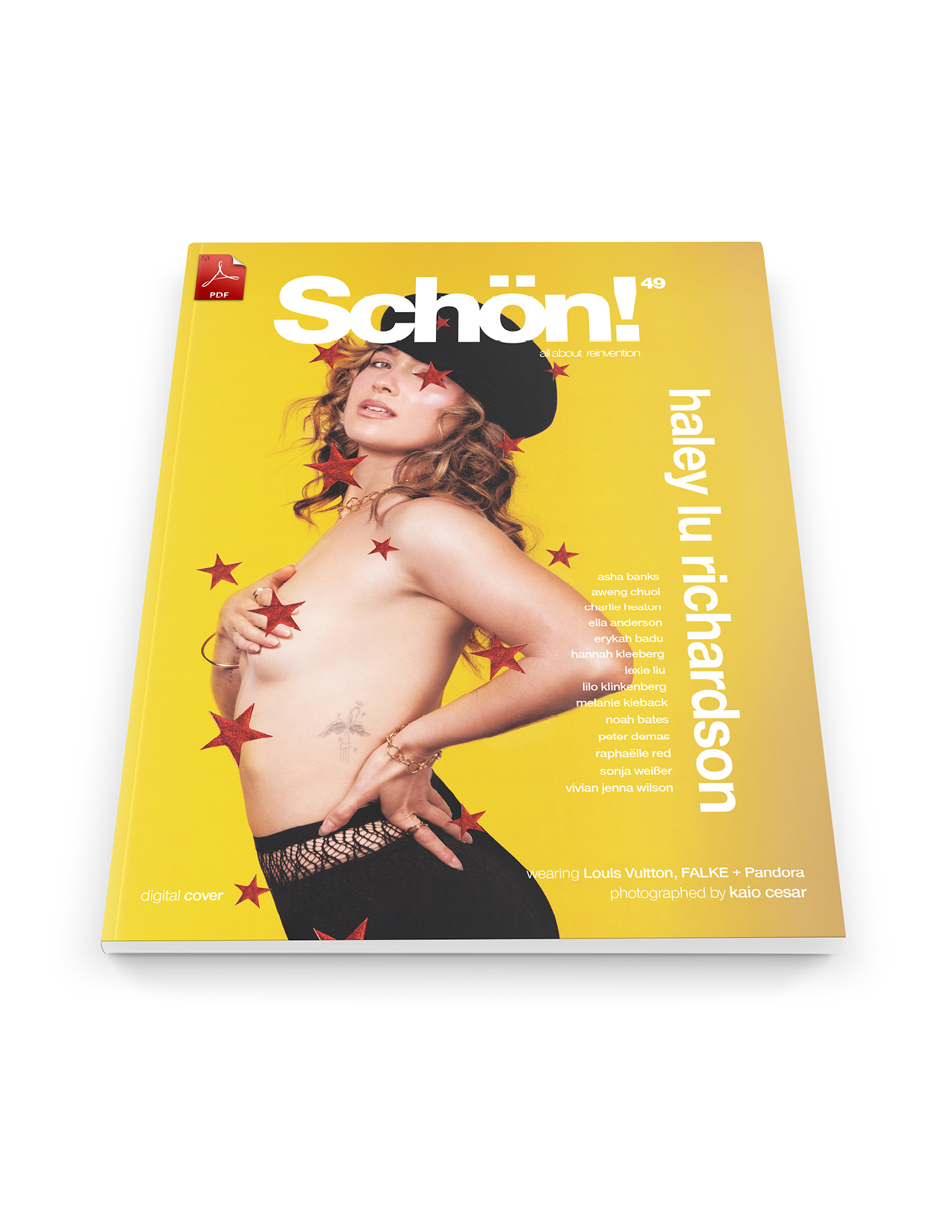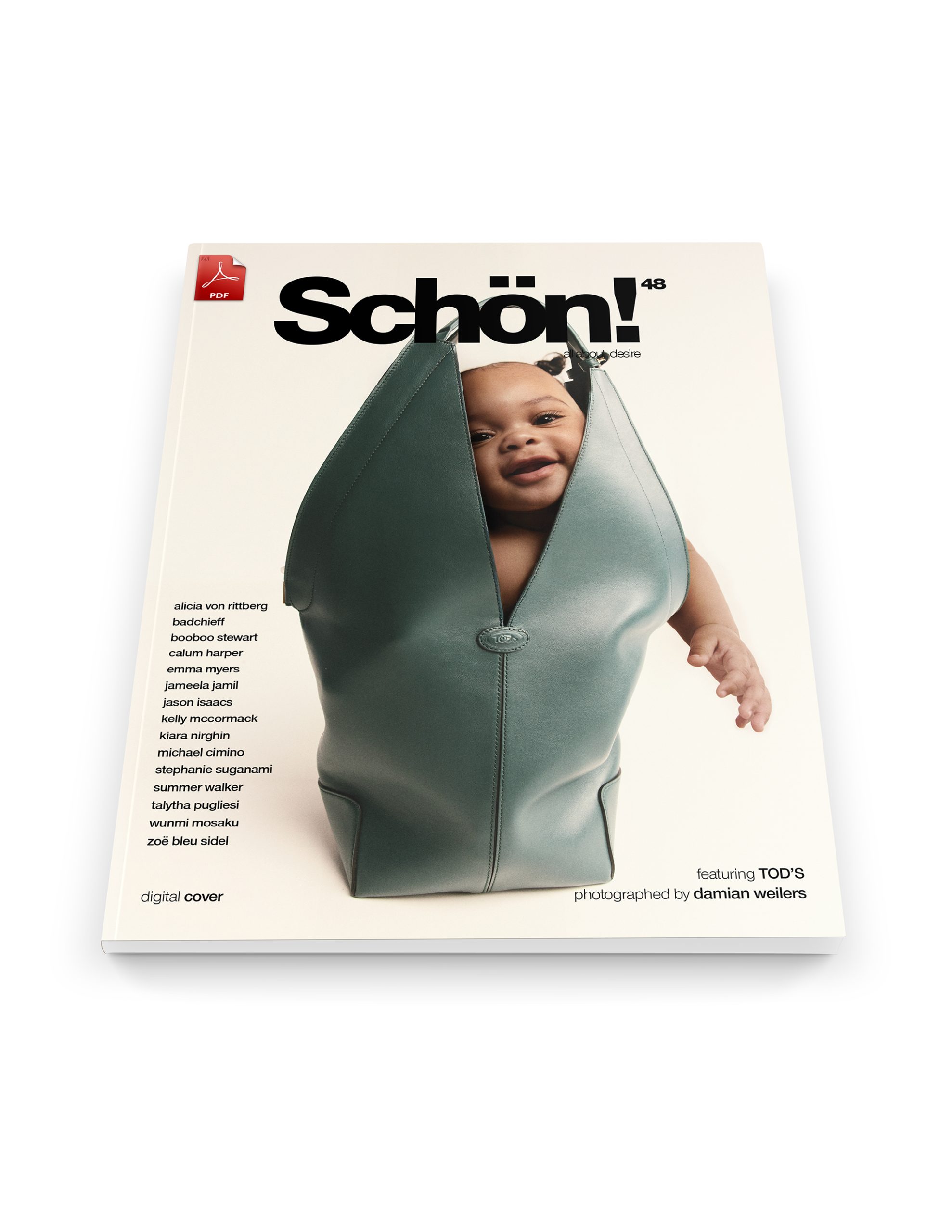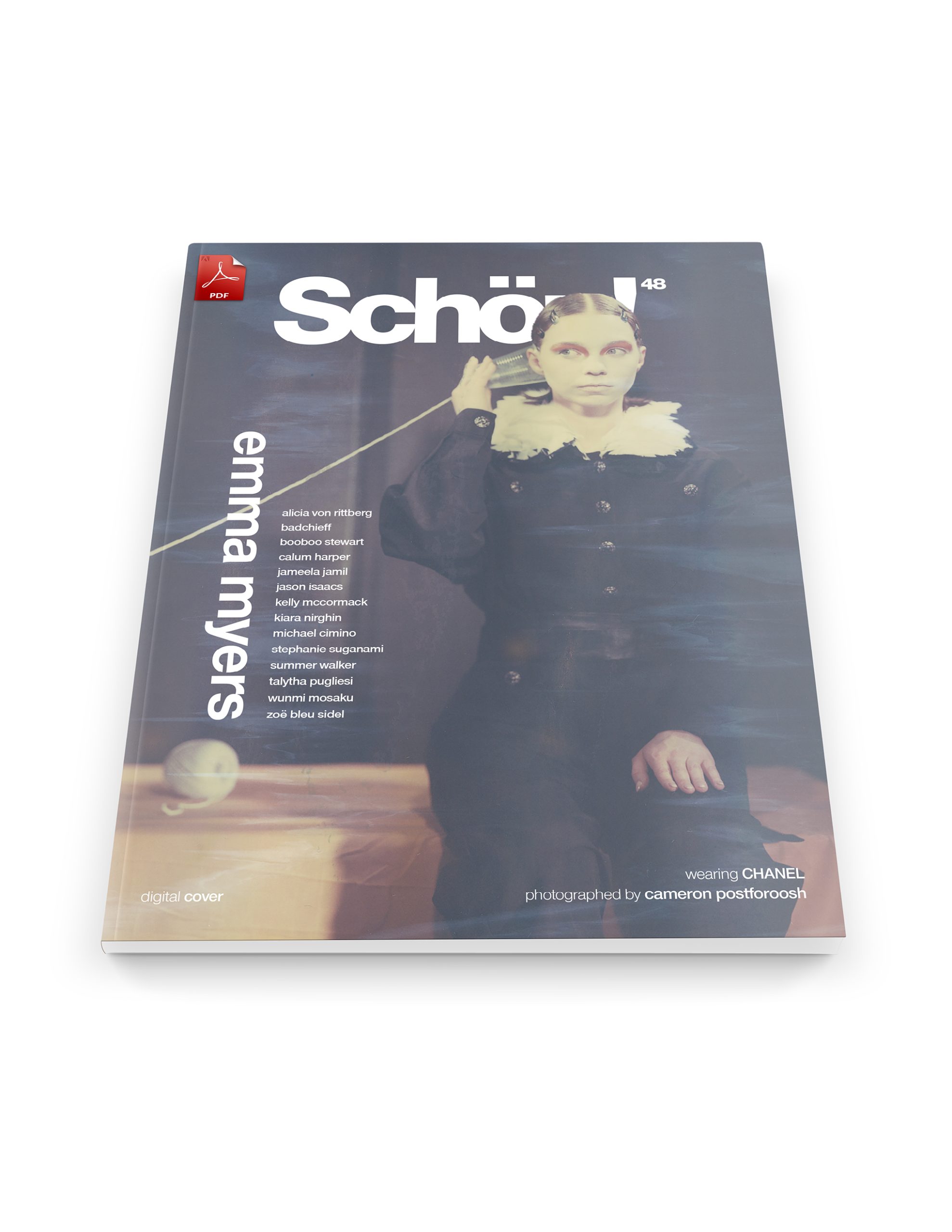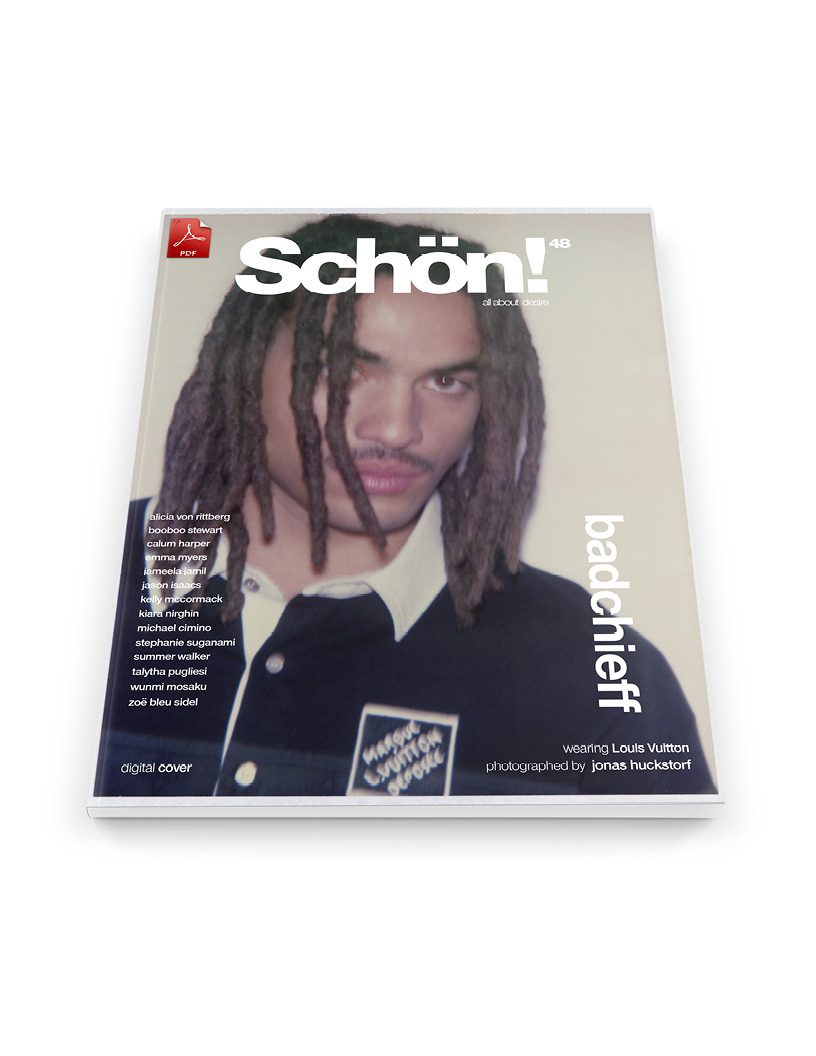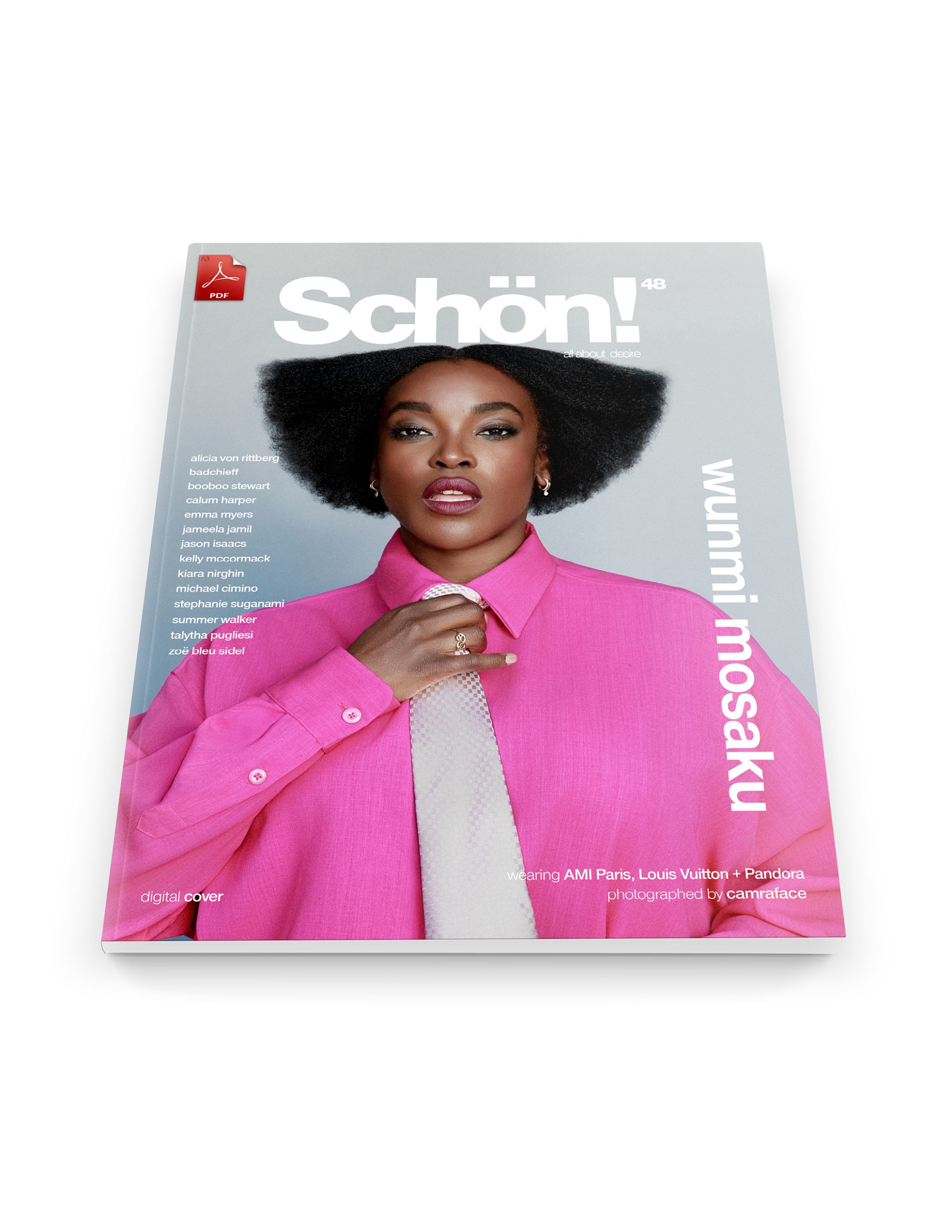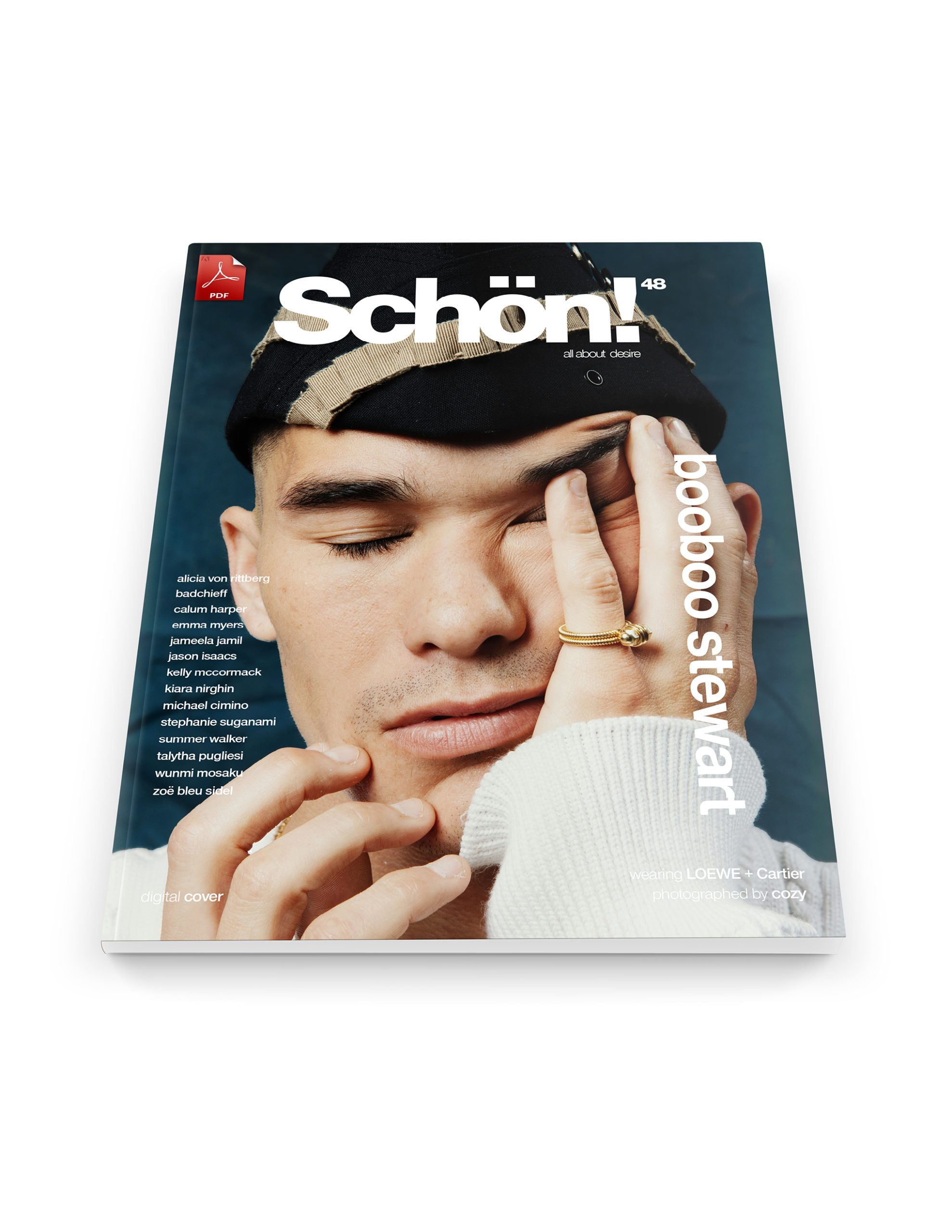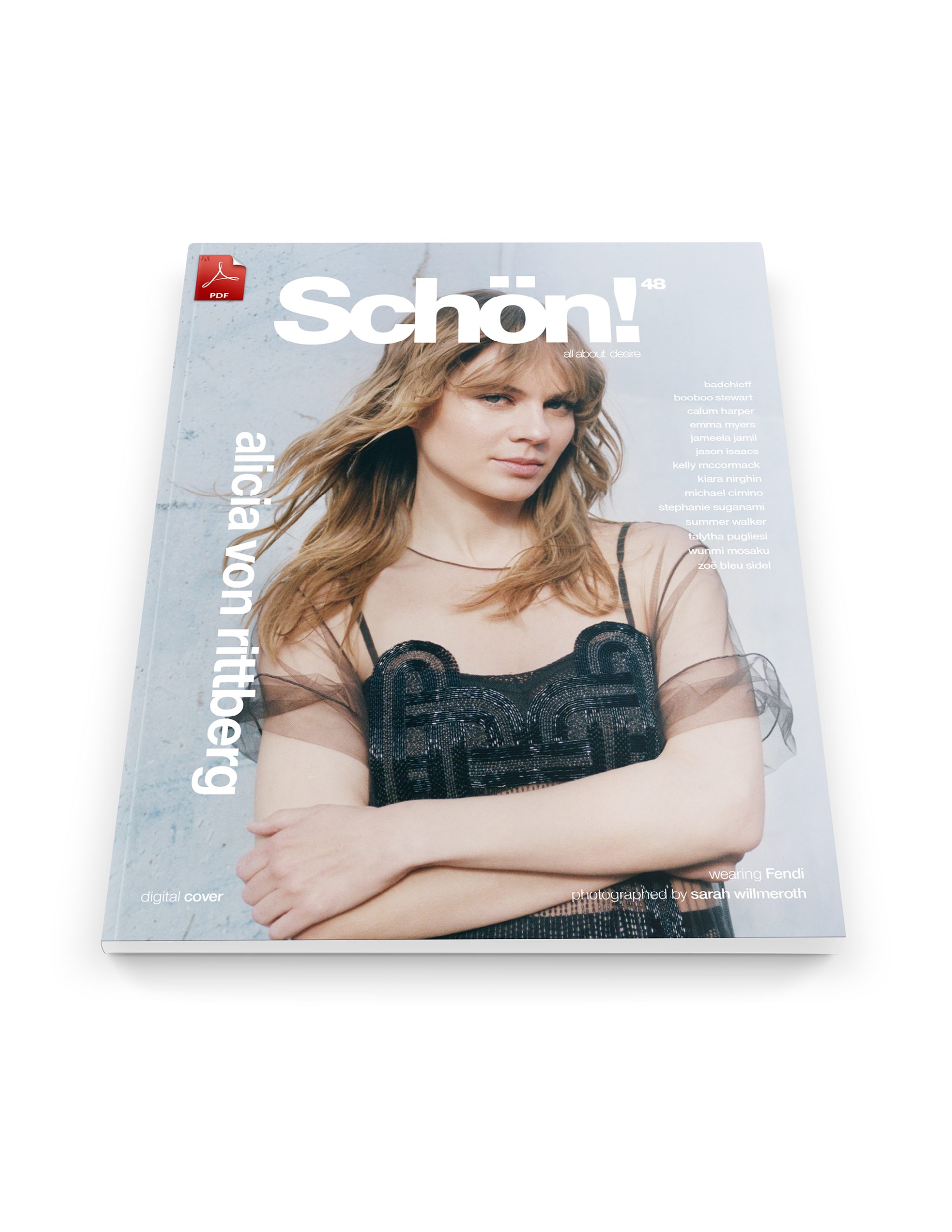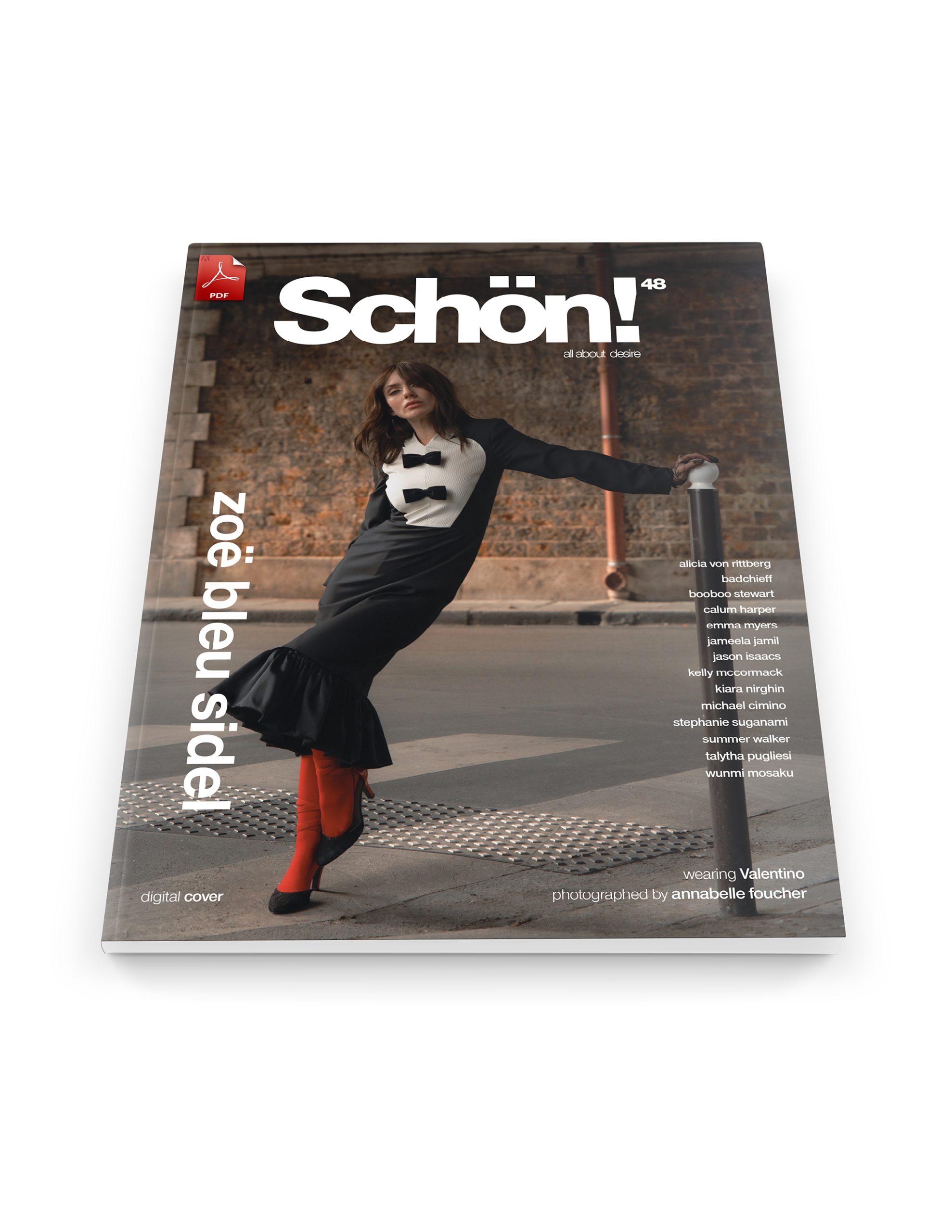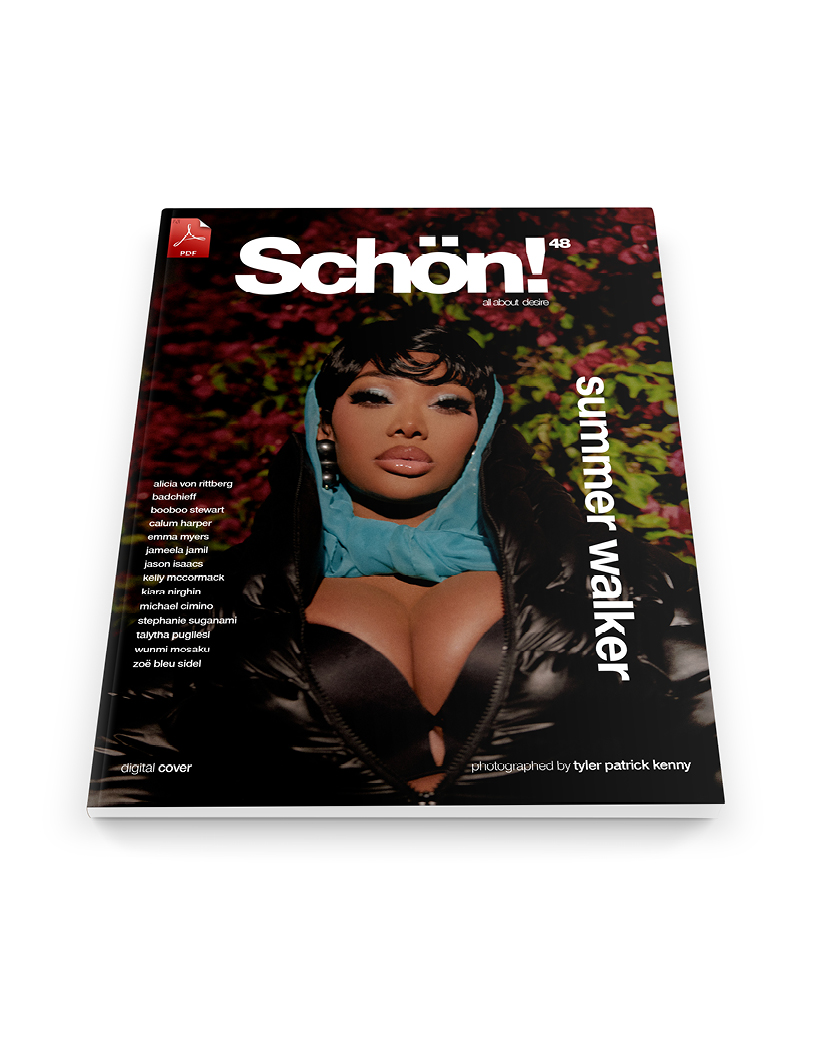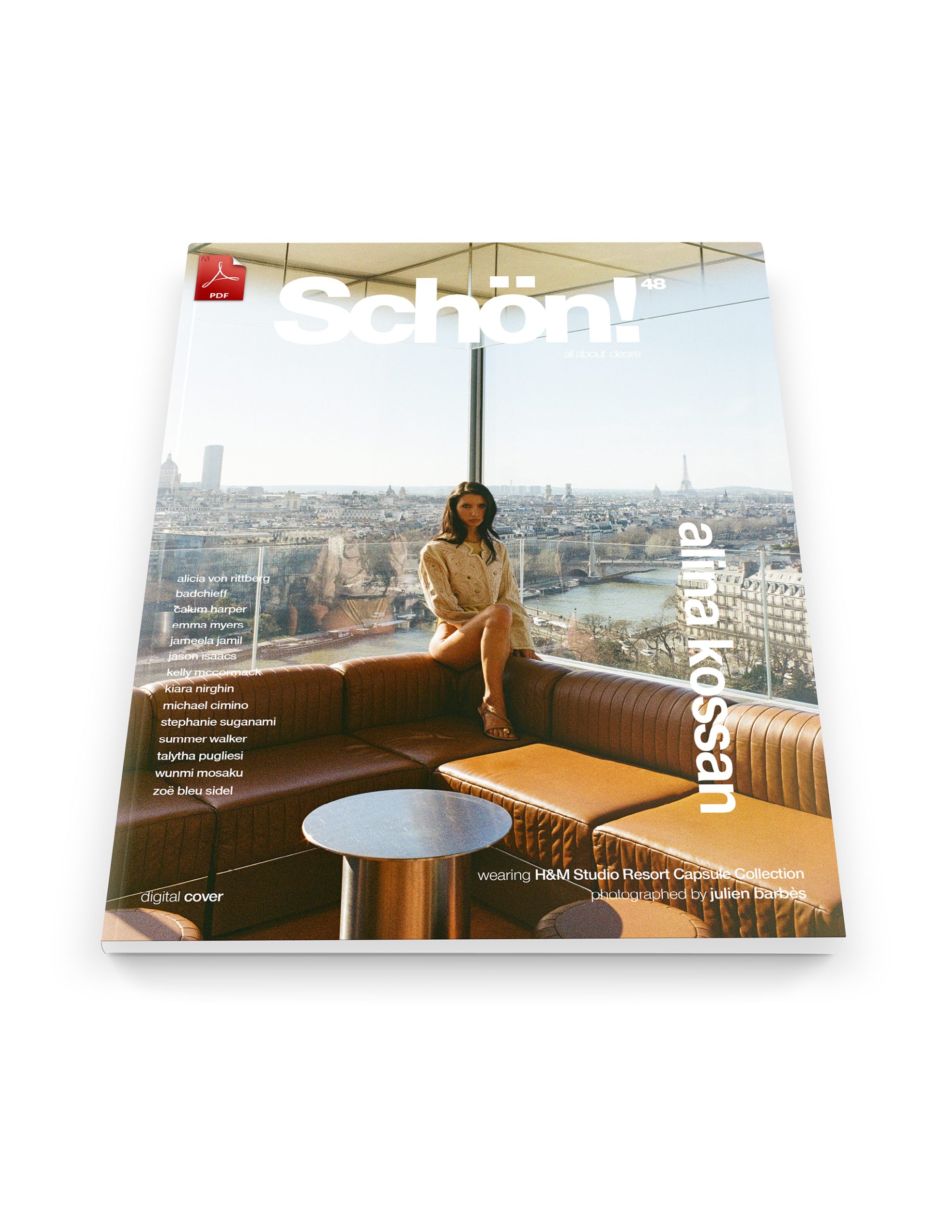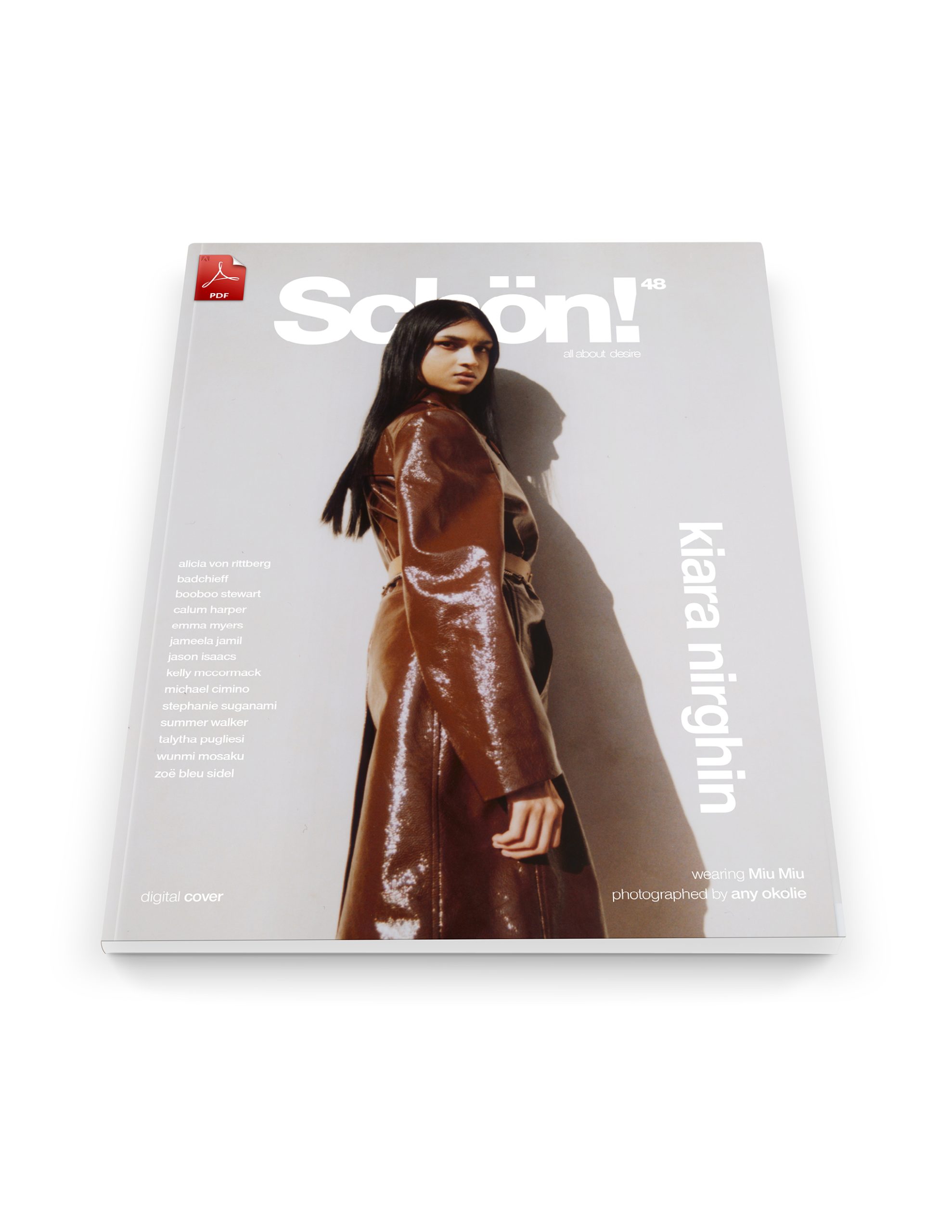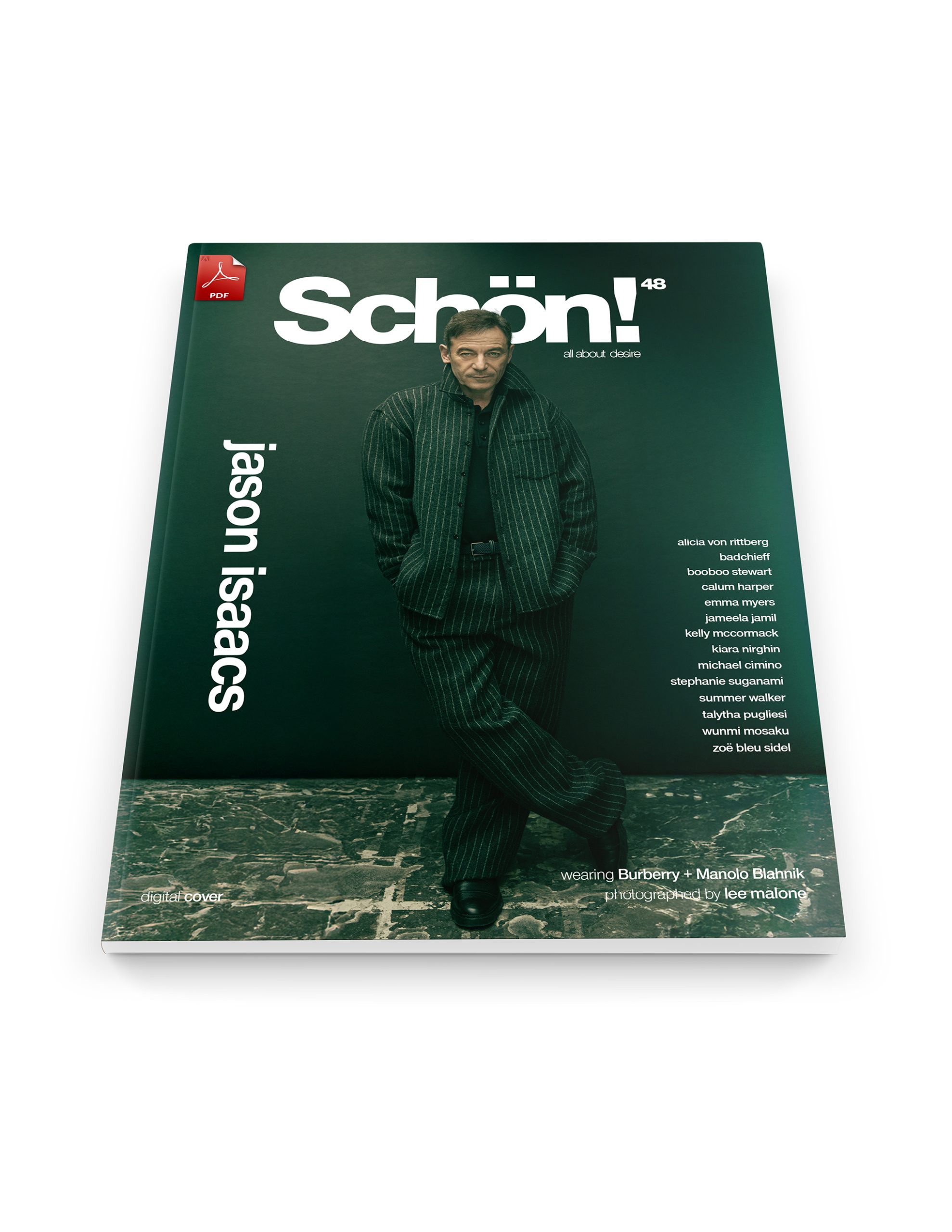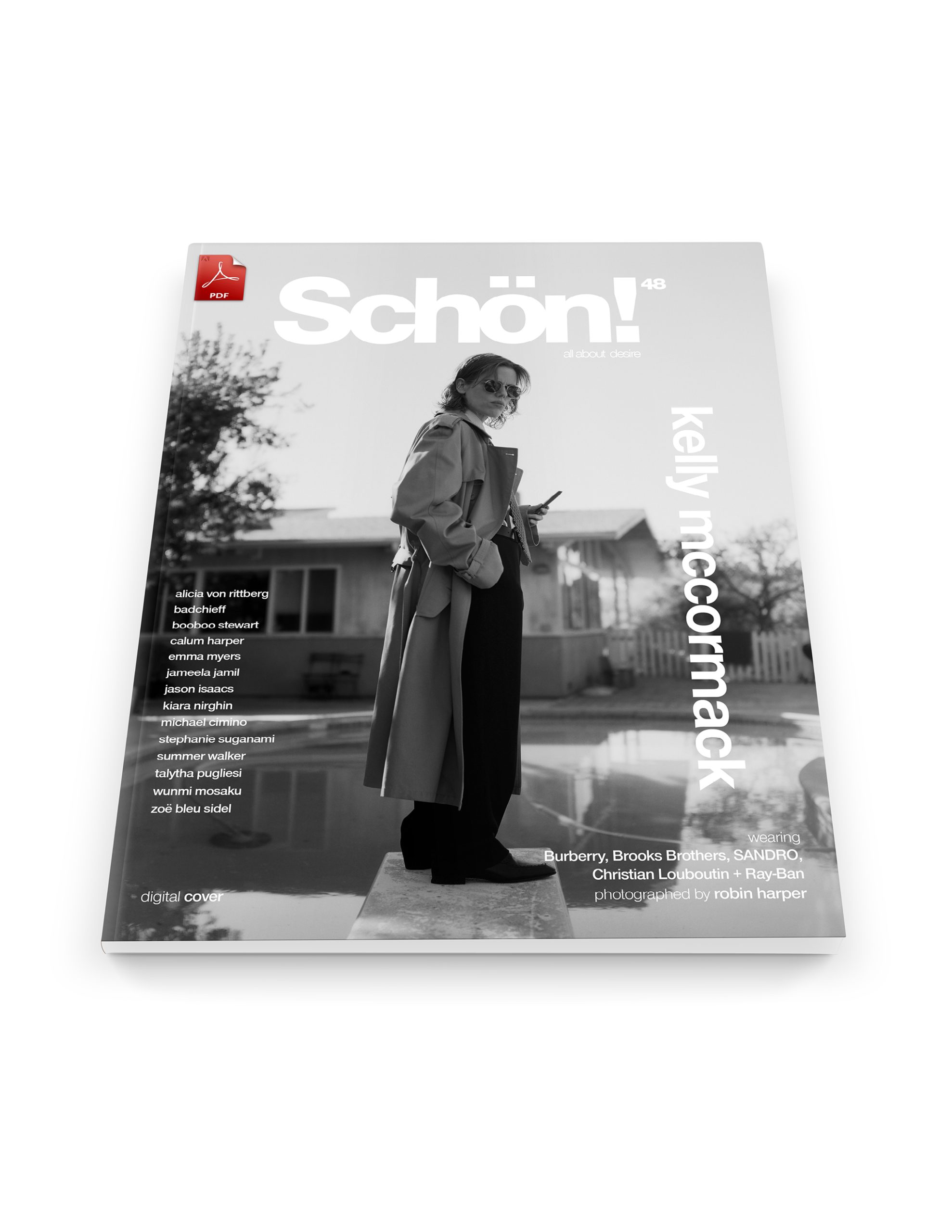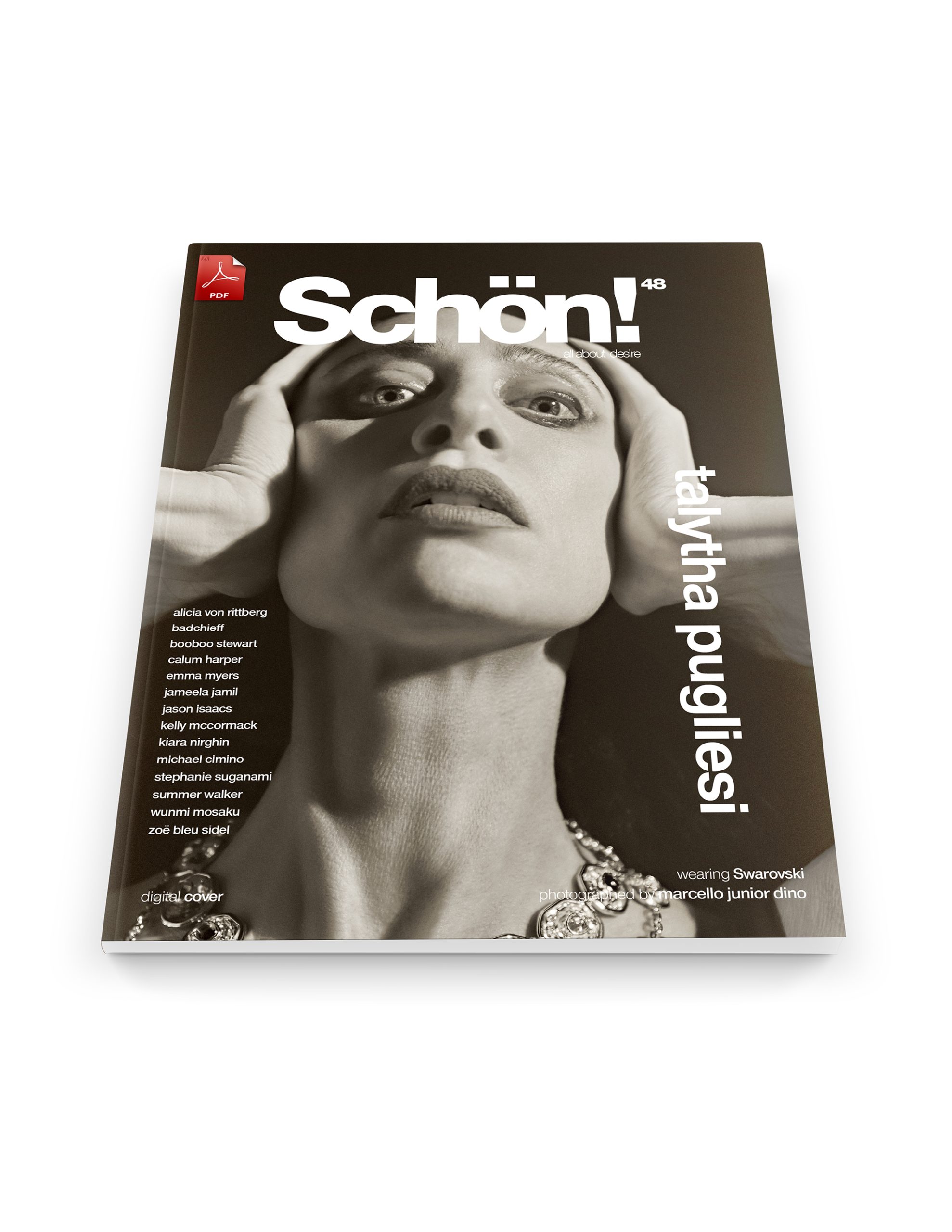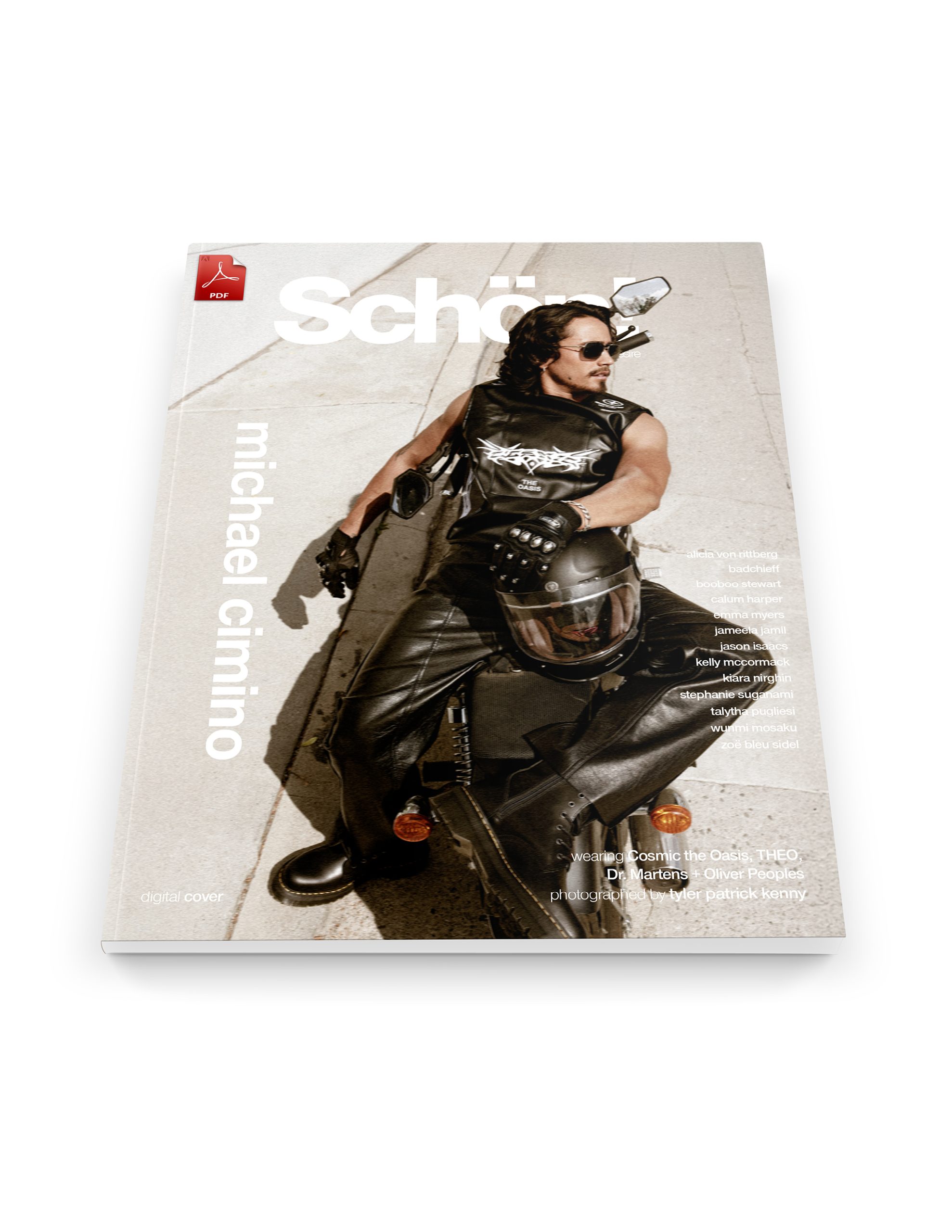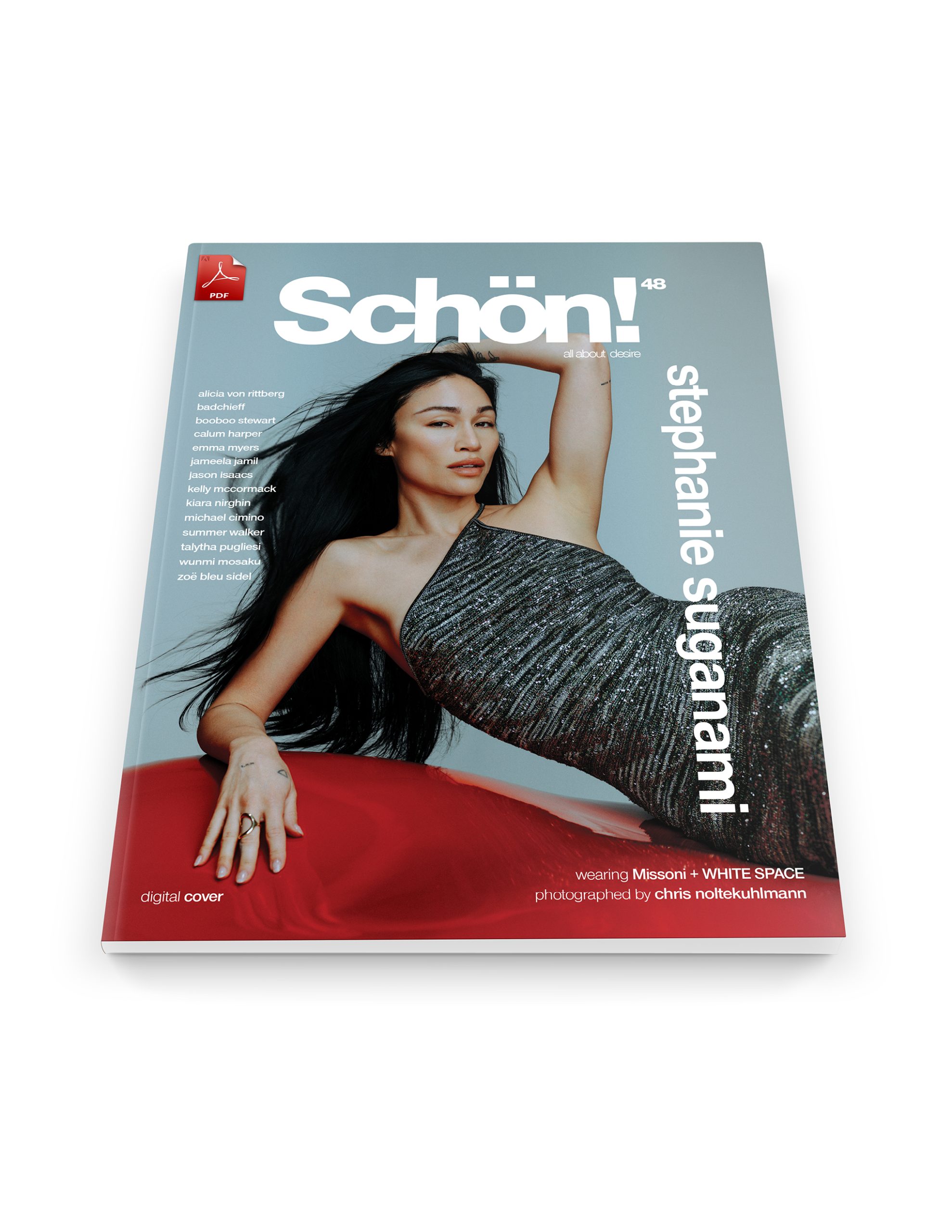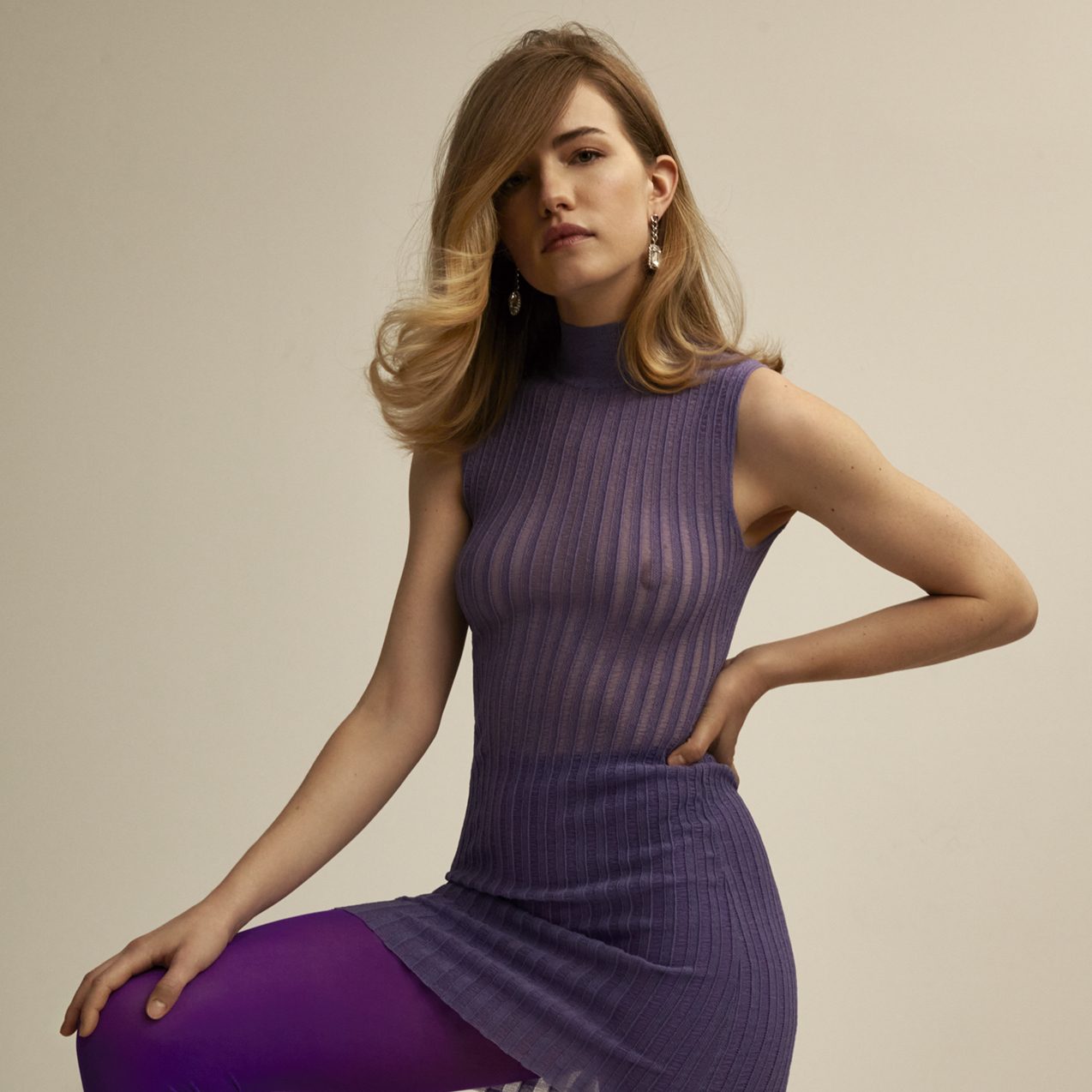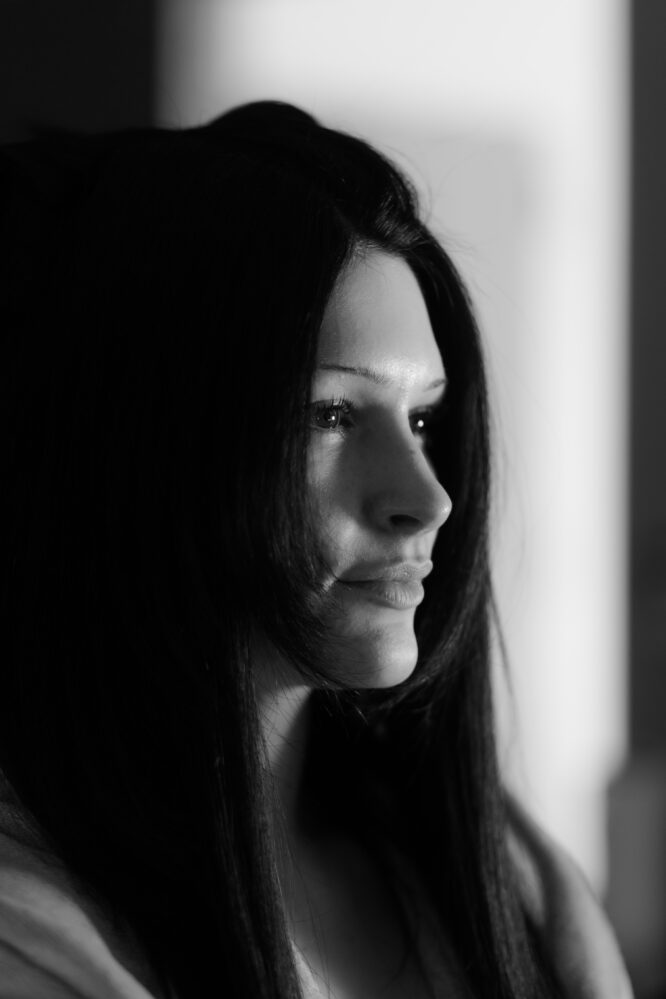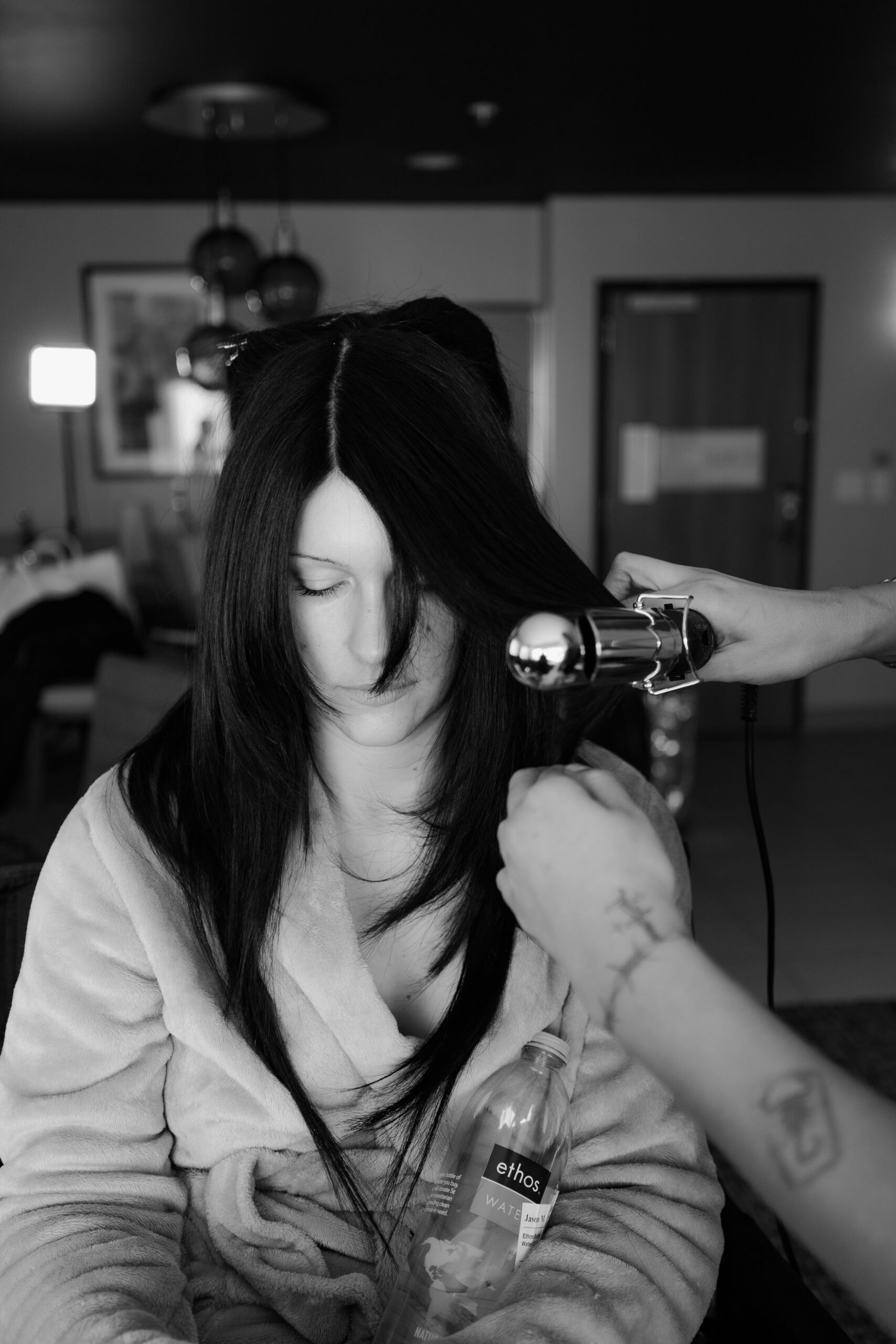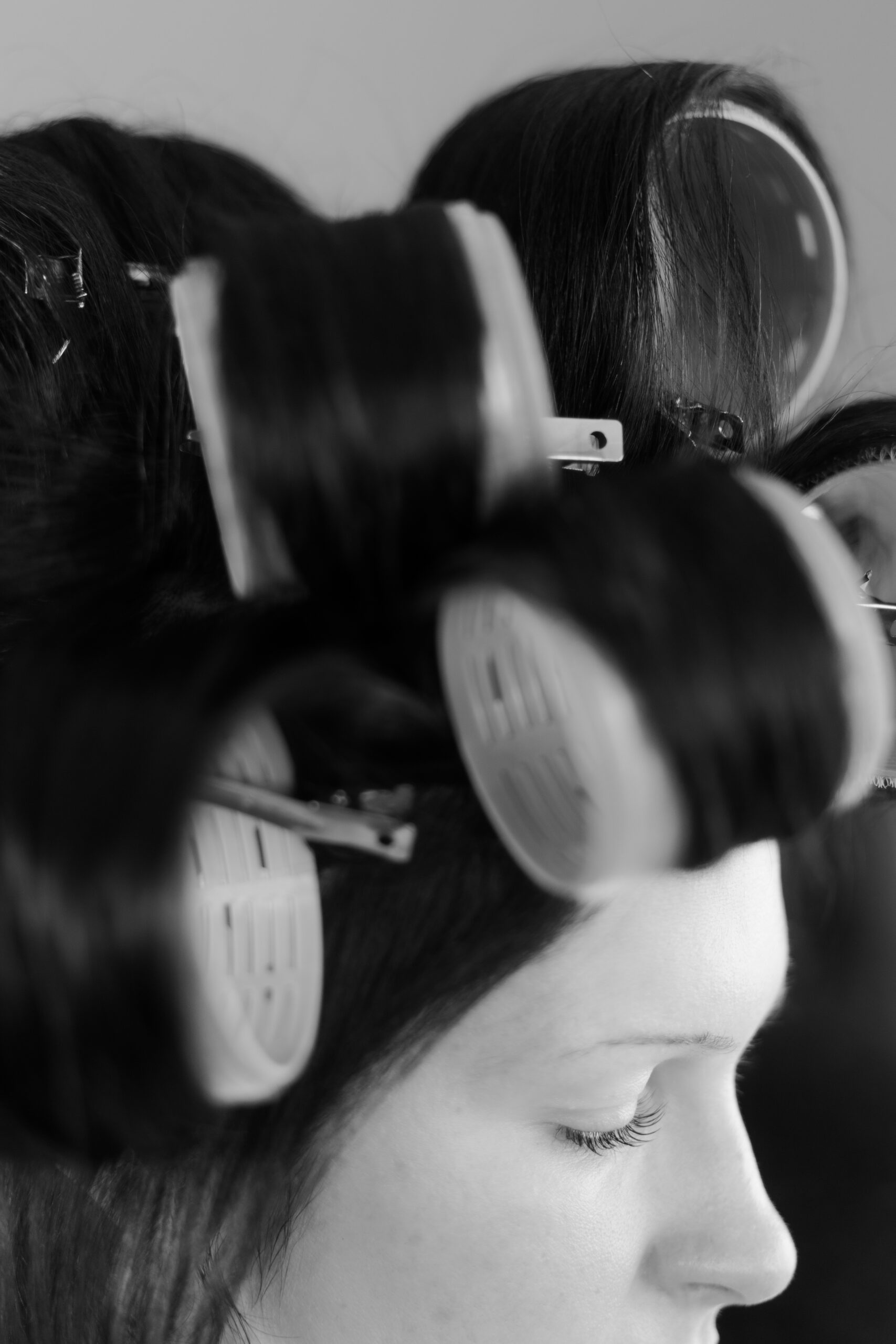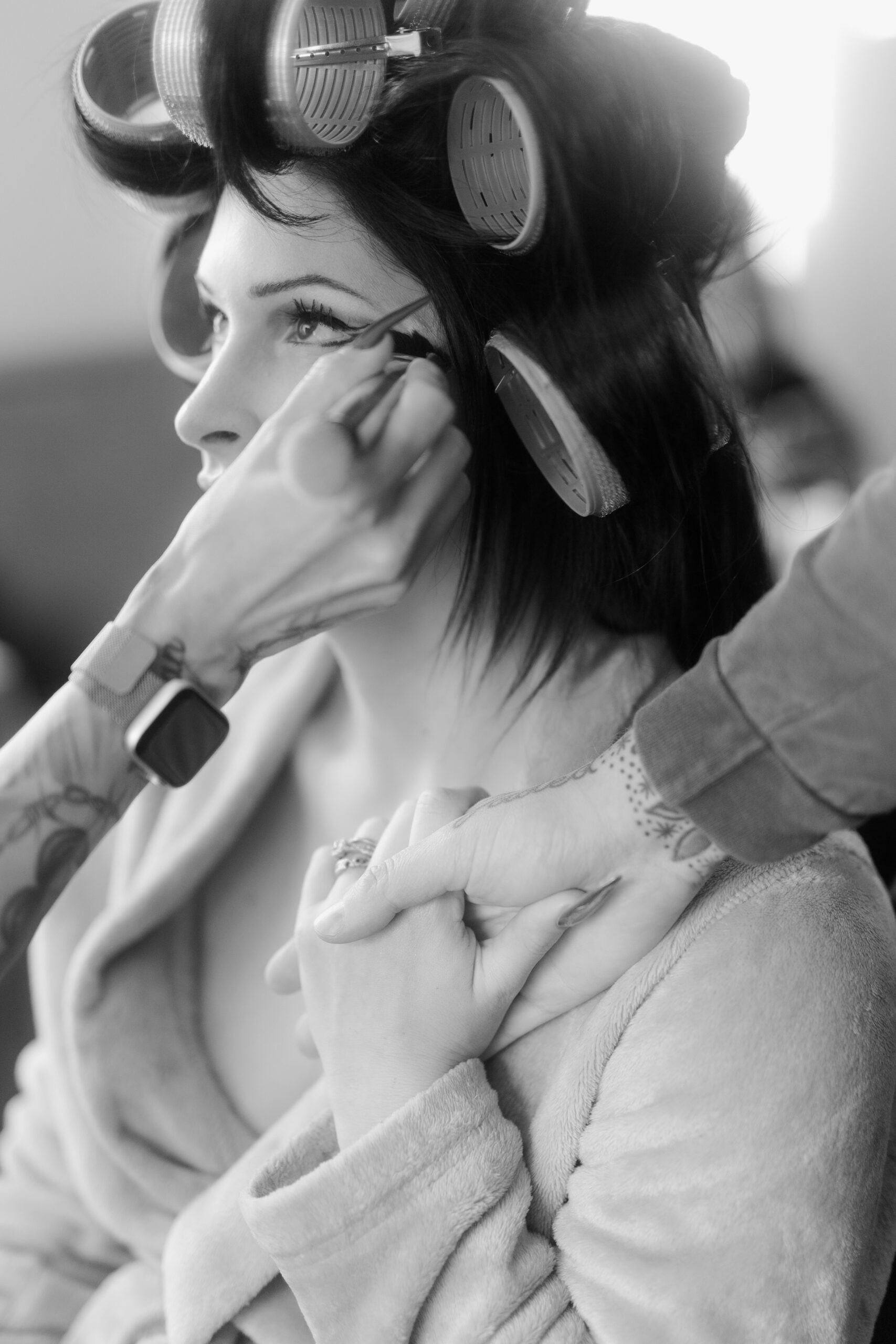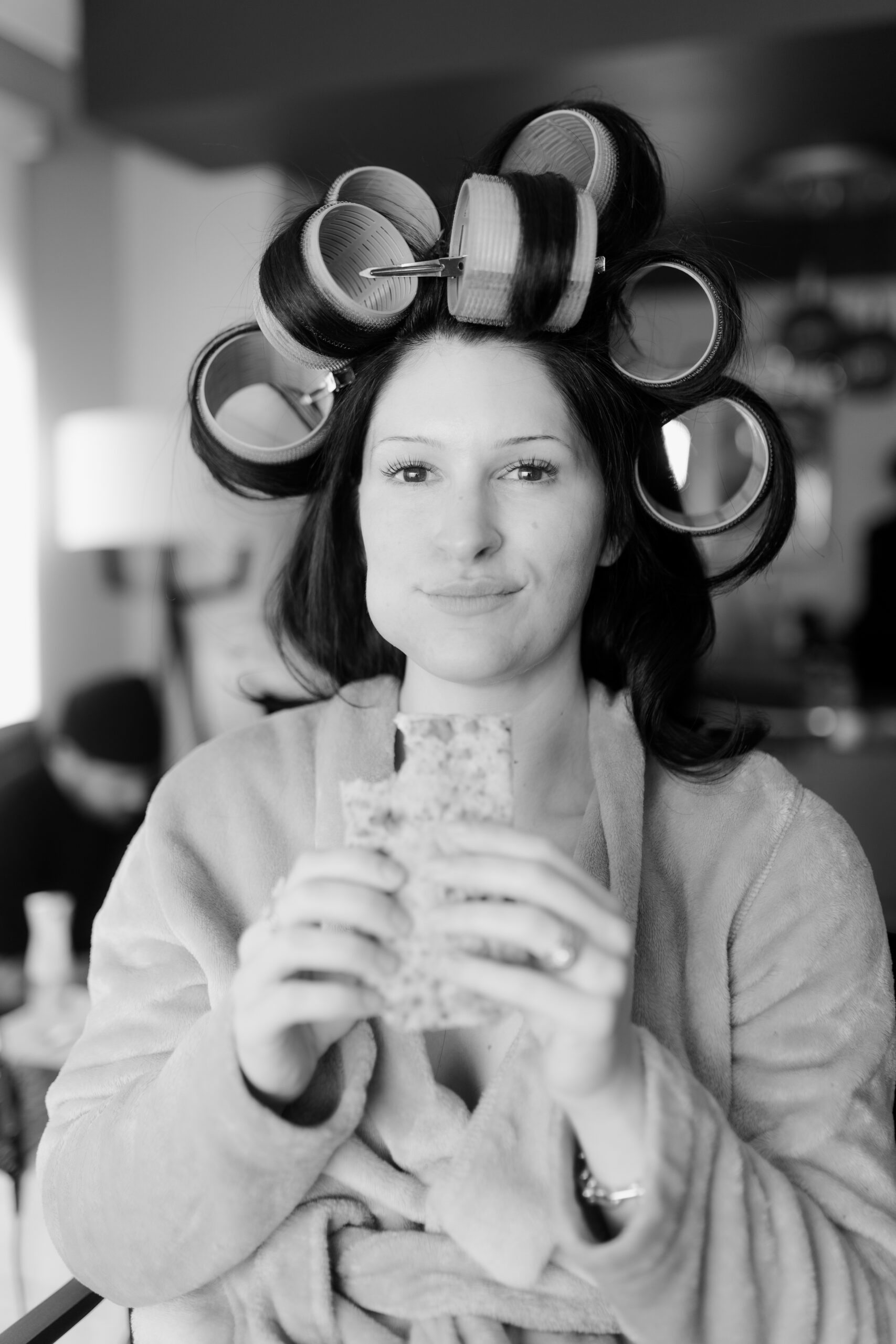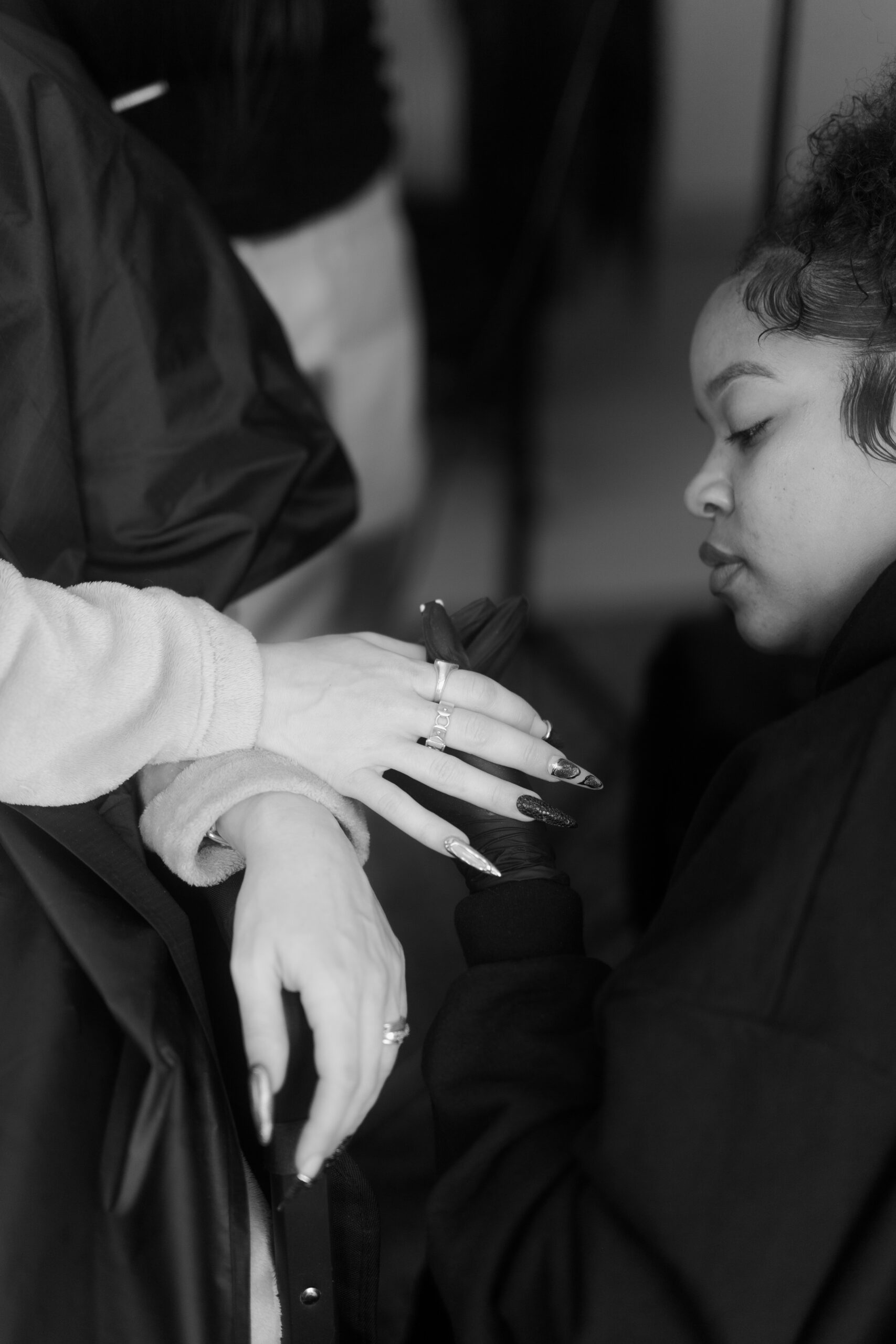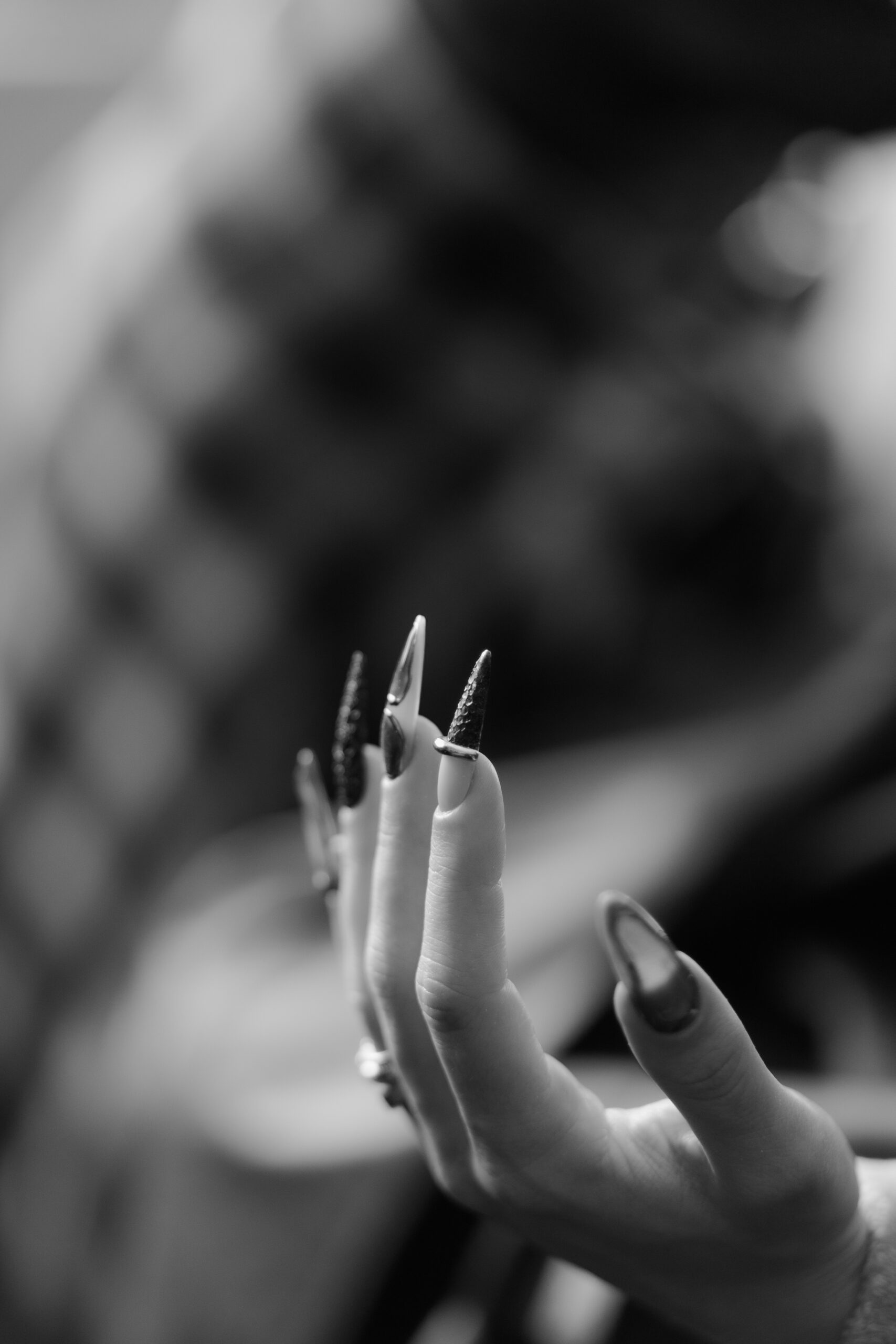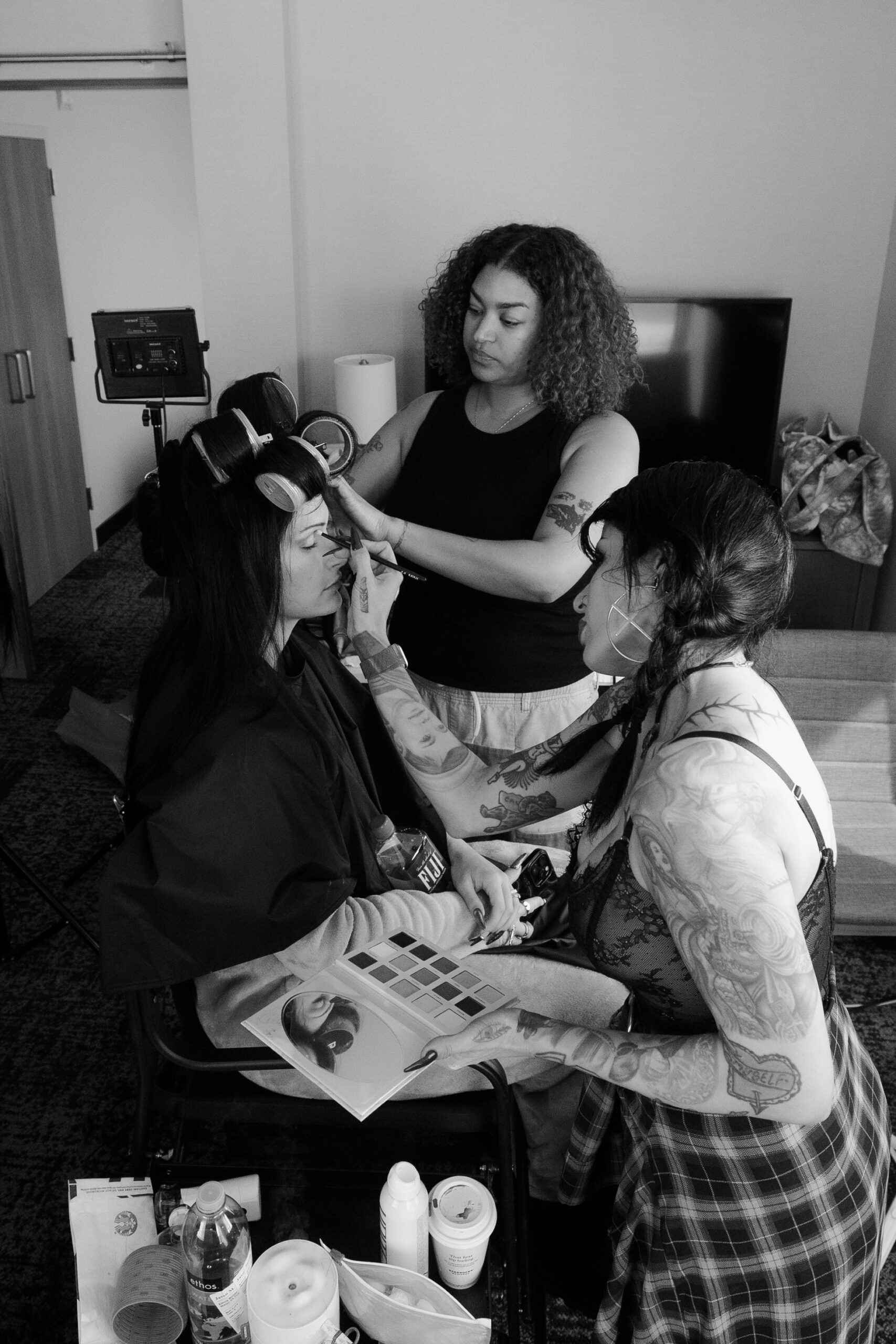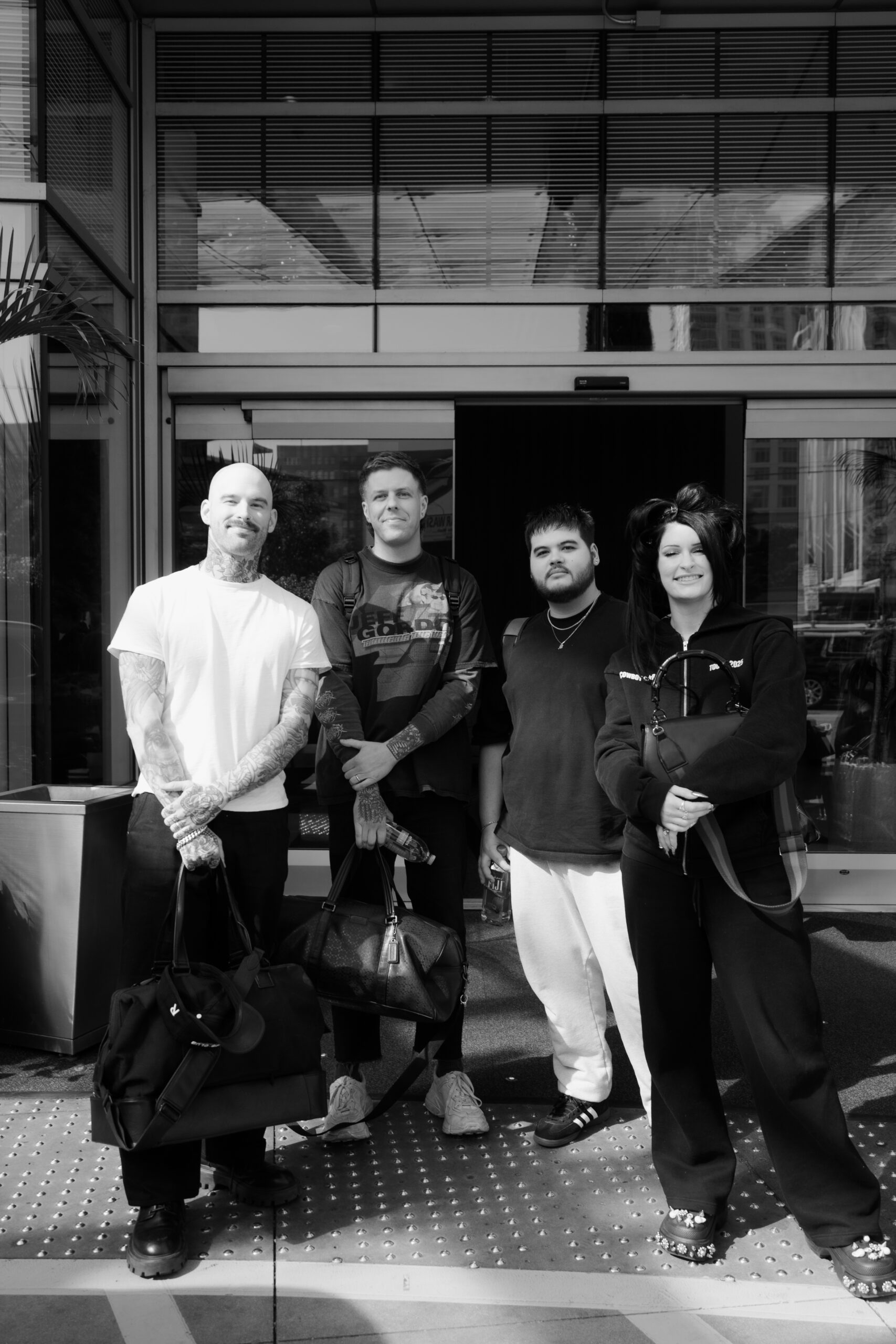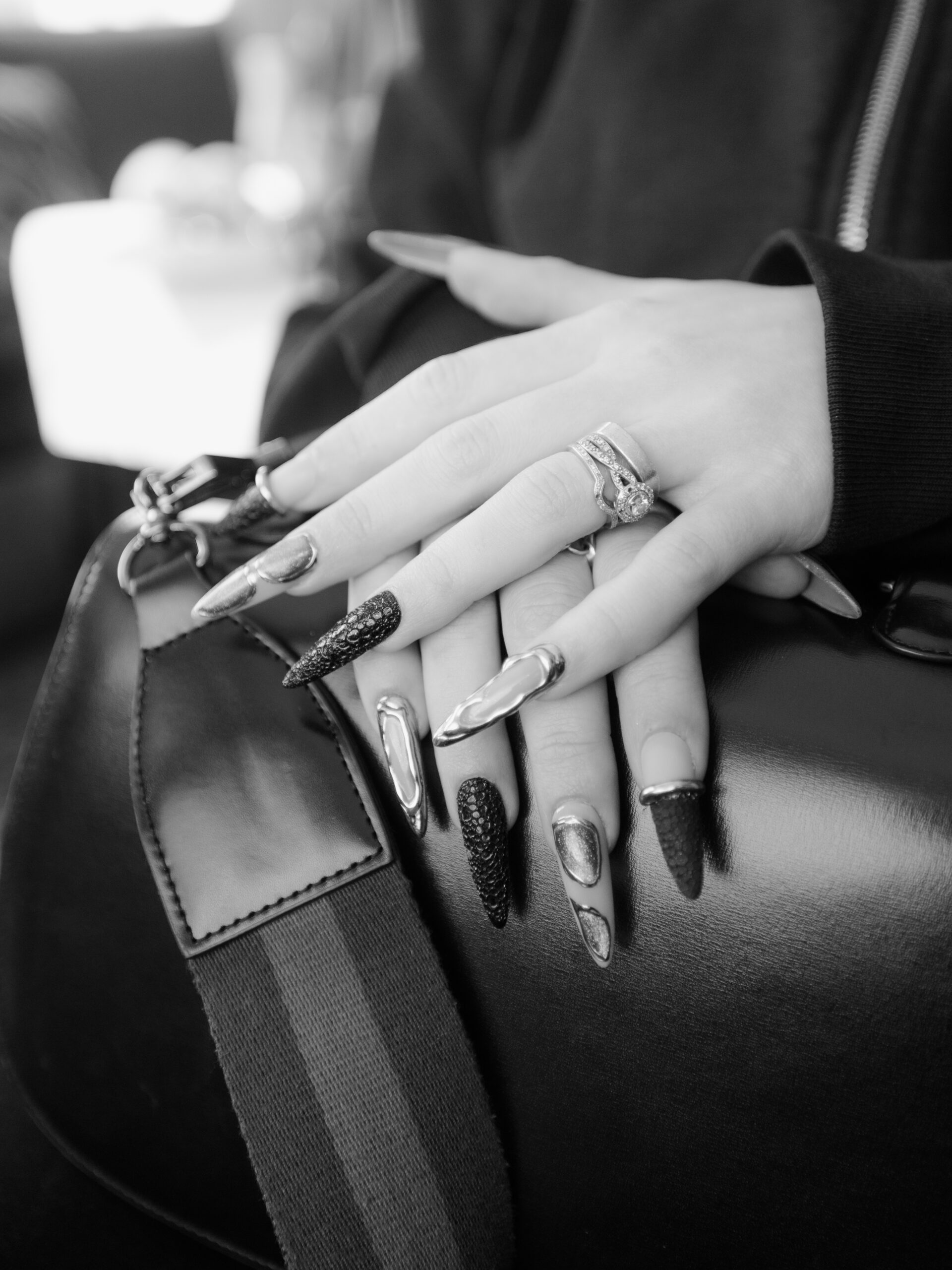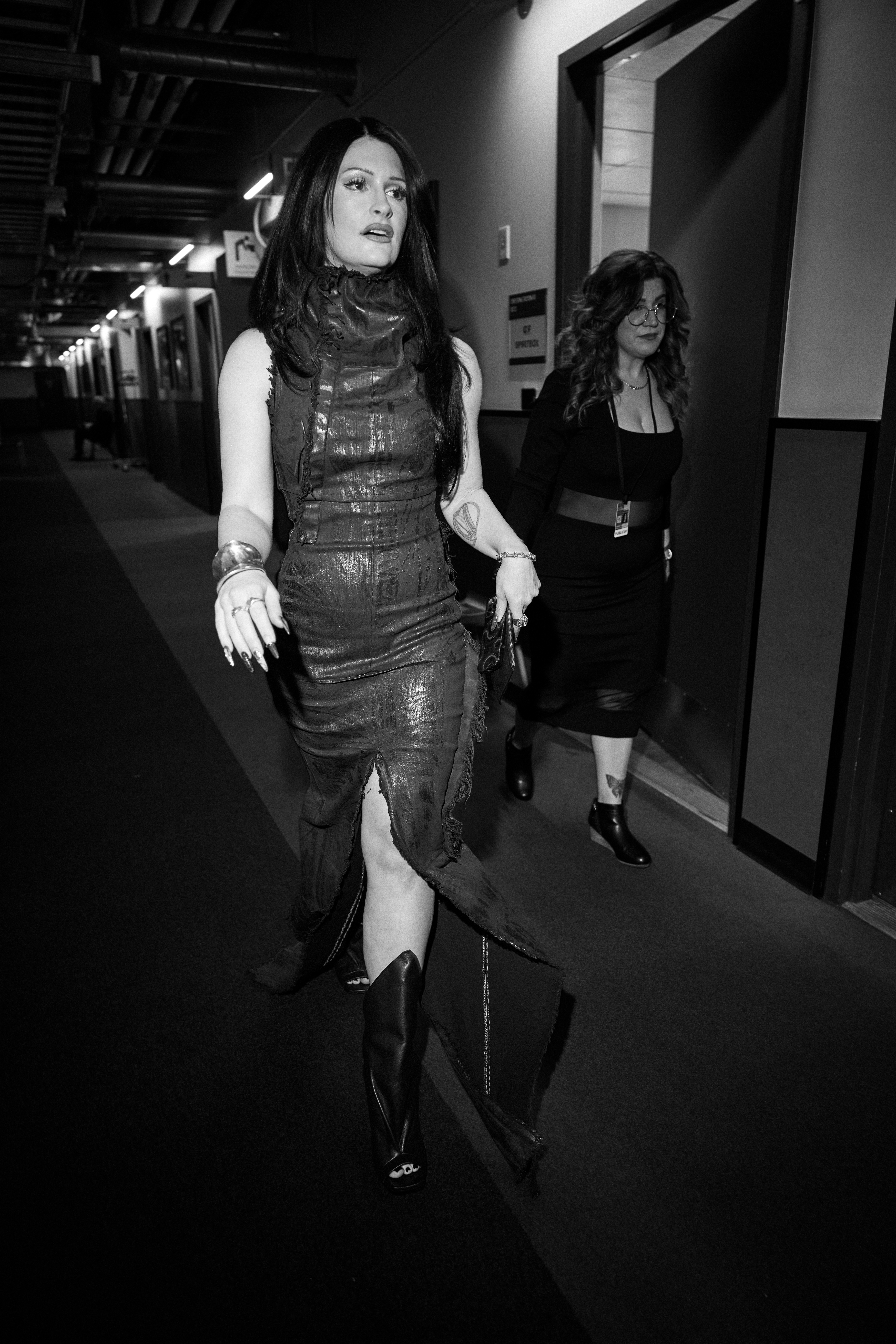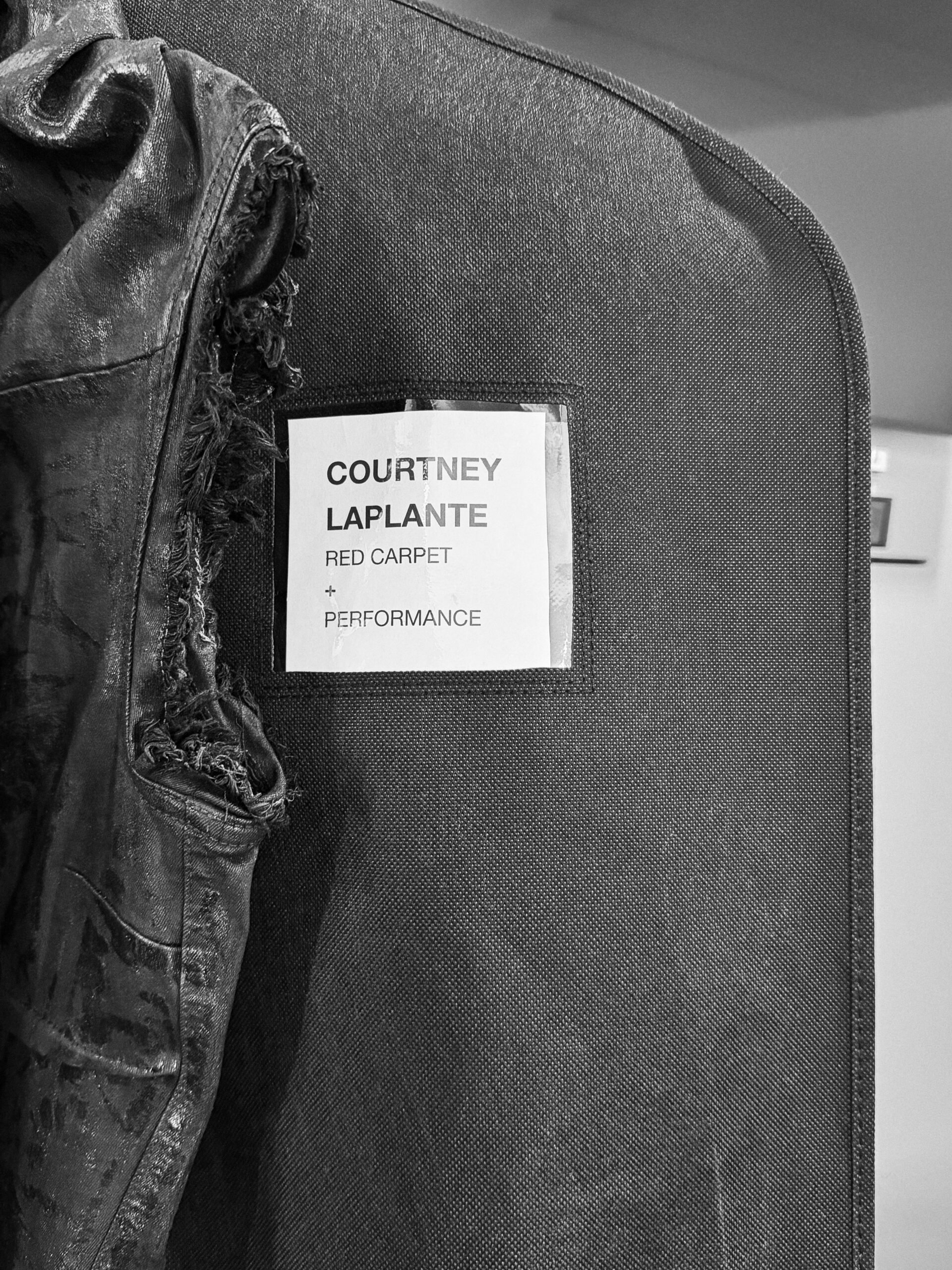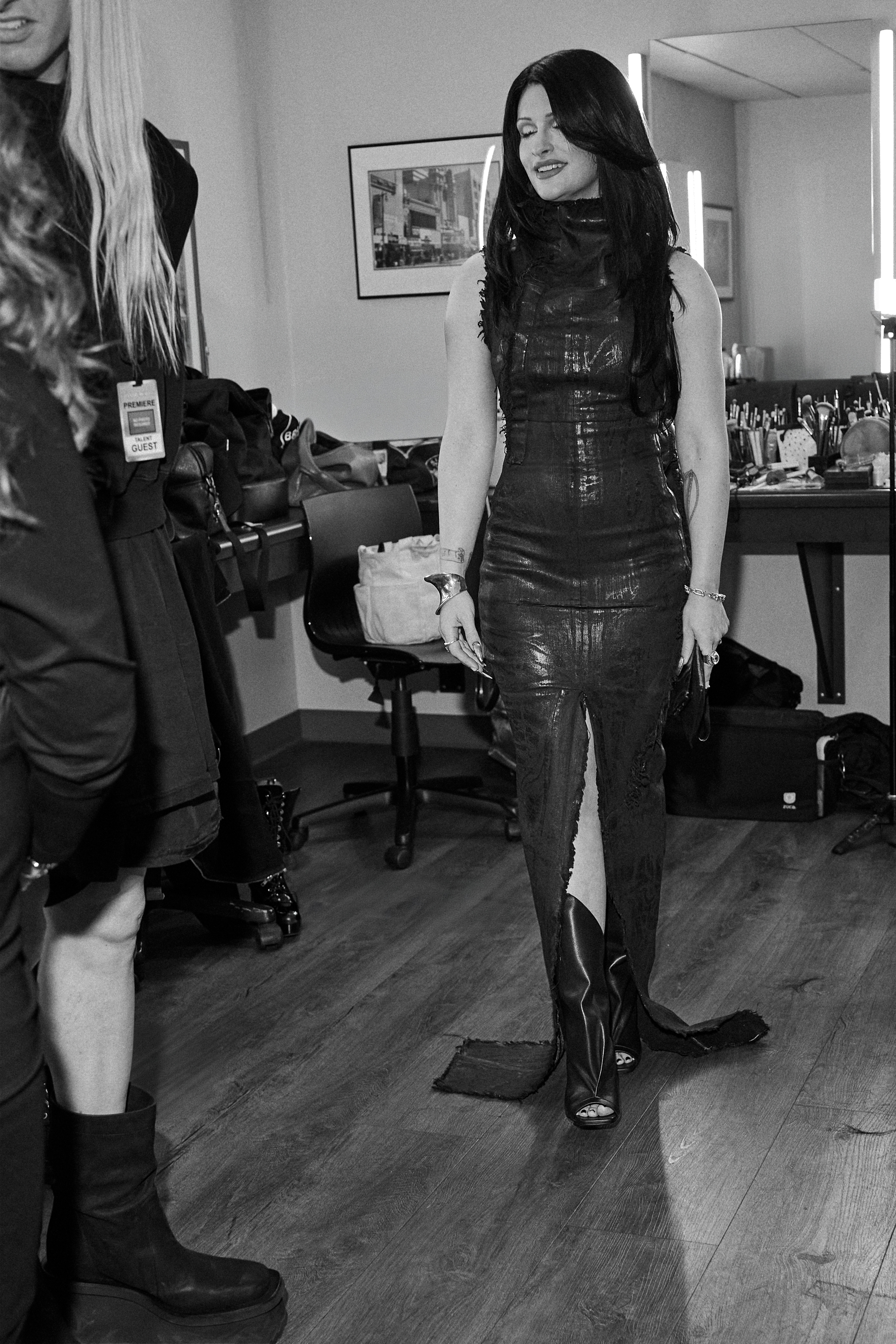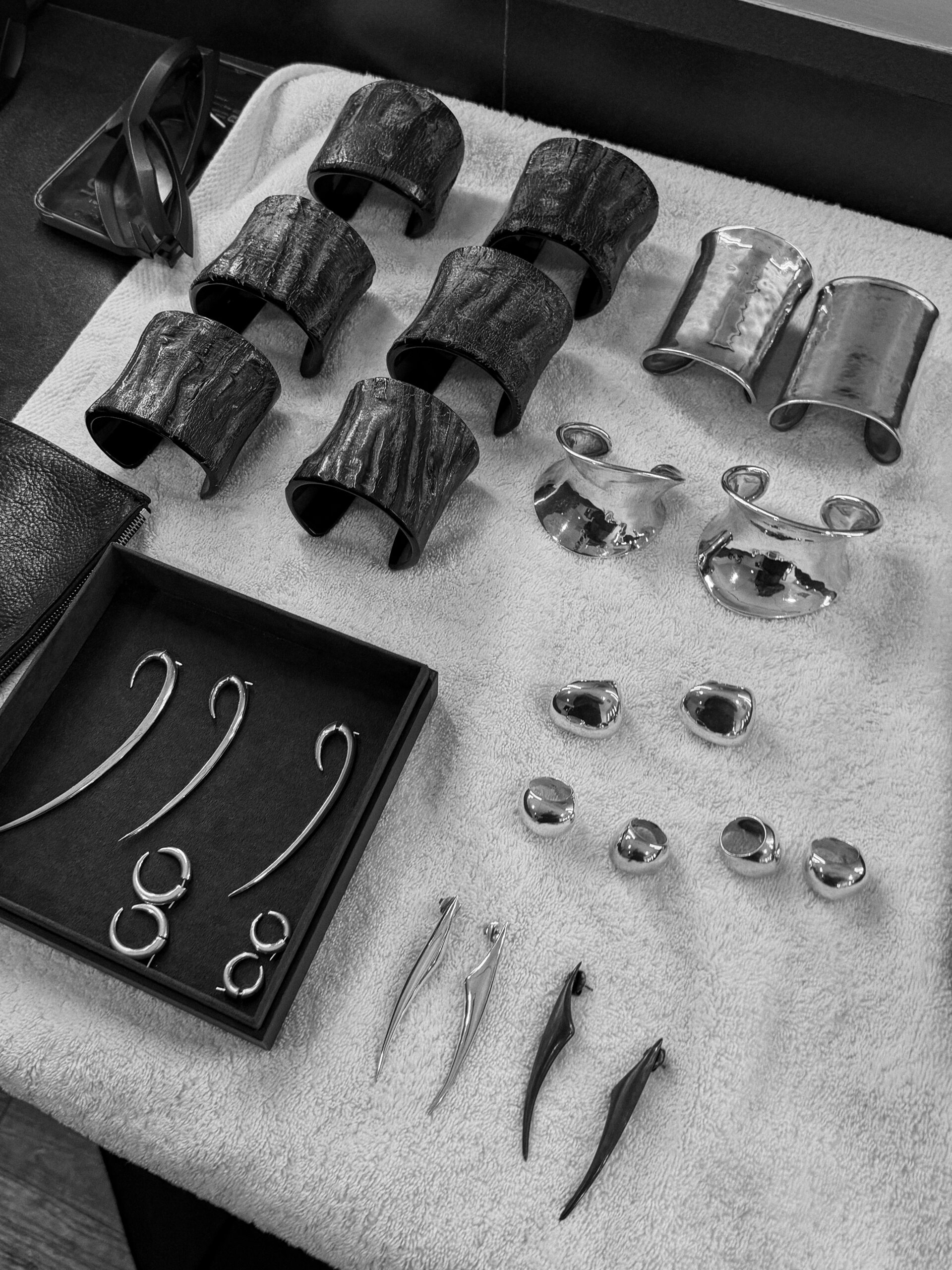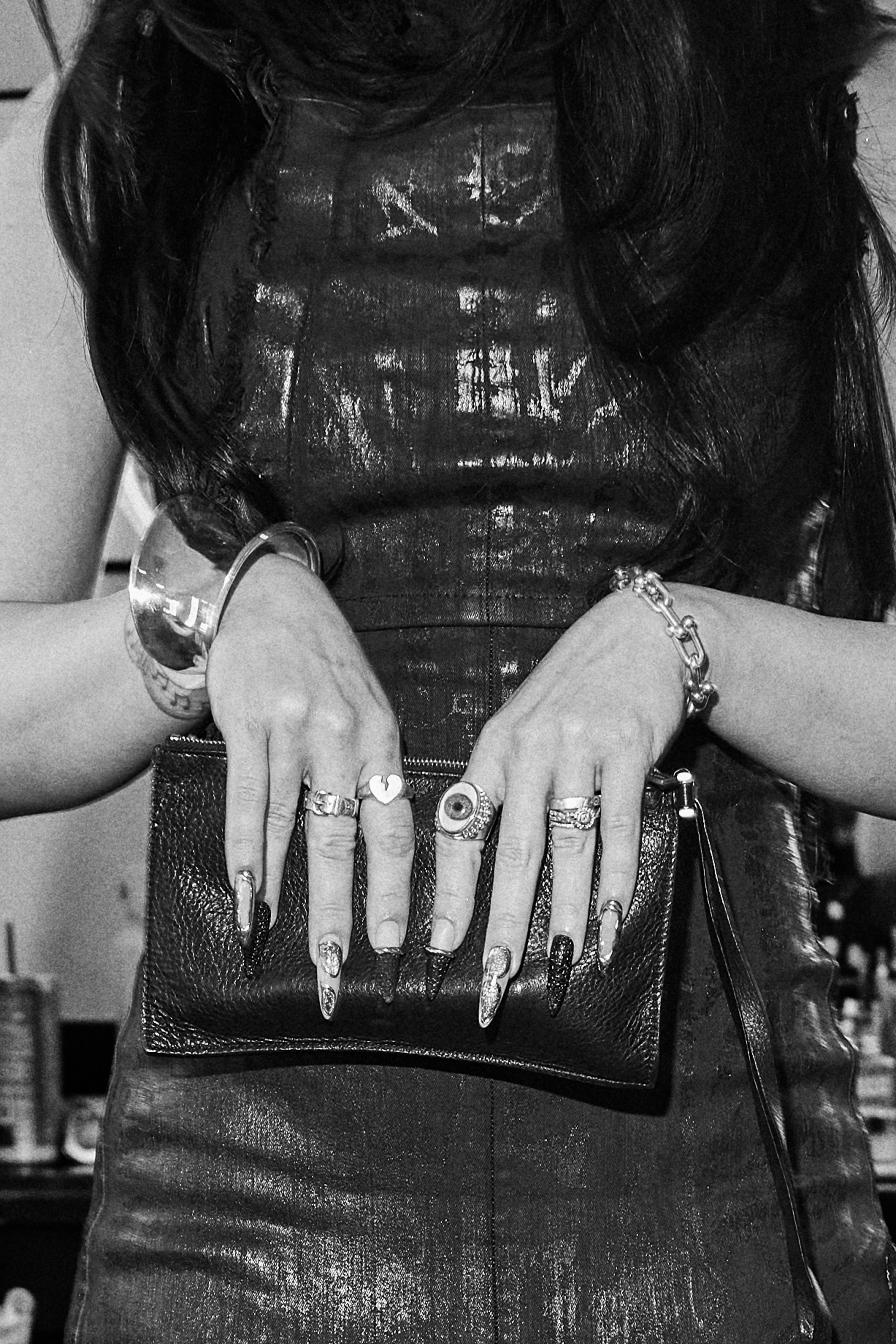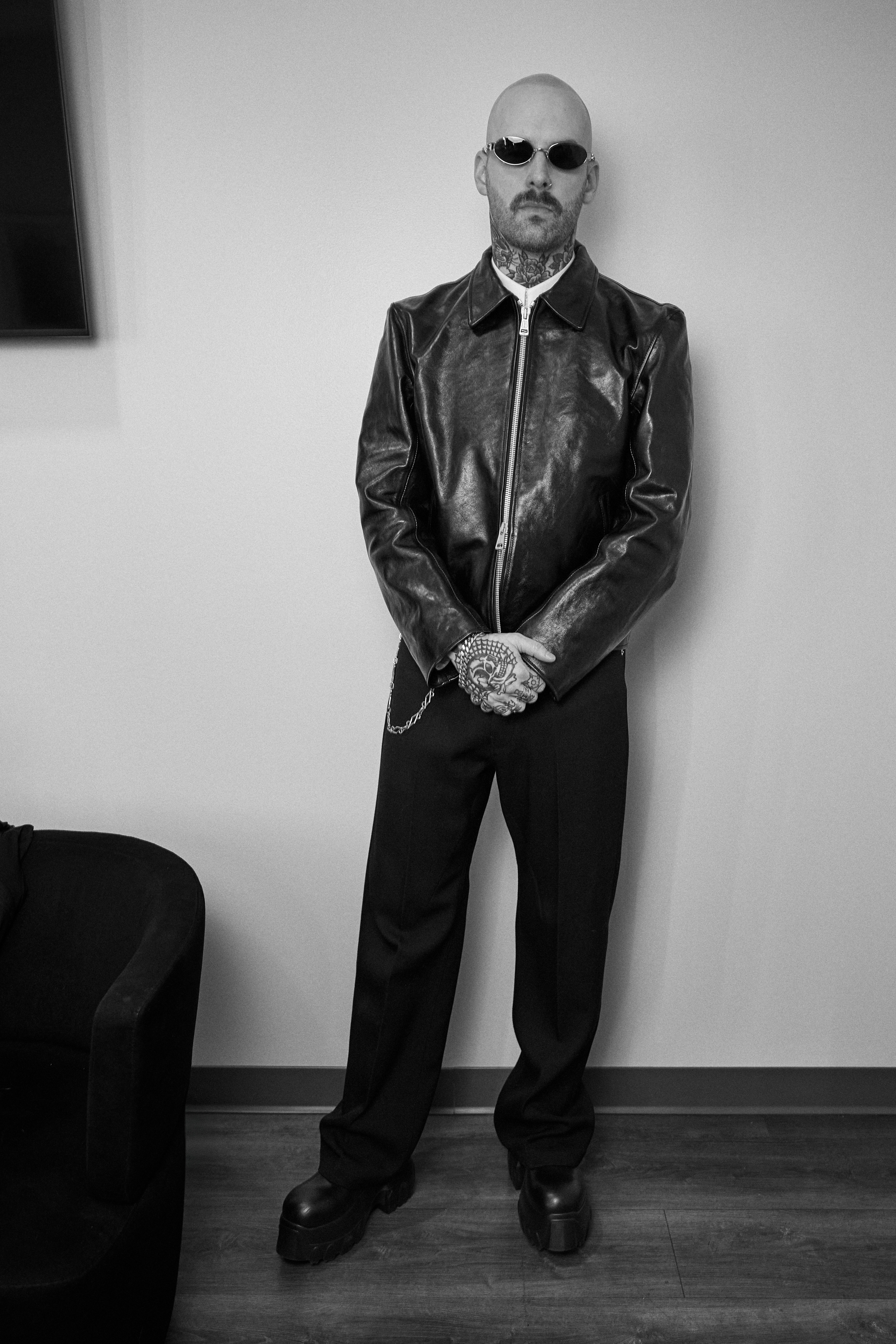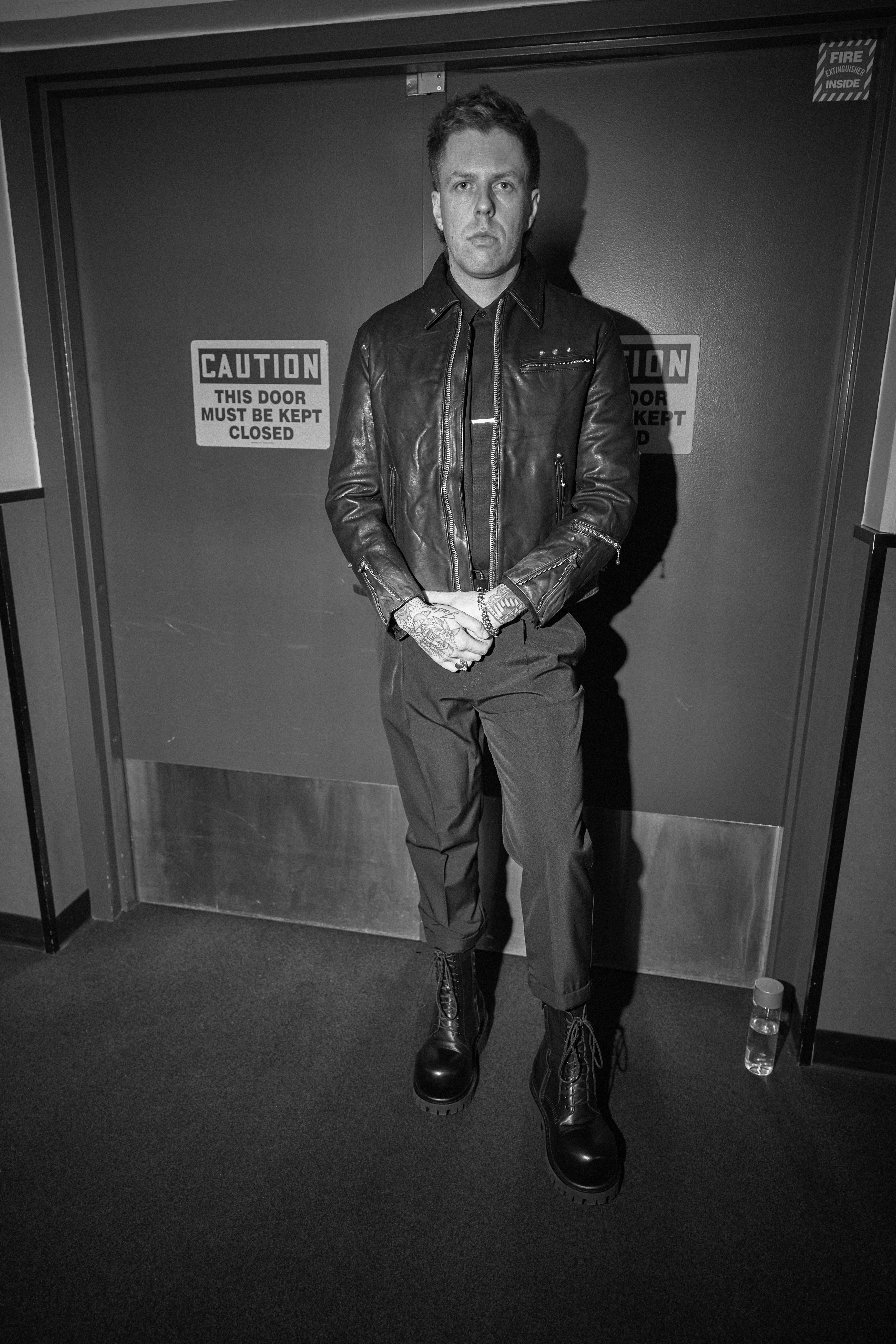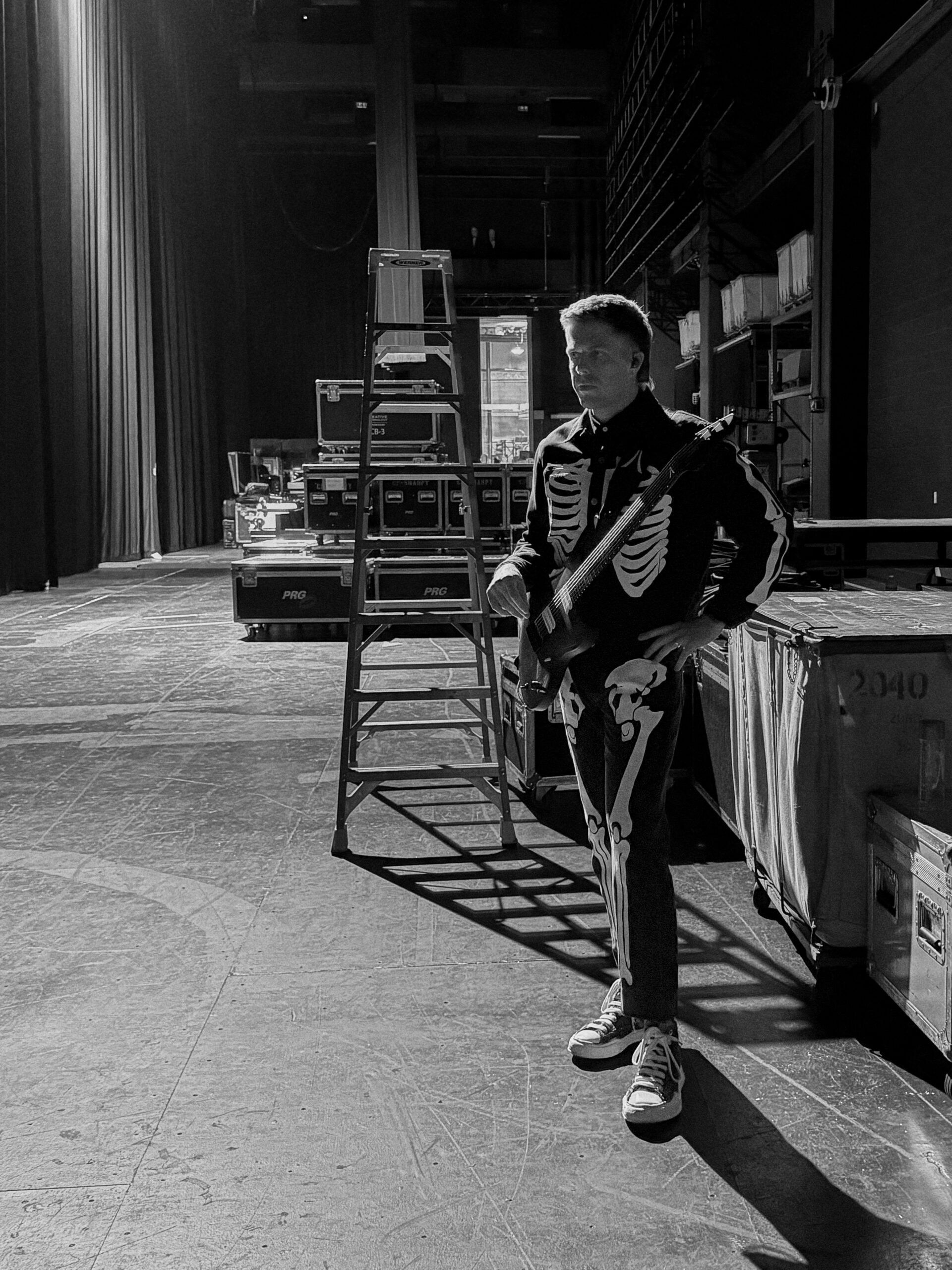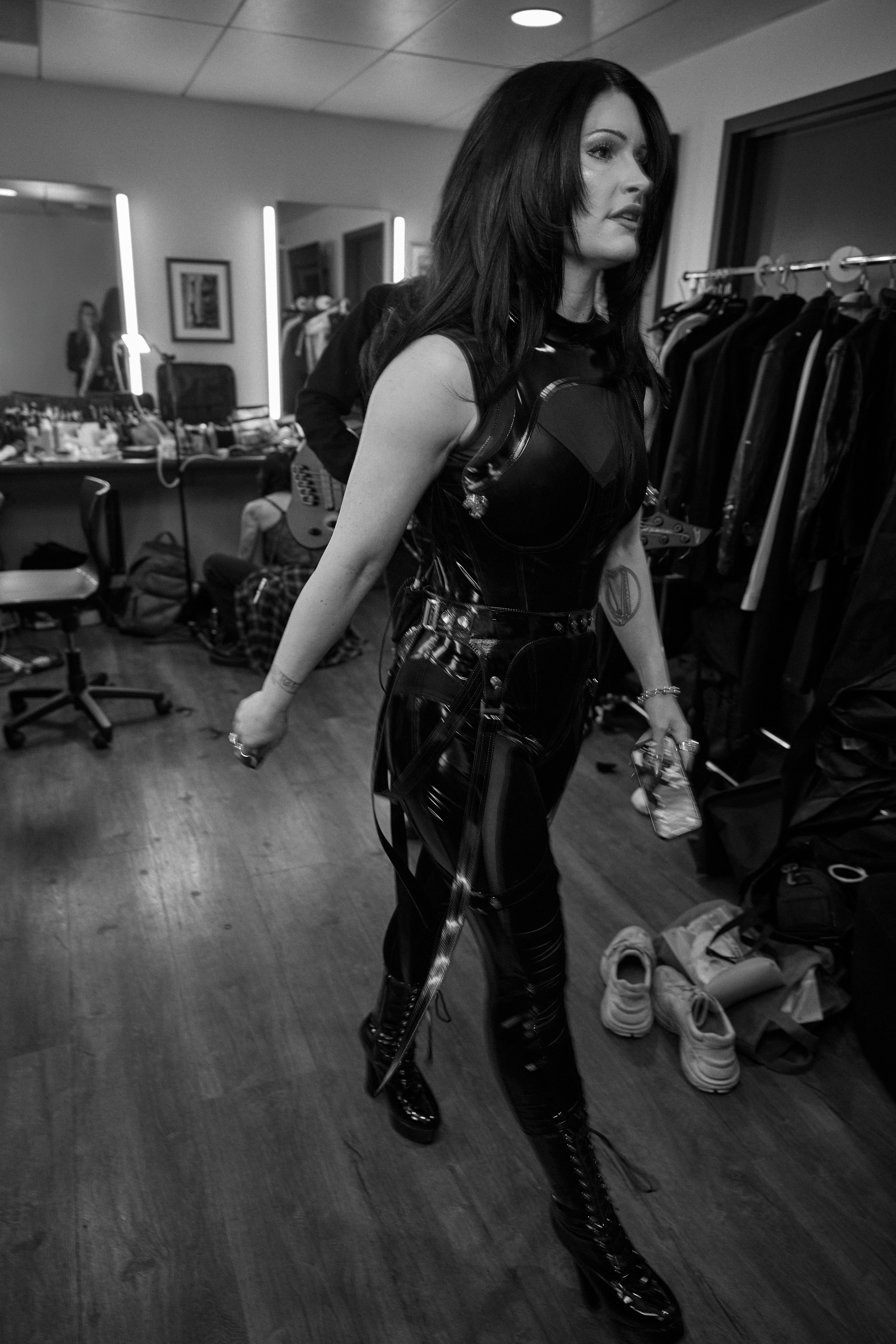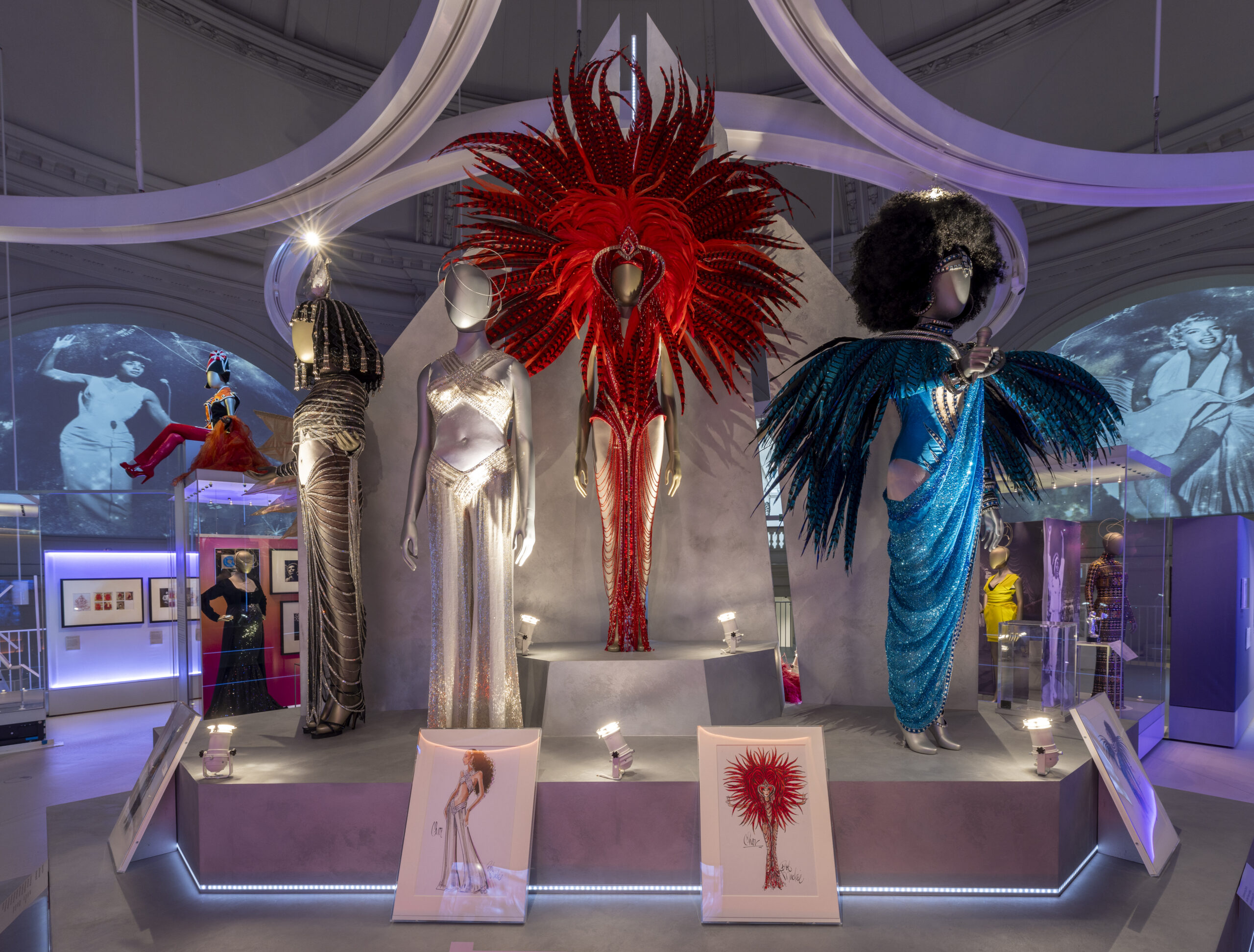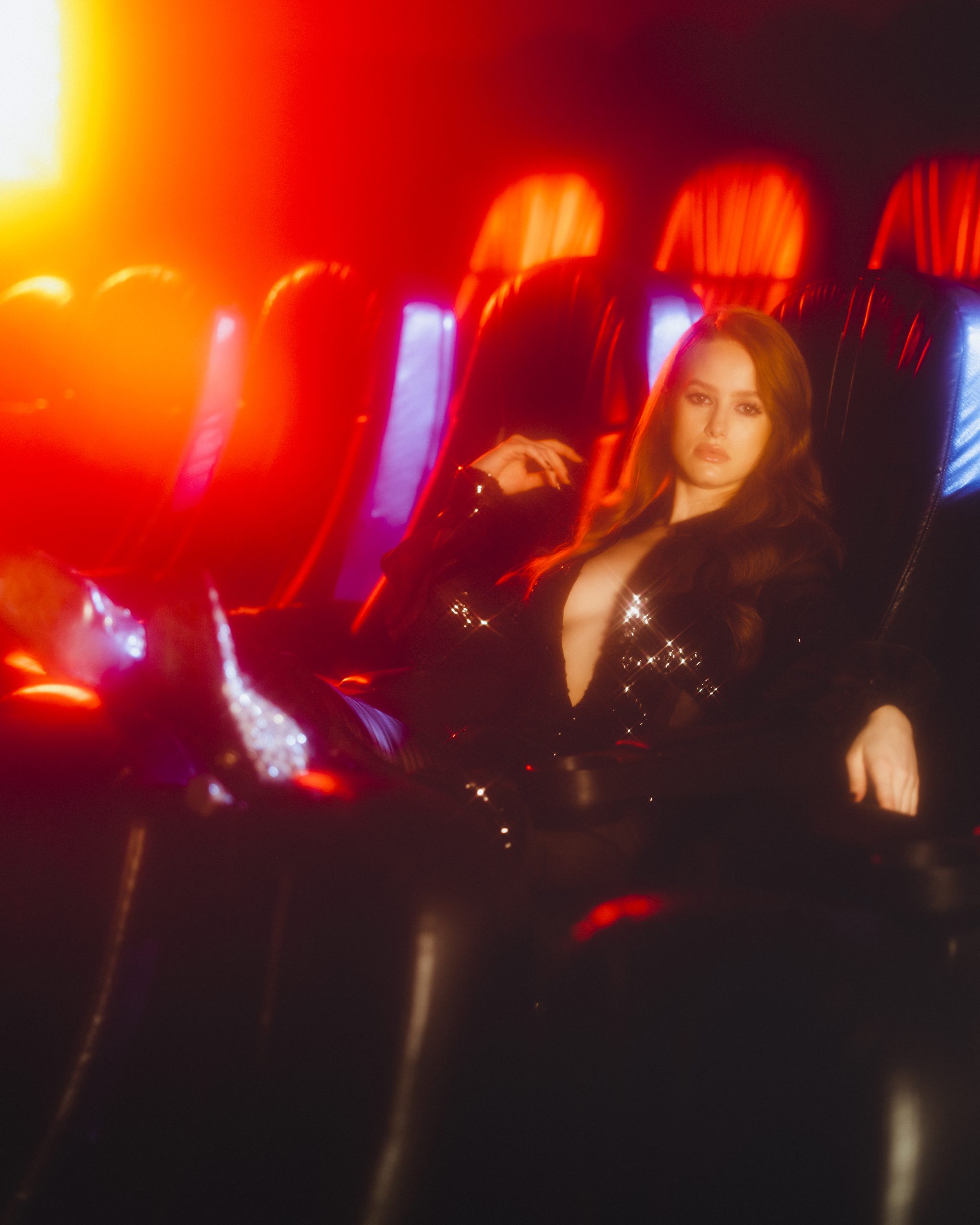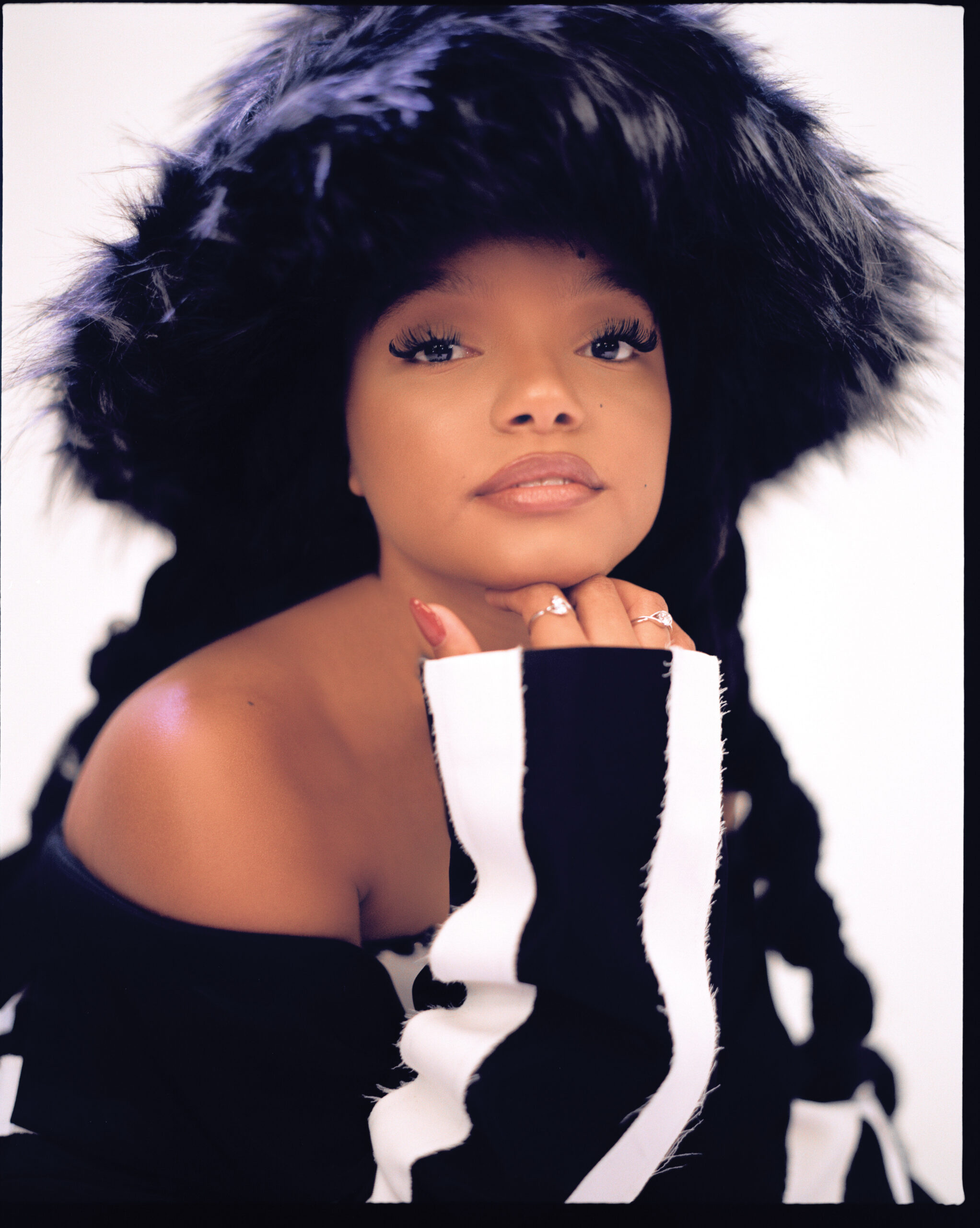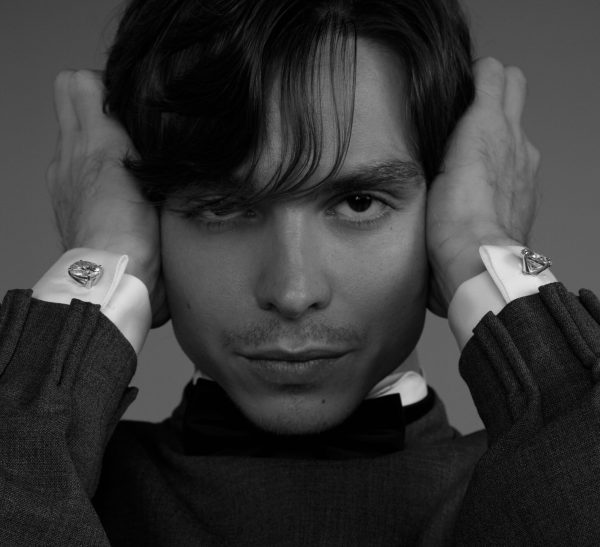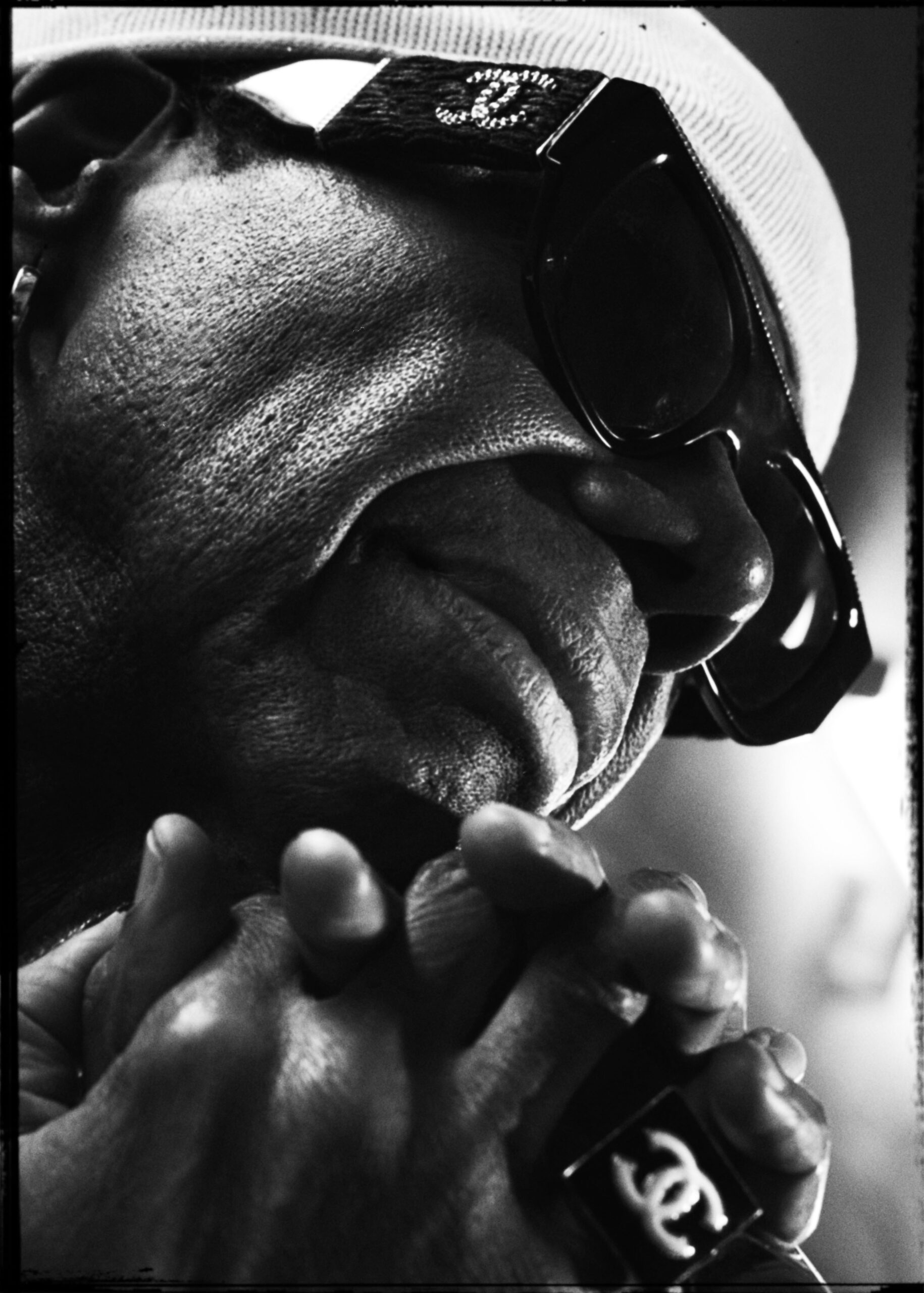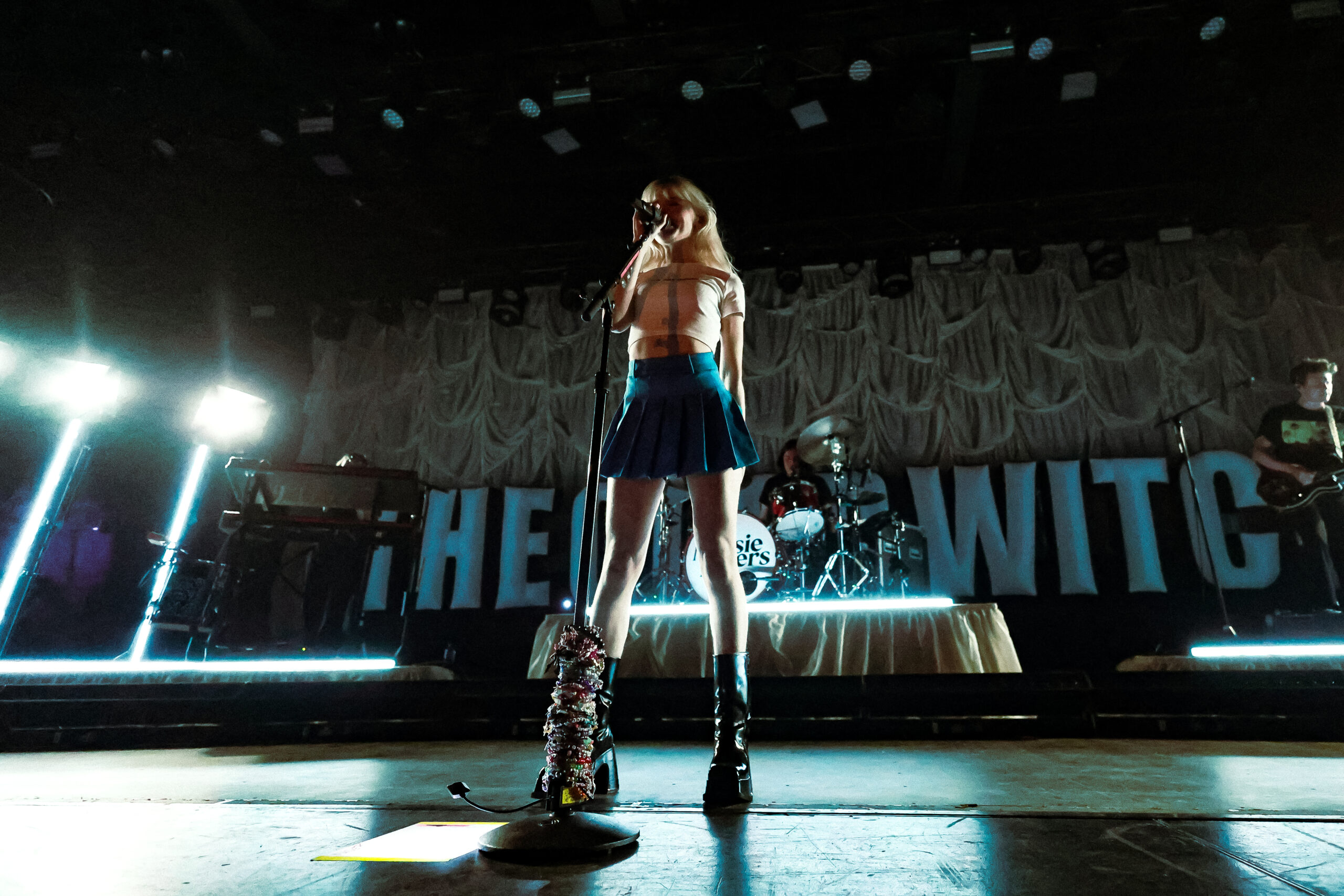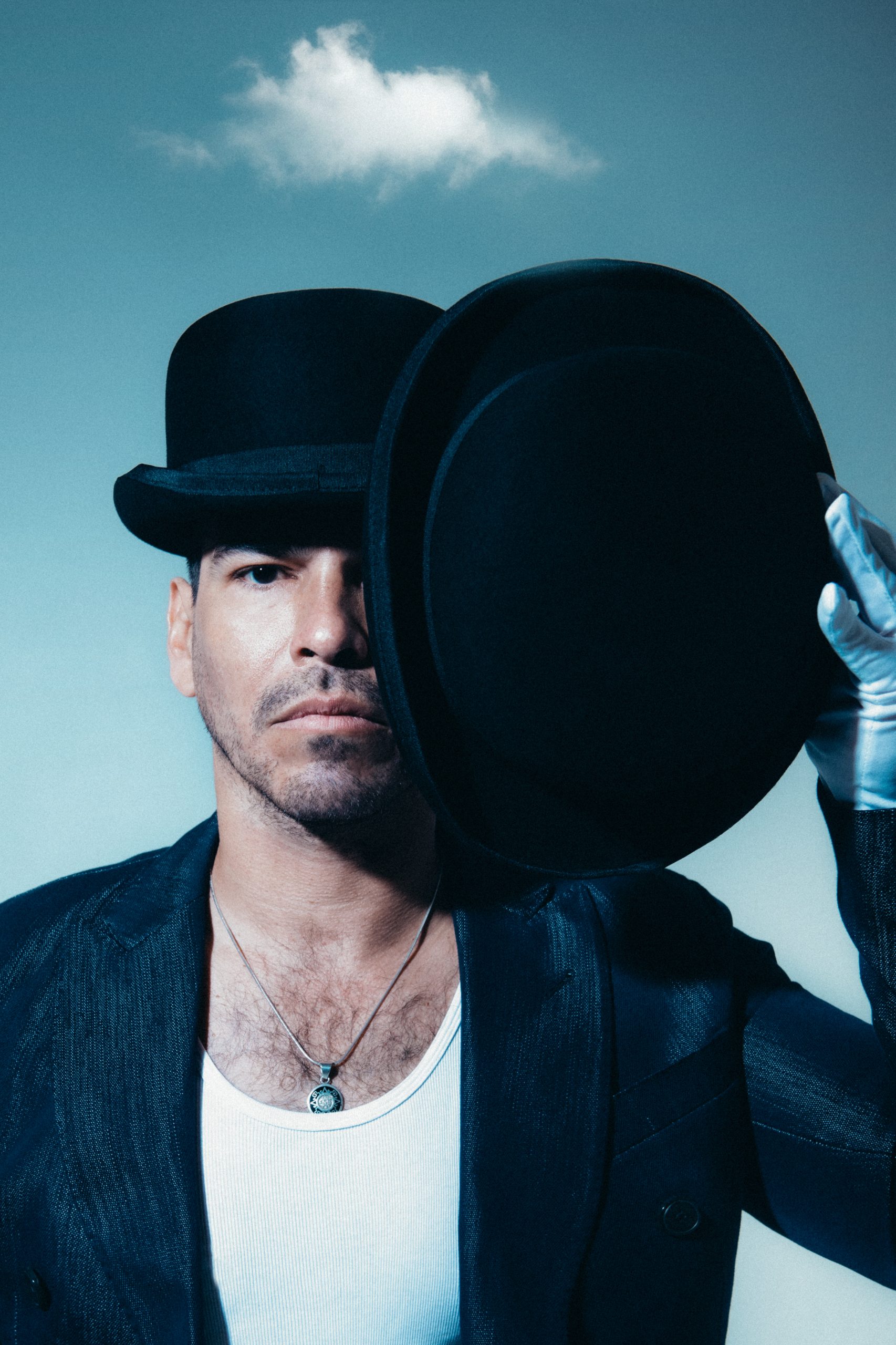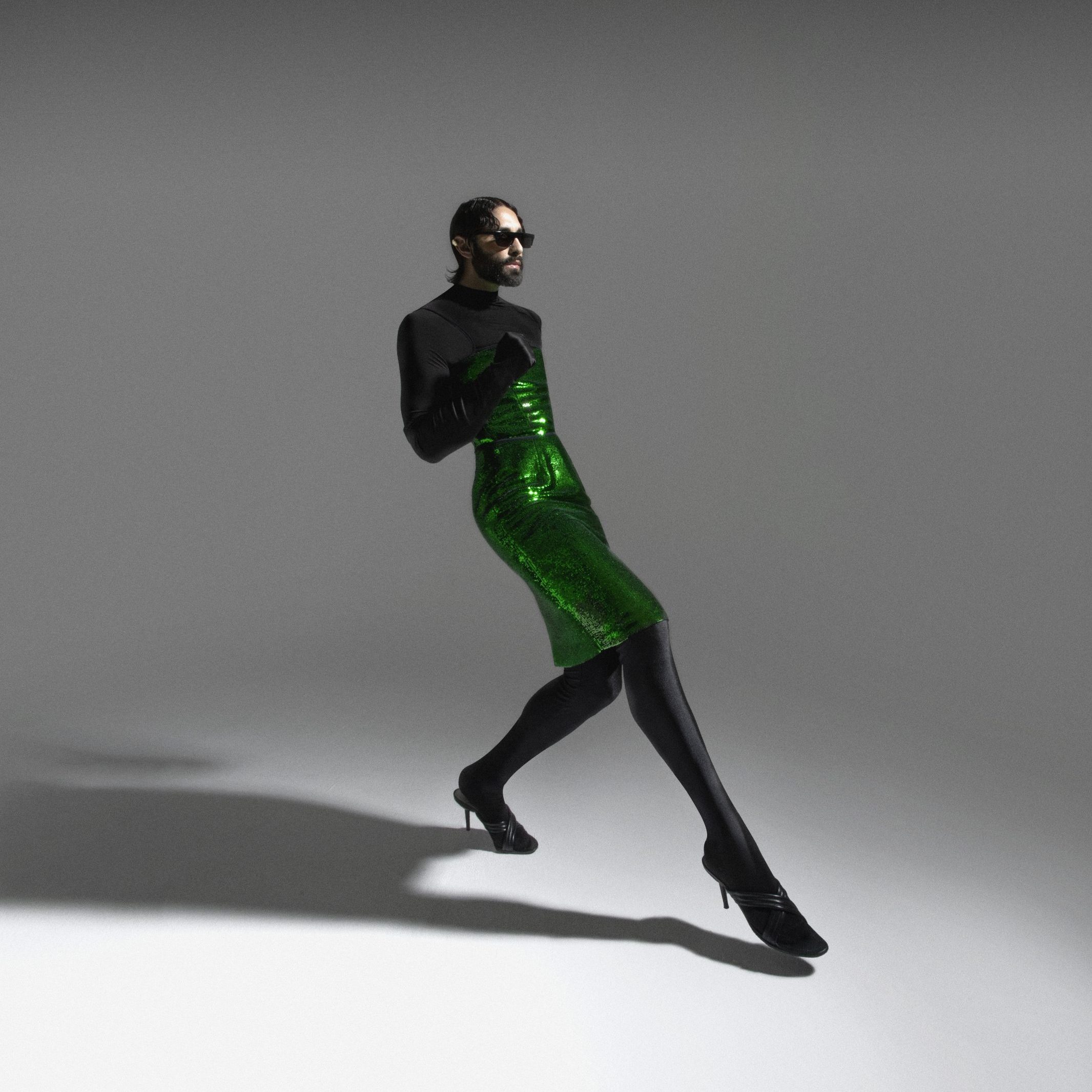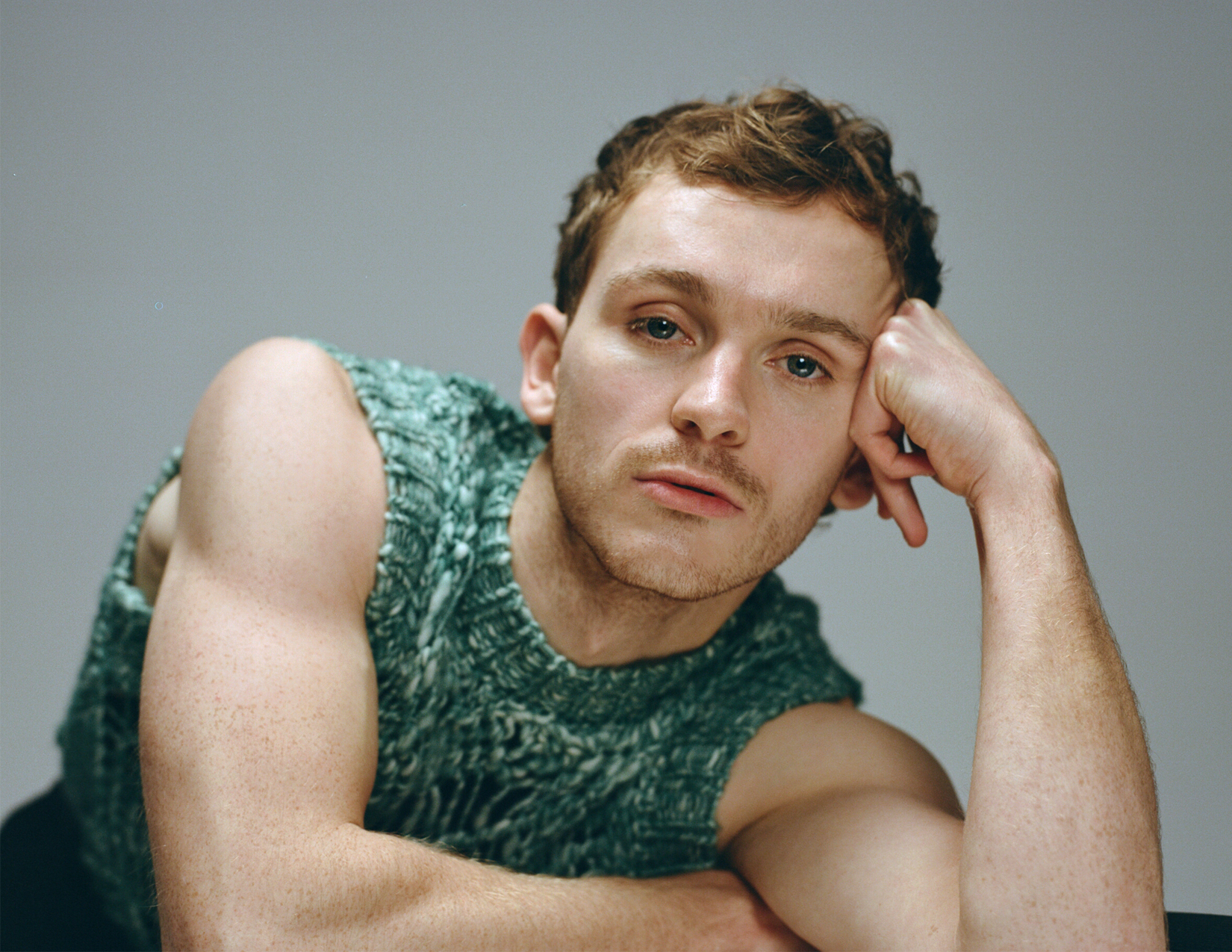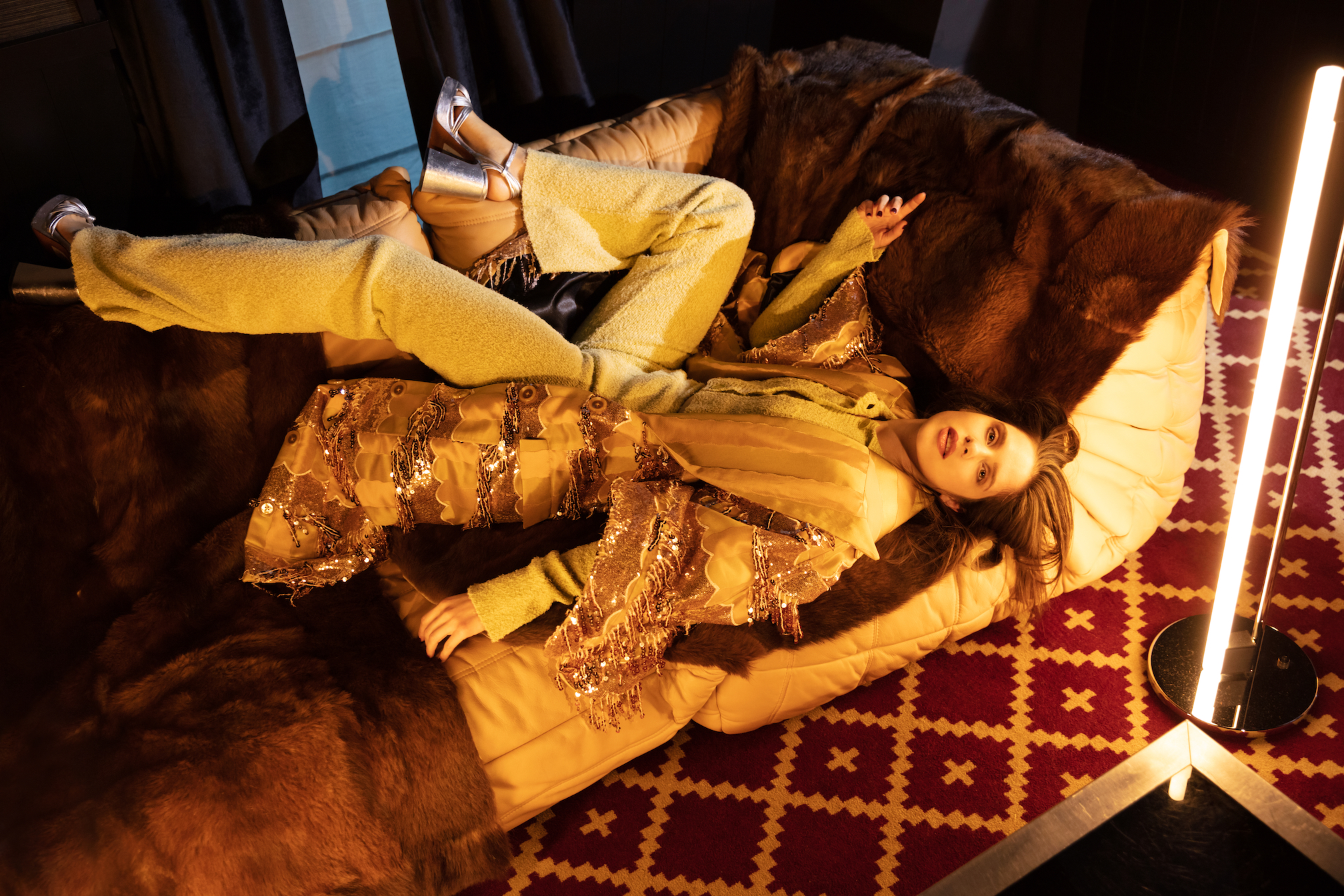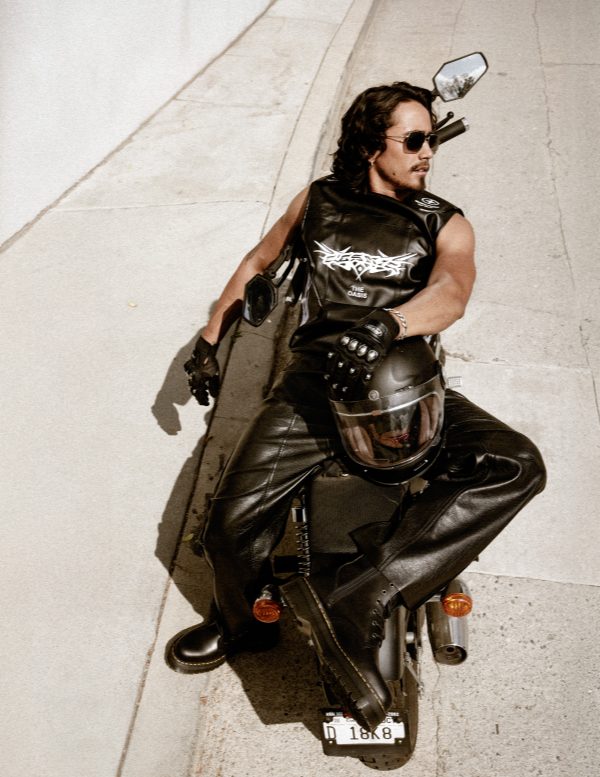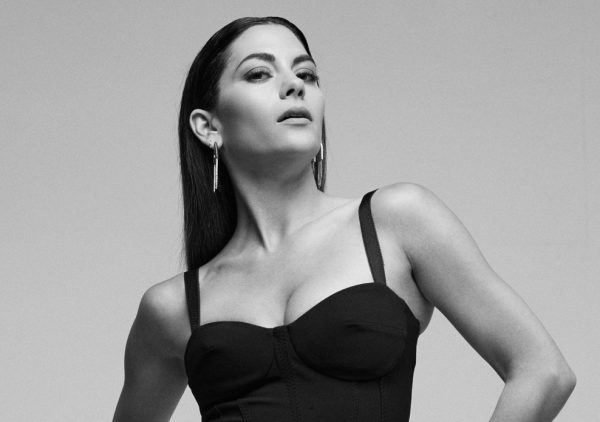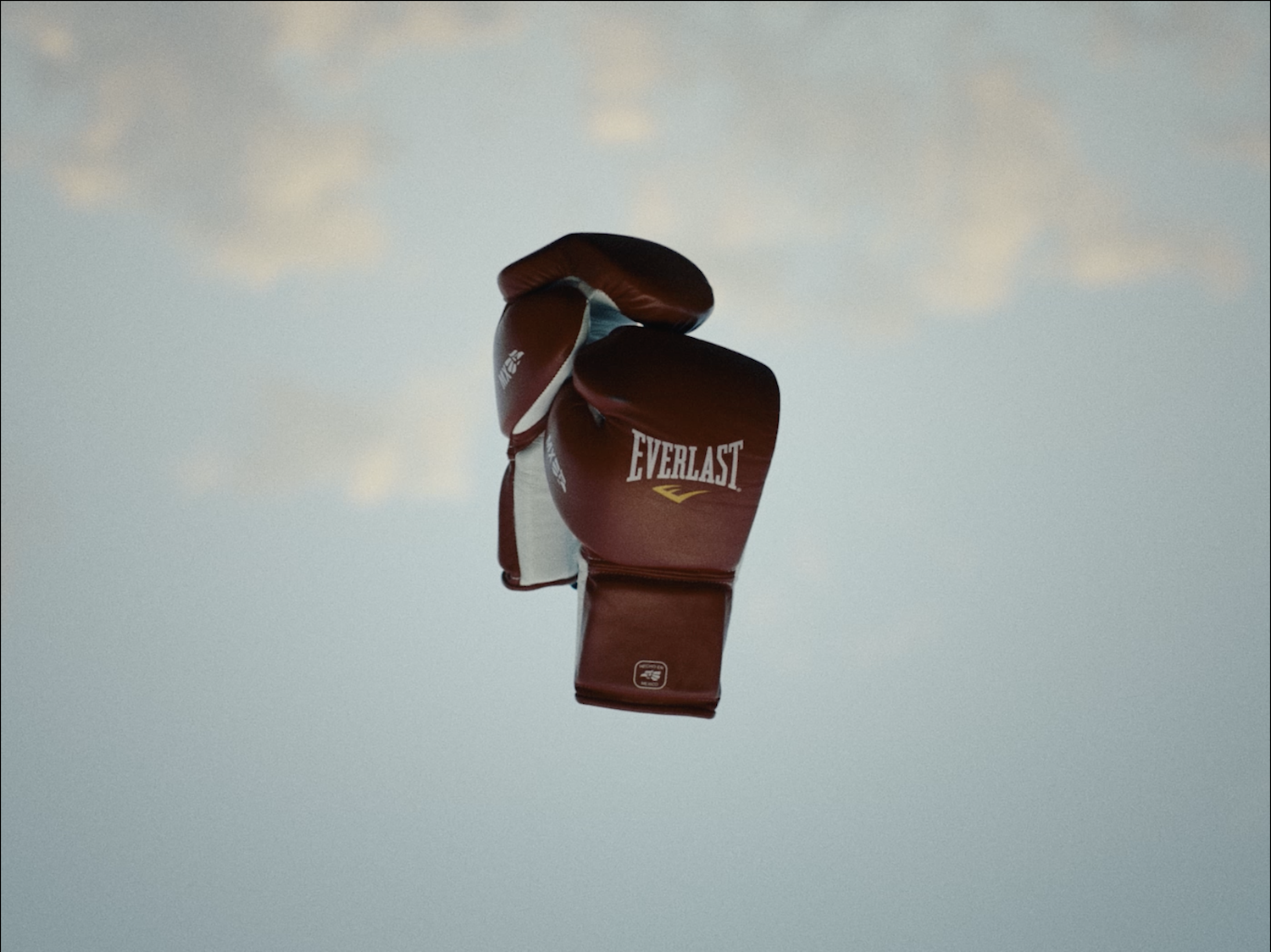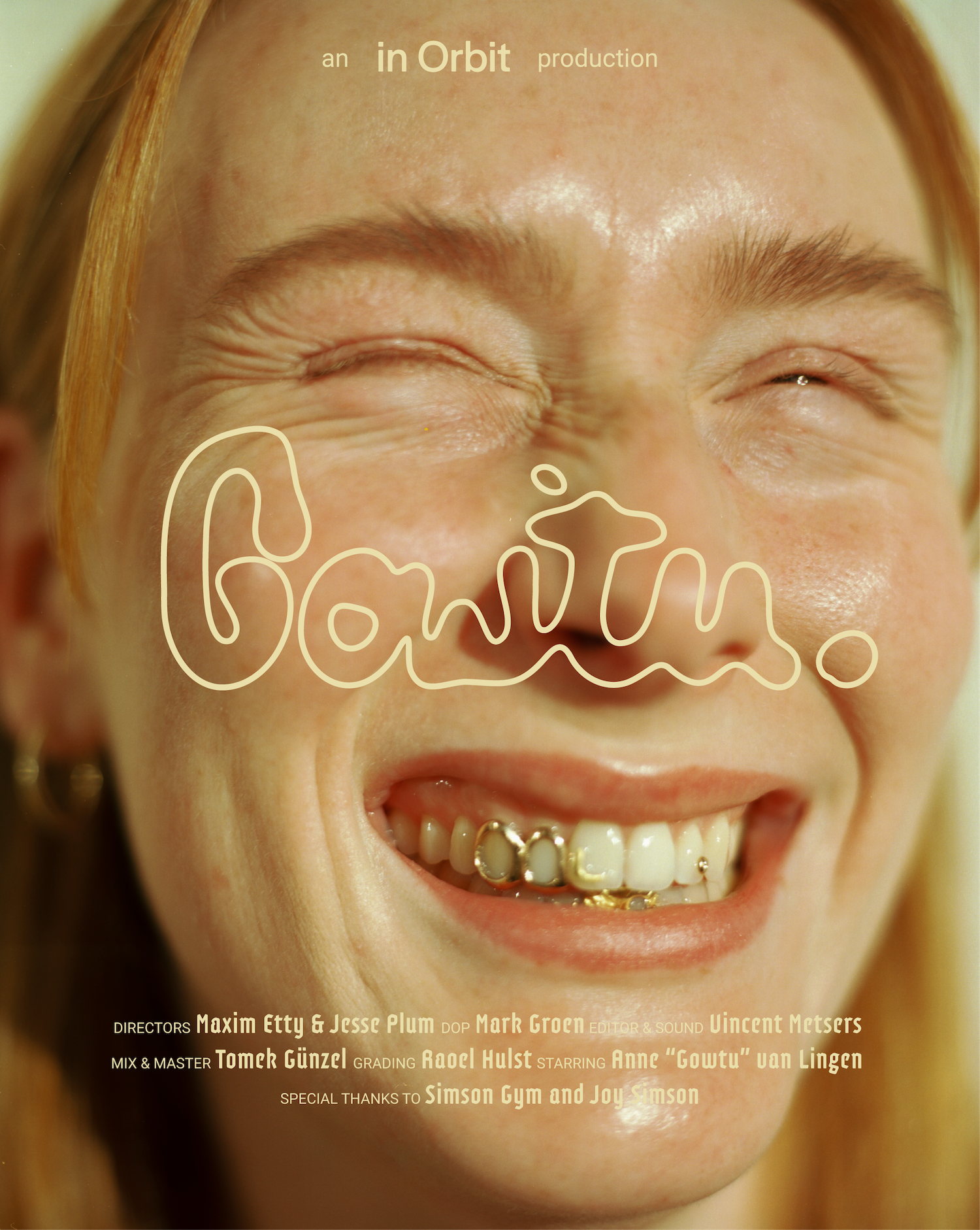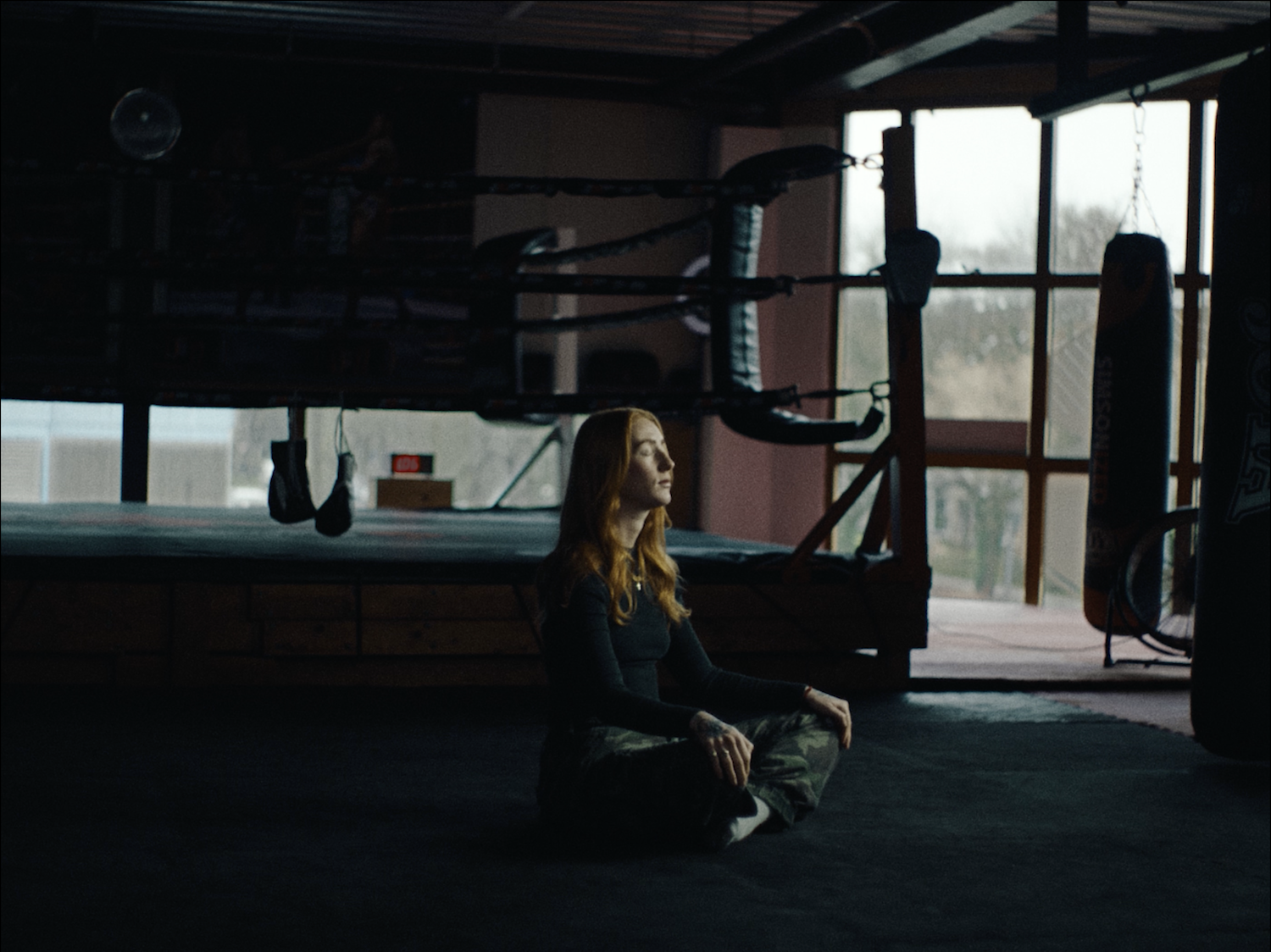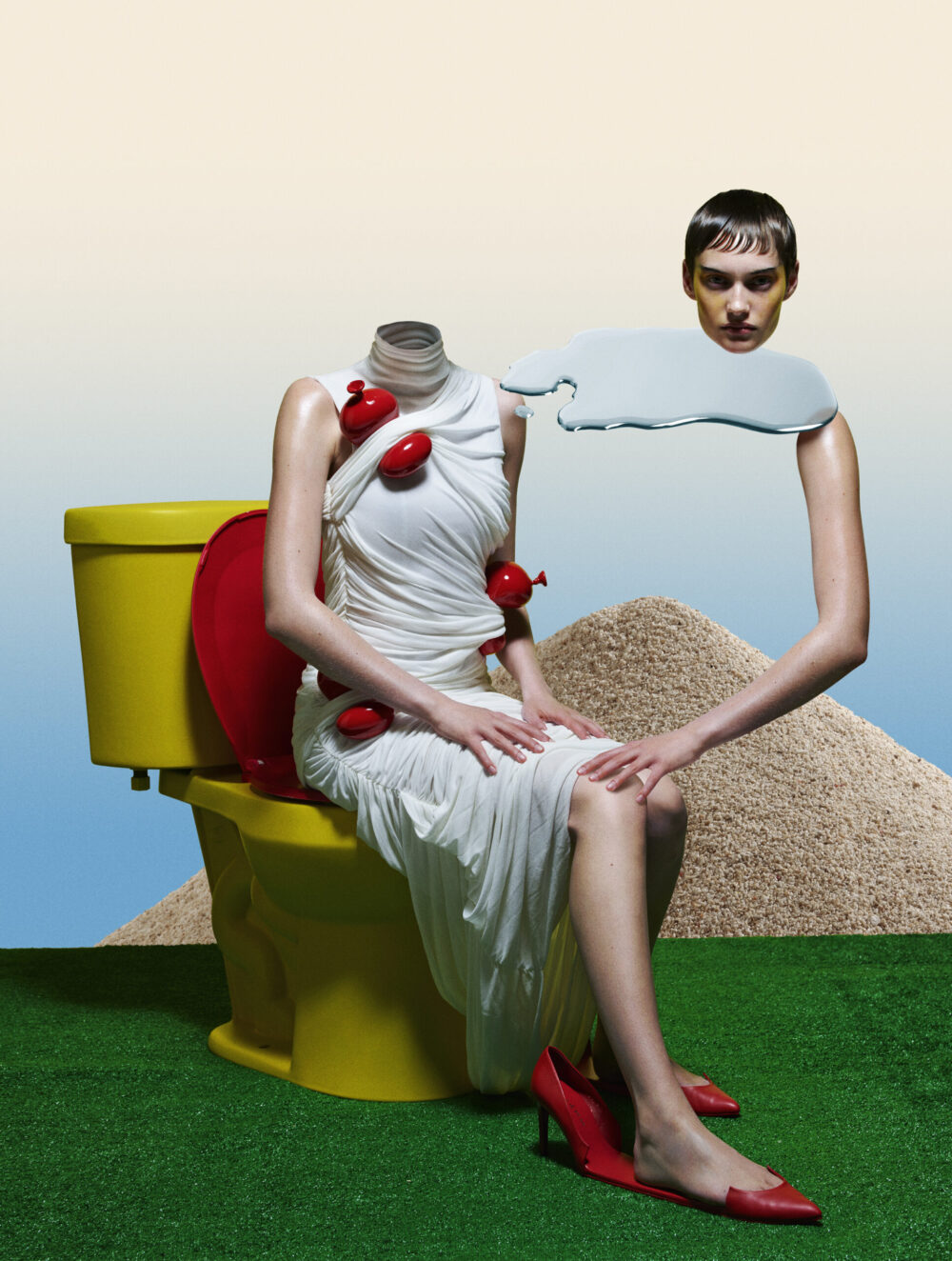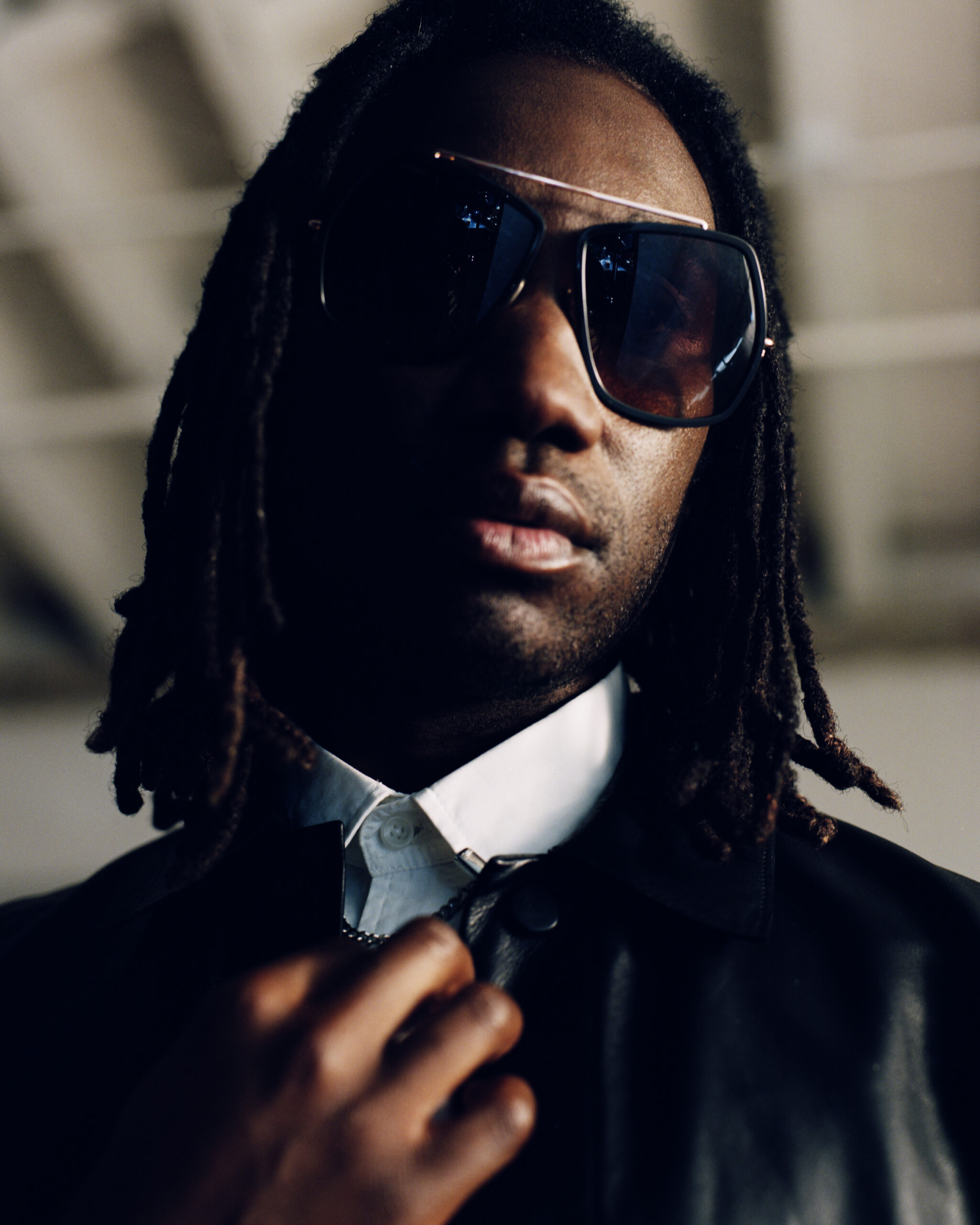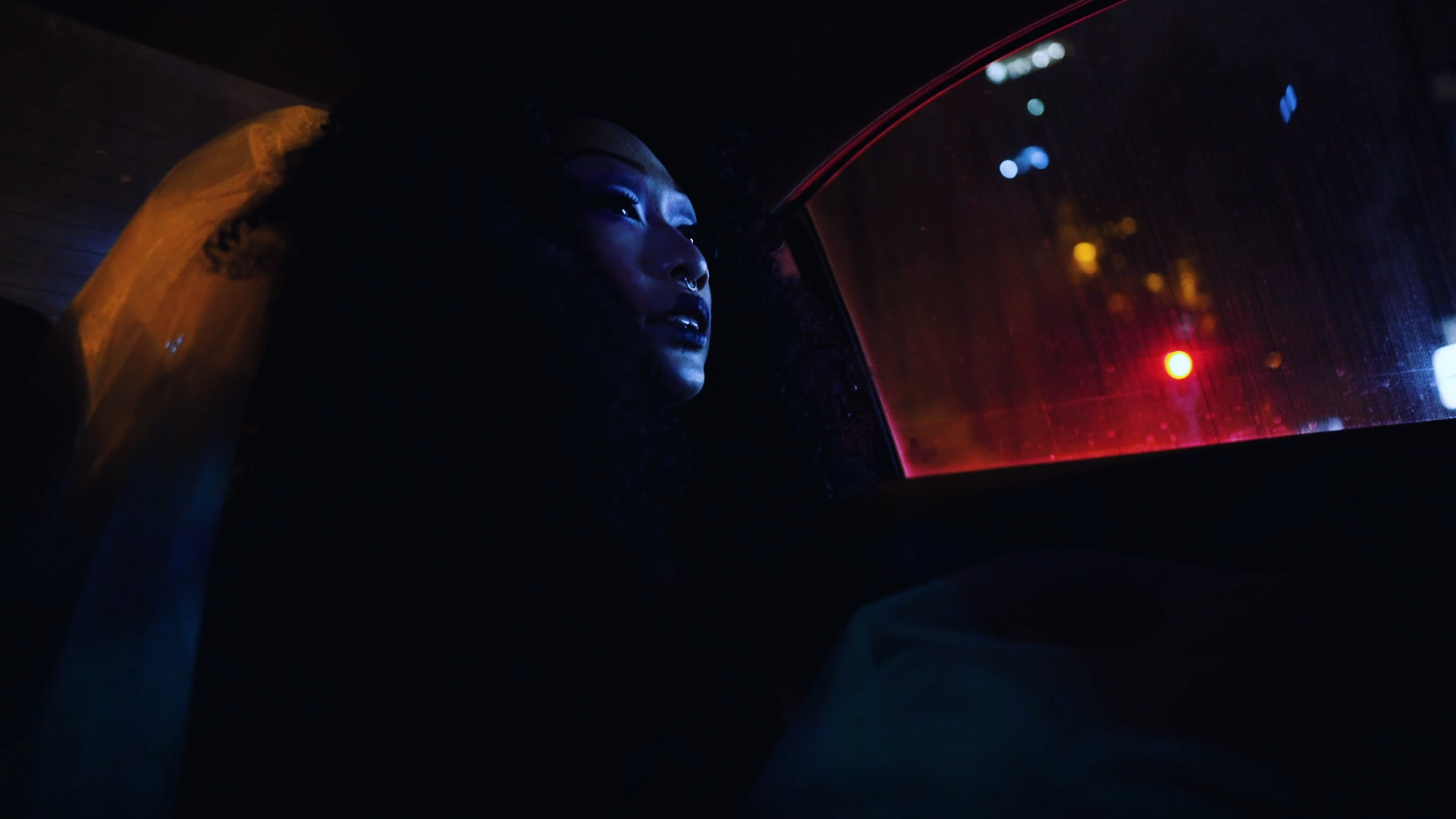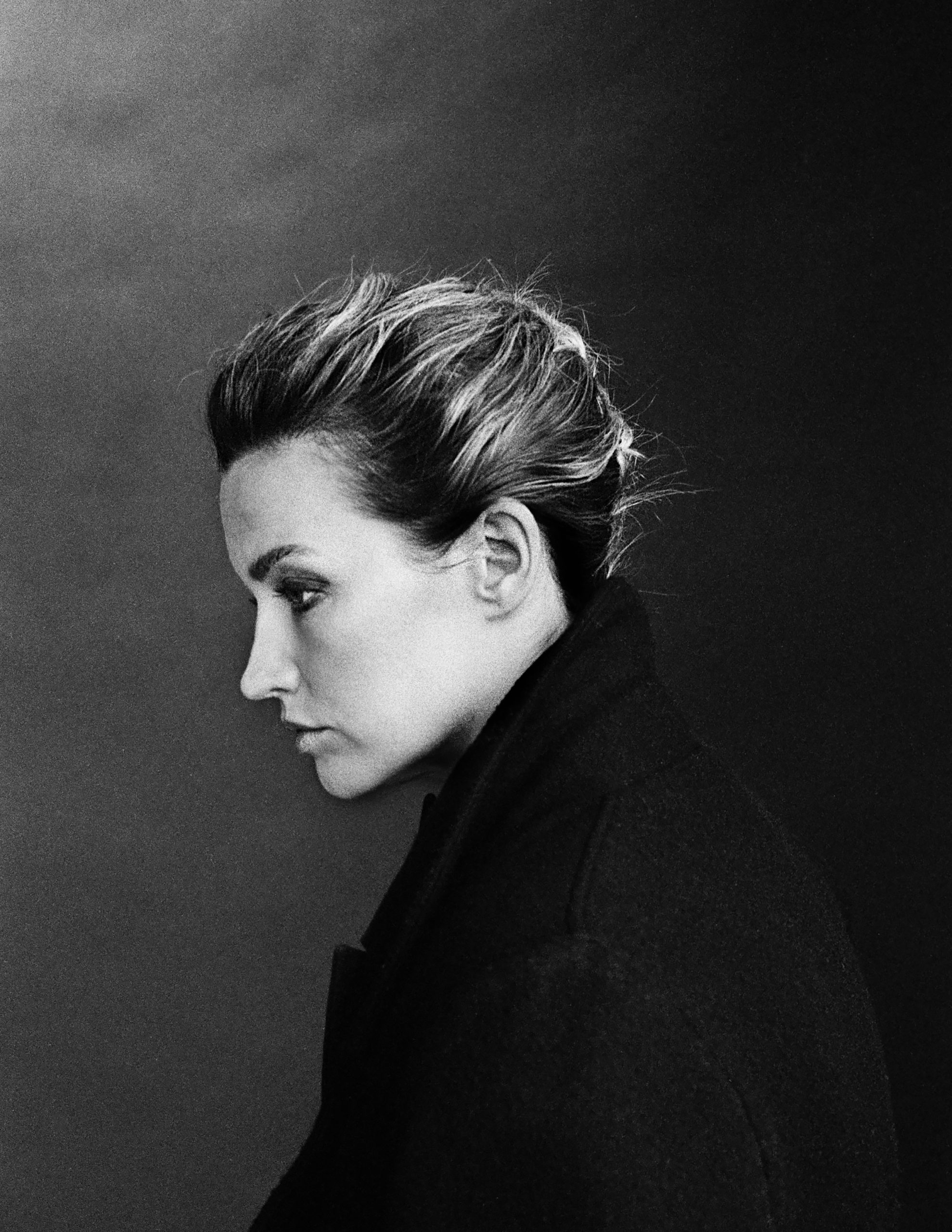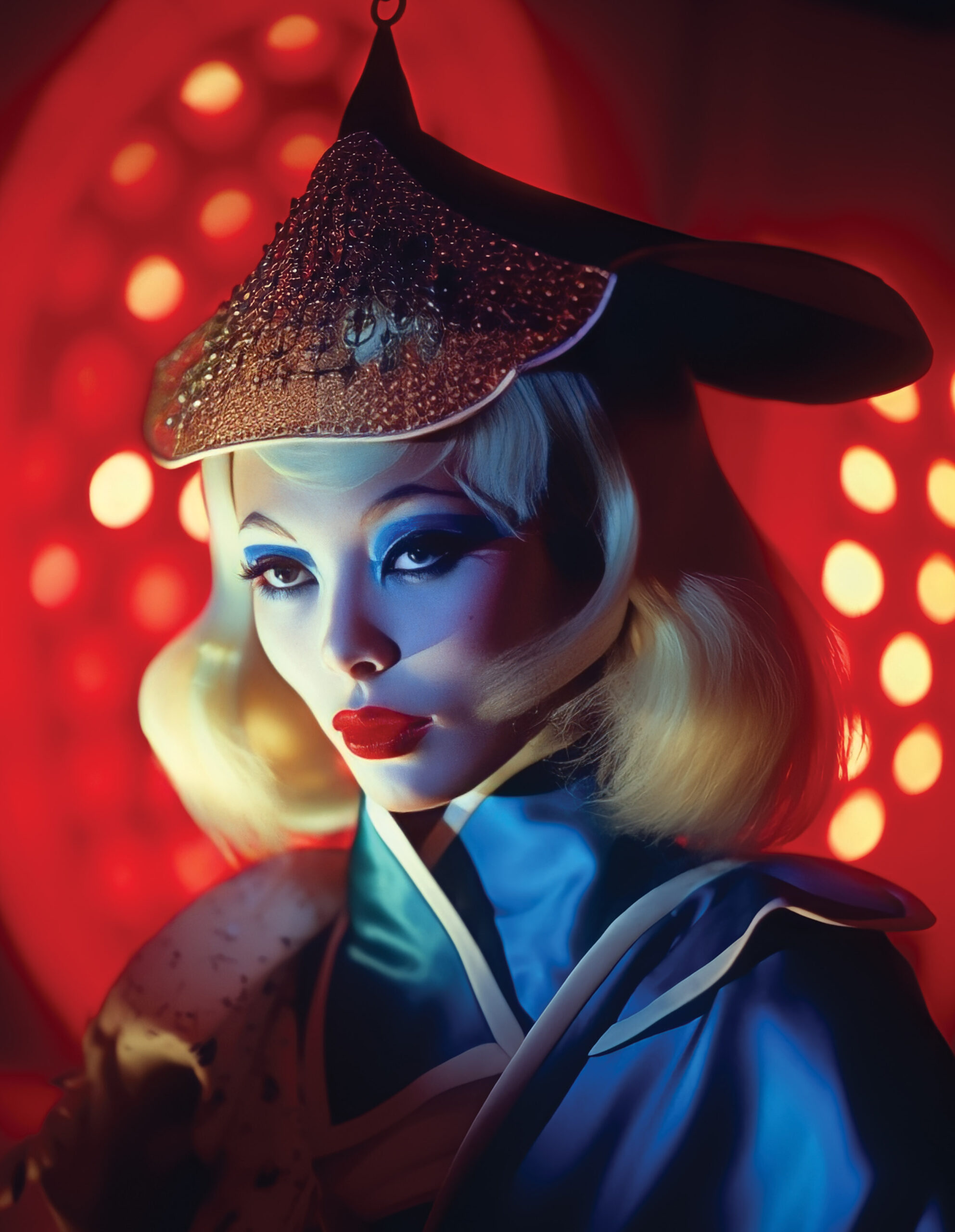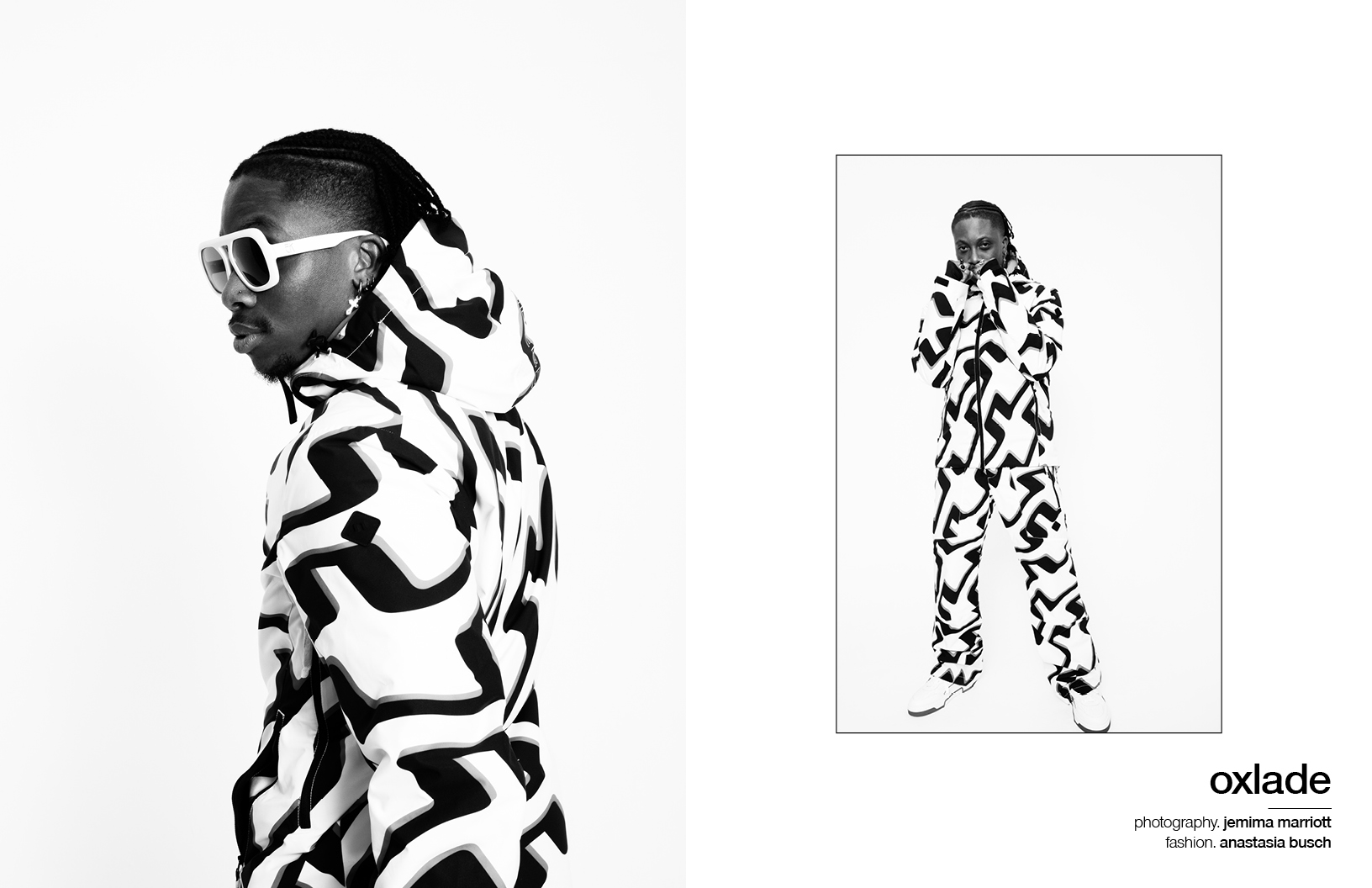
jacket + trousers. J.Lindeberg
sunglasses. Emmanuelle Khanh
trainers. Christian Louboutin
rings. Vitaly, MJ Jones, Giovanni Raspini
The success story of Ikuforiji Olaitan Abdulrahman, more commonly known by his stage name Oxlade, is where opportunity and dedication meet. Raised by his grandmother from a young age, Oxlade’s journey began in the streets of Surulere in Lagos where he veered away from the traditional path of academia to find expression and solace in the world of Afrobeats. His voice, a gift finely tuned during his adolescent years in the choir, and an unyielding belief in his potential fuelled his rise.
Amidst a musical landscape of bass hard-knockers and alternative hip-hop, Oxlade found his comfort spot with his signature sound of soulful, afro-pop ballads. Tracks like Want You, See Ojuju and Hold On exemplify his craft. He marries classic West African percussion akin to Fela Kuti’s iconic ’70s sound with captivating R&B melodies and uplifting ad-libs. Oxlade’s talent has captured the attention of global audiences, transcending borders and earning him praise. A co-sign from rapper Drake further solidified his position as a budding international artist.
His ascent to stardom accelerated with his COLORSxSTUDIOS performance of KU LO SA, a track that took over the internet. Yet, attributing all his accomplishments to one song would be an injustice, for Oxlade’s true success lies in his unchained creativity and relentless motivation. Oxlade’s artistic voyage serves as a beacon of inspiration for aspiring artists worldwide and promises a lasting legacy.
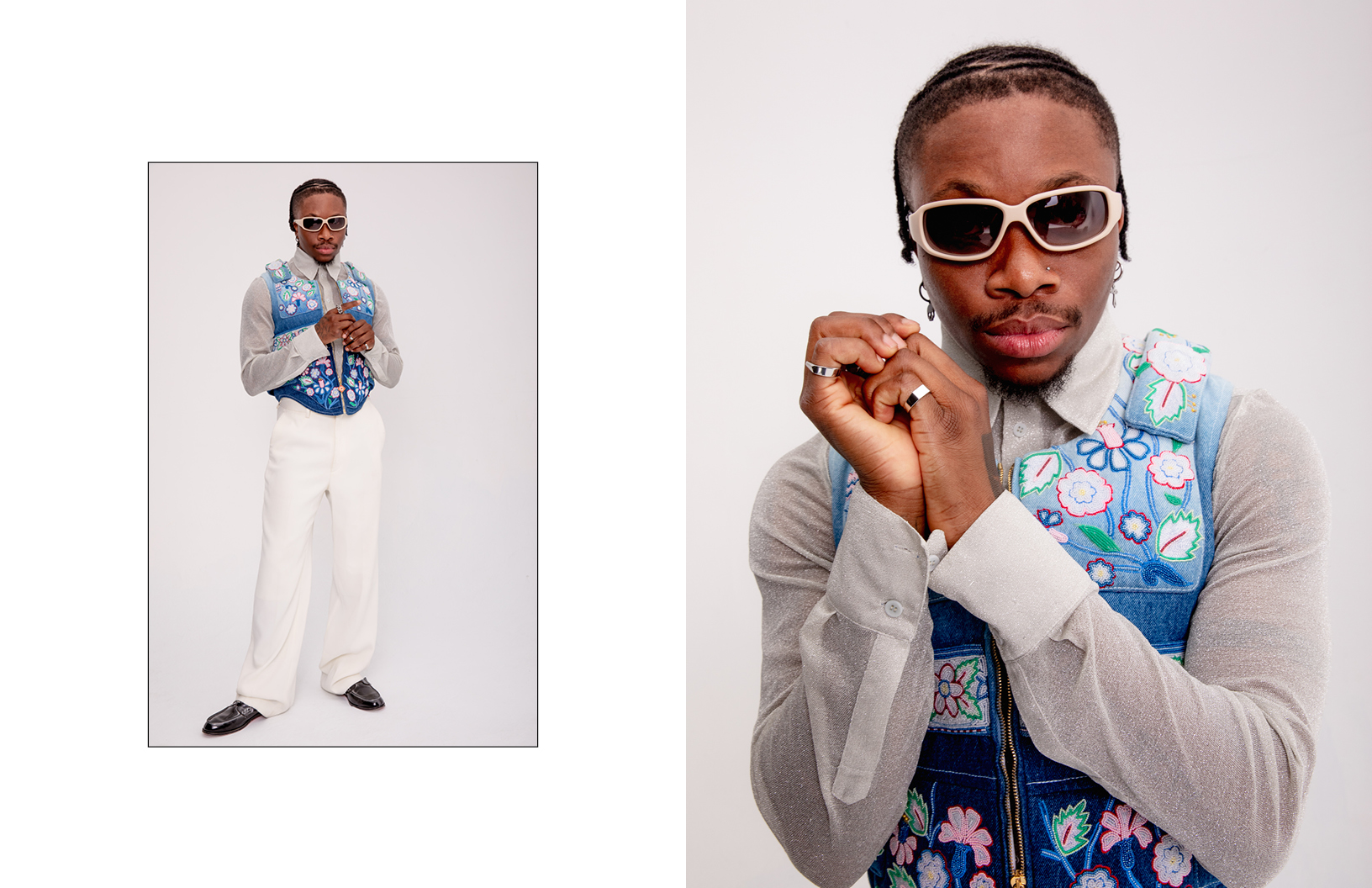
shirt, vest + trousers. Casablanca
shoes. Christian Louboutin
glasses. Bonnie Clyde
rings. Vitaly, MJ Jones
Nigerian music has had a significant influence both locally and internationally over the years. As an artist, how do you see your role in representing Nigerian culture and contributing to its global recognition?
Everybody in the game who is killing it right now is adding one or two things in their [own] way. [I’m] just another part of the mega engine trying to push Afrobeats’ momentum. I’m doing my best. I’ve been doing this for six years. And I’m starting to crack that barrier where I felt I could not pass. I’m another artist out of the thousands trying to push the agenda that Afrobeats is here to stay.
How important is it for you to honour your cultural roots in your music?
It’s so important to me because Afrobeat is like my ID. It’s my DNA. It is so deep-rooted that I’m trying to make my new album about it. After the emergence of KU LO SA, everybody wanted to know who the superstar was, what he loved and the kind of music he was willing to give us, but before they meet the superstar, people need to know where he comes from. I’m an embodiment of the African image. I’m trying to push the legacy. I’m trying to change the appearance of how we, Nigerians, are viewed and I’m trying to create classics birthed from my motherland, Africa. There is no way you would see me and not see Africa through me, that’s the brand I’m trying to build.
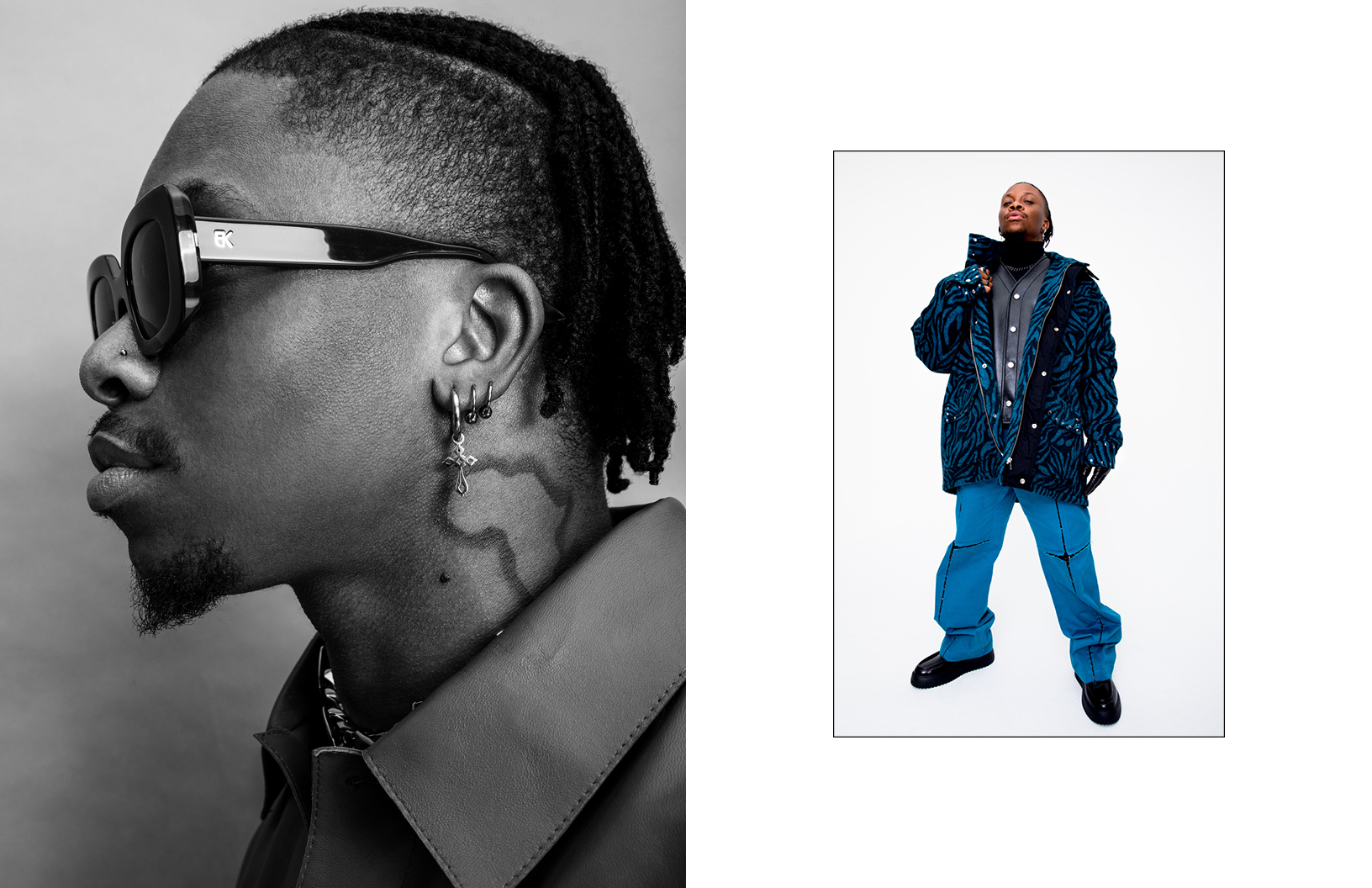
shirt. Tod’s
necklace. Vitaly
glasses. Emmanuelle Khanh
right.
jacket + trousers. Bluemarble
leather jacket. Nanushka
turtleneck. Sebago
shoes. Hogan
glove. Handsome Stockholm
necklace. MJ Jones
rings. Vitaly, MJ Jones, Giovanni Raspini
Lately, a lot of Nigerian artists are doing international collaborations. Who would you like to work with in future?
There are a list of legends that I wish to work with like Drake, The Weekend, Lauryn Hill, Chronixx, and a long list of artists still on my wishlist. I [also] just put out a single with Dave.
Talk to me about the single that you have with Dave. How did that come about?
We met through a mutual friend. It was good to meet him. Even though everybody keeps saying that Dave is hard to reach or get a verse from, I totally agree, but my story was just different. It wasn’t easy but it was real and I appreciate his time to make this work come to life.
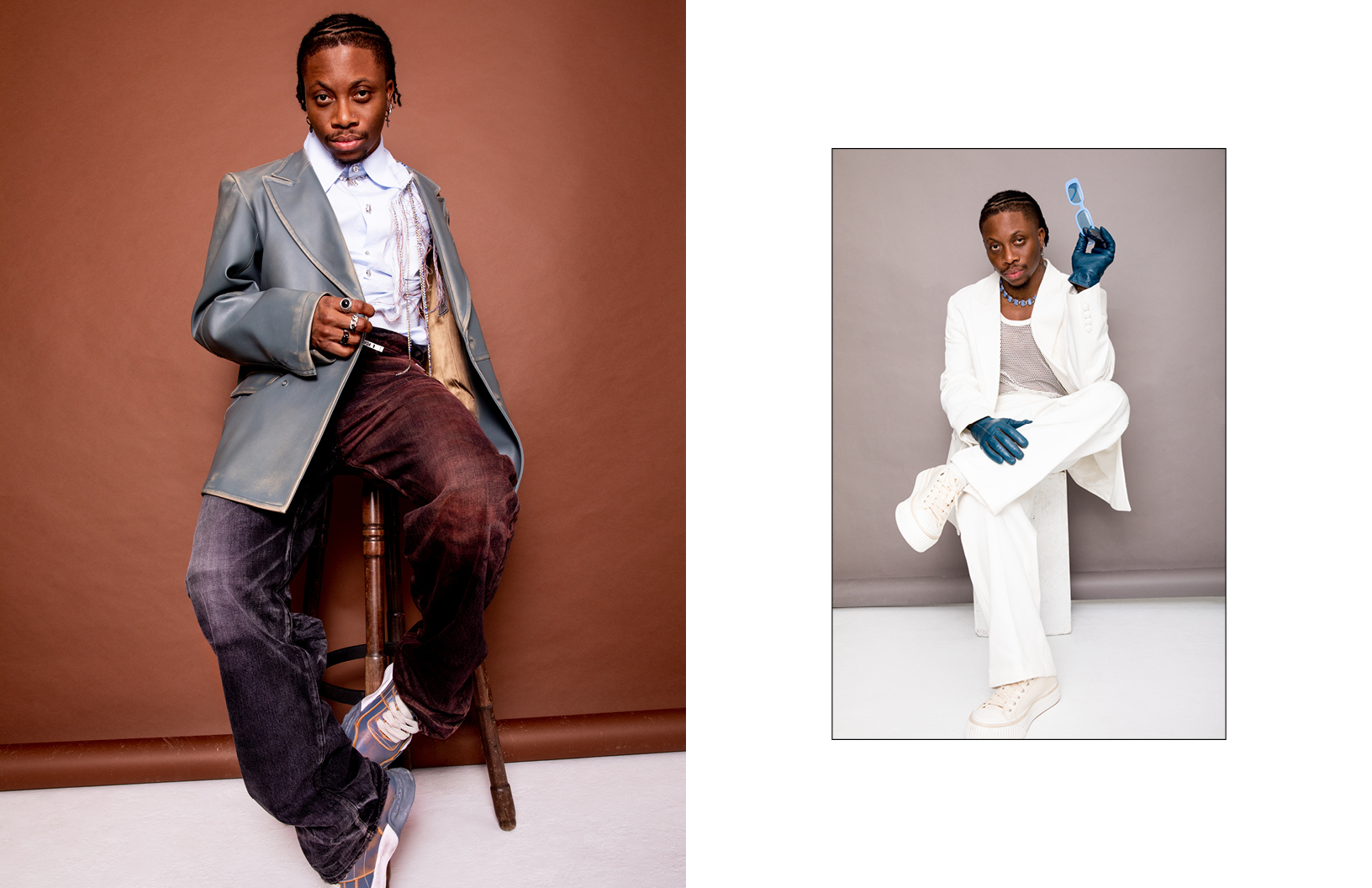
jacket, trousers + trainers. Maison Mihara Yasuhiro
shirt. Mithridate
necklace. Vitaly
rings. Vitaly, MJ Jones, Giovanni Raspini
right.
suit, top + shoes. Ami
necklace. Vitaly
gloves. Handsome Stockholm
glasses. Bonnie Clyde
Your music often touches on social and personal experiences. How do you navigate the delicate balance between artistic expression and addressing critical issues through your lyrics?
Honestly, my music is a journal. I speak about my environment, my entire life, and everything I live with. I would always use that as a means of communication to the world, to understand how I’m feeling or where I’m at mentally. It’s not just political reasons, I do it to express everything about me.
Amid political transitions and potential shifts in power, how do you think the Nigerian arts and culture scene can actively engage in the social-political landscape to bring about change?
Nigerian politics is one of the most controversial aspects of my country. It’s a work in progress, but there is a lot of deeply rooted corruption so it’s going to take the whole of Nigeria agreeing that we need change. As much as I will be singing about change, I also want the entire game to be on the same momentum because together we stand, divided we fall.
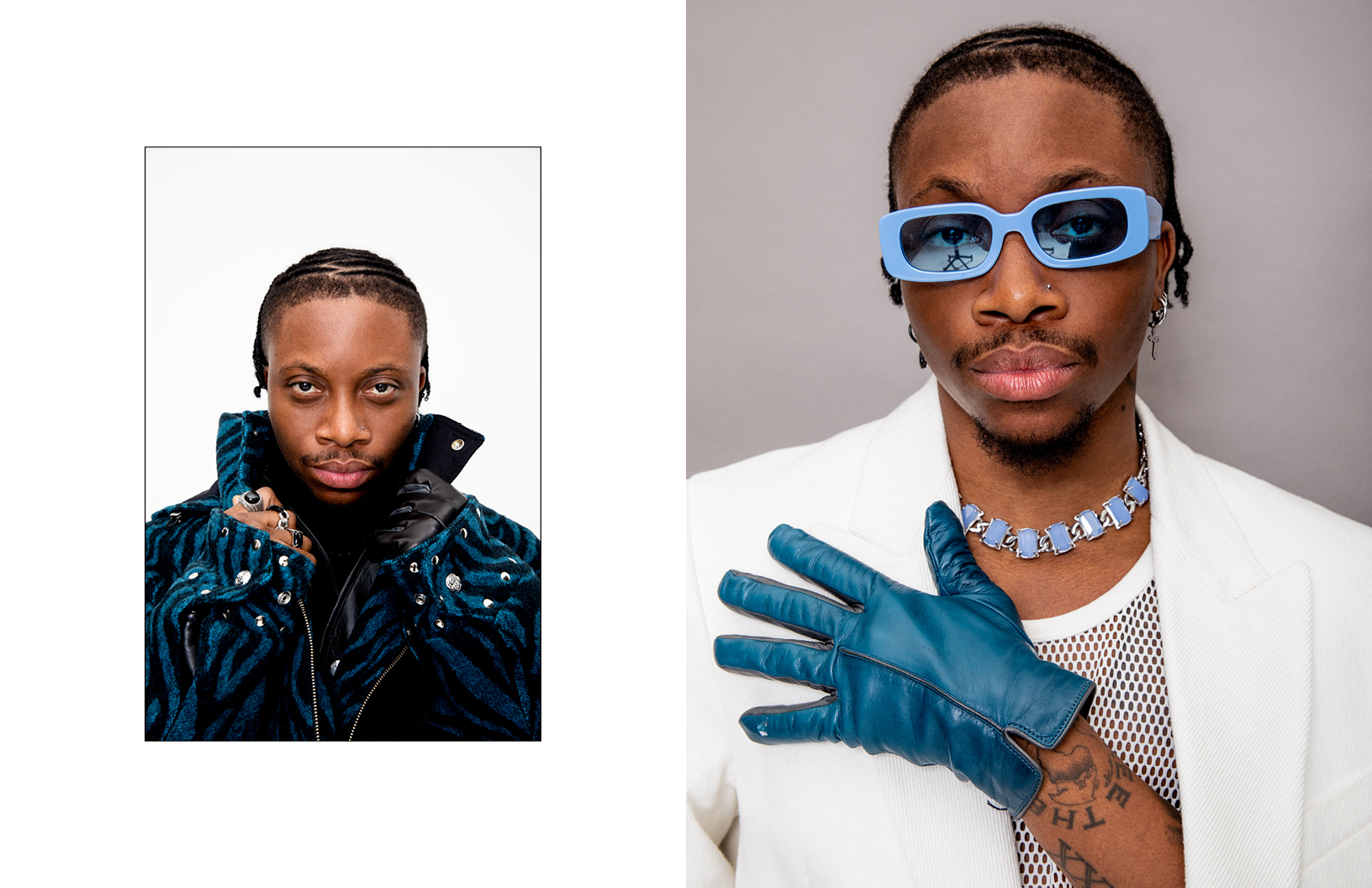
jacket. Bluemarble
leather jacket. Nanushka
turtleneck. Sebago
glove. Handsome Stockholm
necklace. MJ Jones
rings. Vitaly, MJ Jones, Giovanni Raspini
right.
suit +top. Ami
necklace. Vitaly
gloves. Handsome Stockholm
glasses. Bonnie Clyde
Your music resonates with diverse audiences, especially the youth which comprises most of the Nigerian population. How do you connect with and relate with your fans, particularly in the digital era?
Social media is crucial to my music because I blew up during the pandemic. The strength of social media helped me because there was no physical promo. I couldn’t do any marketing with my music so all I had was social media. I just found a way to connect with my audience differently to other artists who were finding it hard to hack. I’m so realistic and transparent with my audience. From time to time, I try to connect with them in the best way that I can. My audience is personal to me.
What exciting projects do you have coming out soon?
I’ve got a body of work on the way called Straight from Africa. God willing, it is meant to drop in September. It’s my first baby, my debut album. It took me three years to make that. I hope everybody understands the music and the message I’m trying to convey because we live in a very bitter, cold world where racism, tribalism, selfish interests, war, and genocide still exist. It’s a way that I could positively contribute to this world through the healing power of my music. Music is one of the essential medicines that can cure pains; I feel like my music is meant to heal the world [and] put you in the best space. I get many messages like, ‘Oxlade, your music changed my life,’ and that is what I make music for – not just for awards, hits and streams. If my music cannot impact souls, then I’d retire.
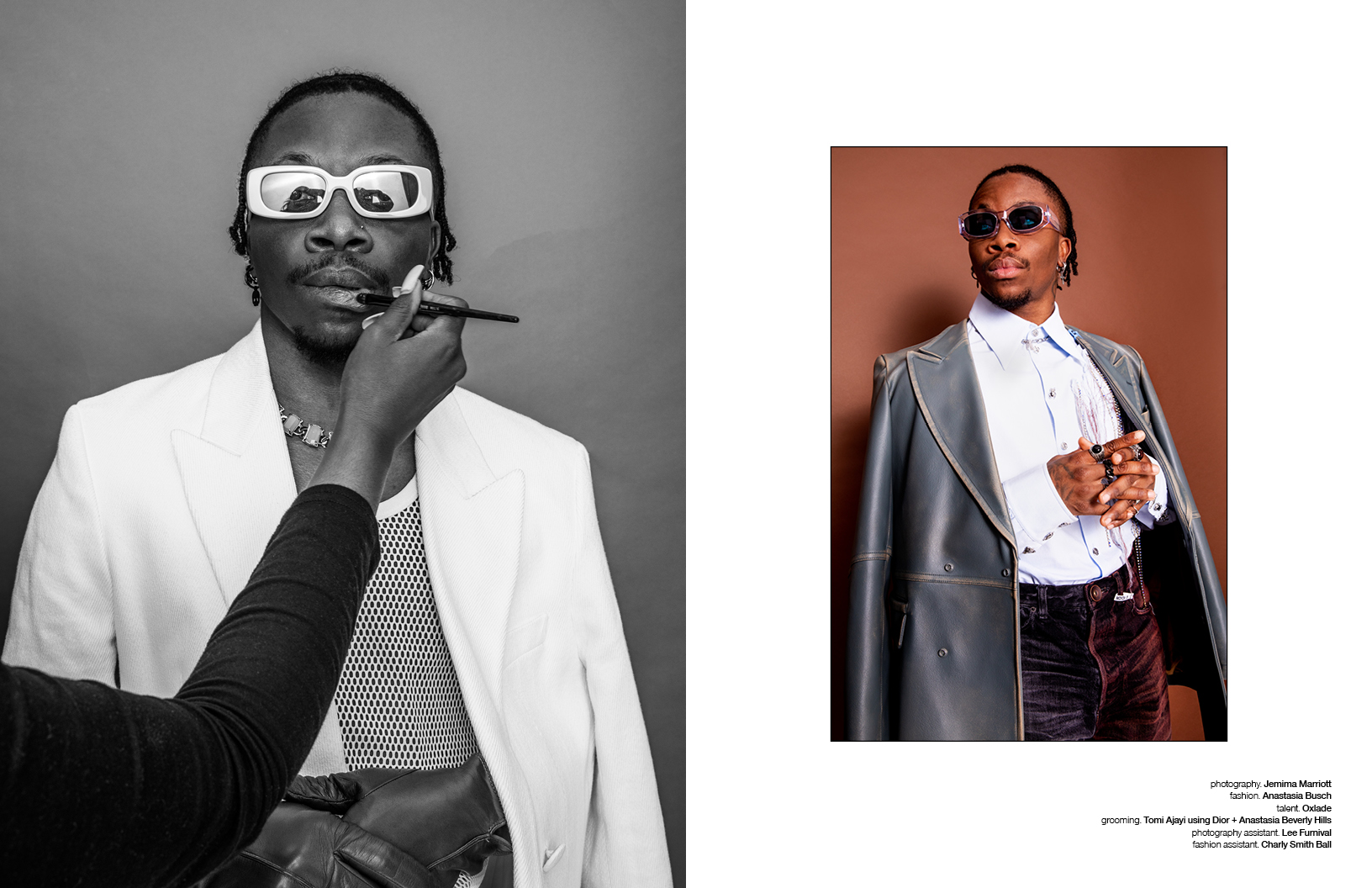
suit +top. Ami
necklace. Vitaly
gloves. Handsome Stockholm
glasses. Bonnie Clyde
right
jacket + trousers. Maison Mihara Yasuhiro
shirt. Mithridate
necklace. Vitaly
rings. Vitaly, MJ Jones, Giovanni Raspini
glasses. Vital
This Schön! online exclusive has been produced by
photography. Jemima Marriott
fashion. Anastasia Busch
talent. Oxlade
grooming. Tomi Ajayi using Dior + Anastasia Beverly Hills
photography assistant. Lee Furnival
fashion assistant. Charly Smith Ball
words. Emmanuel Onapa






